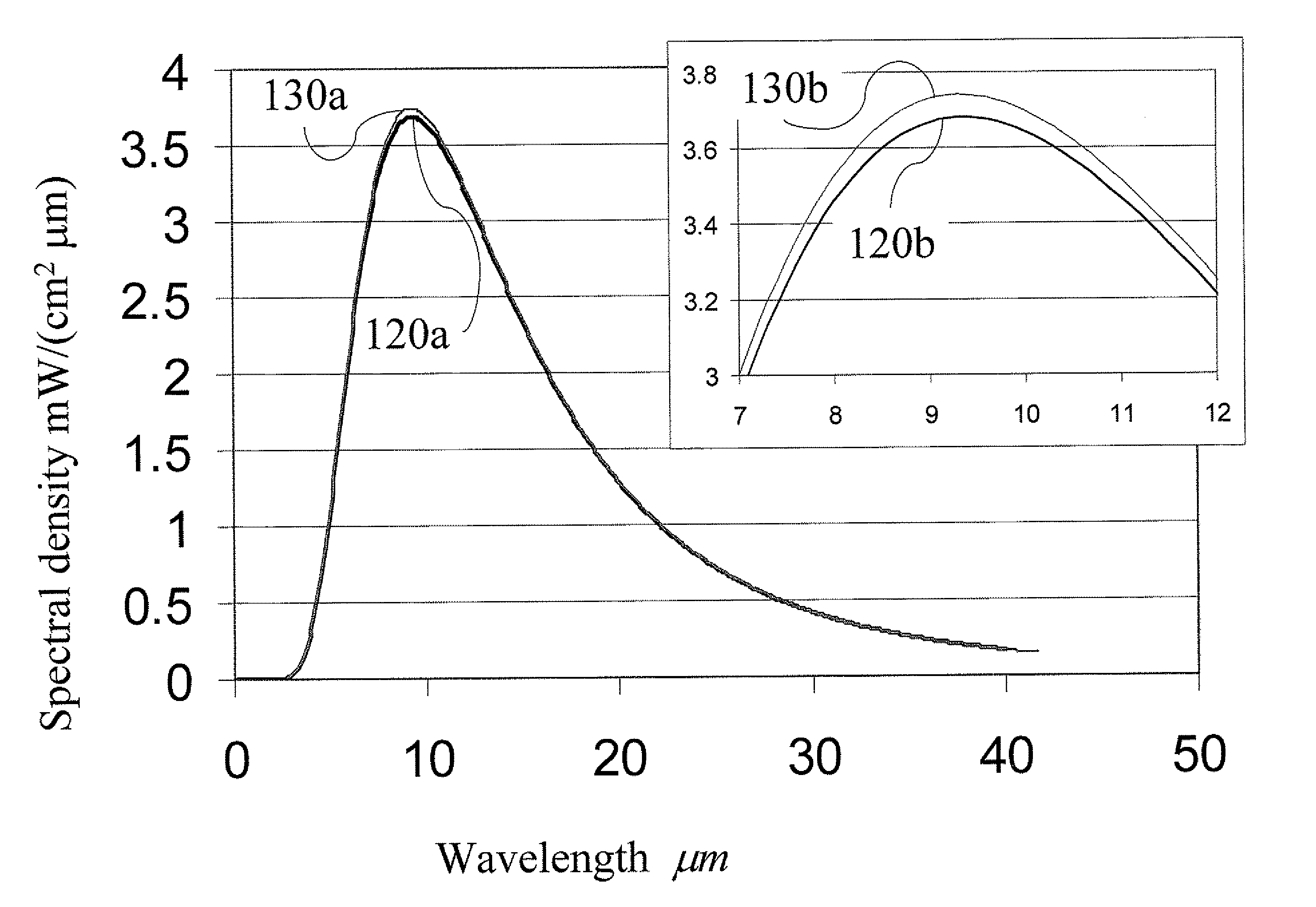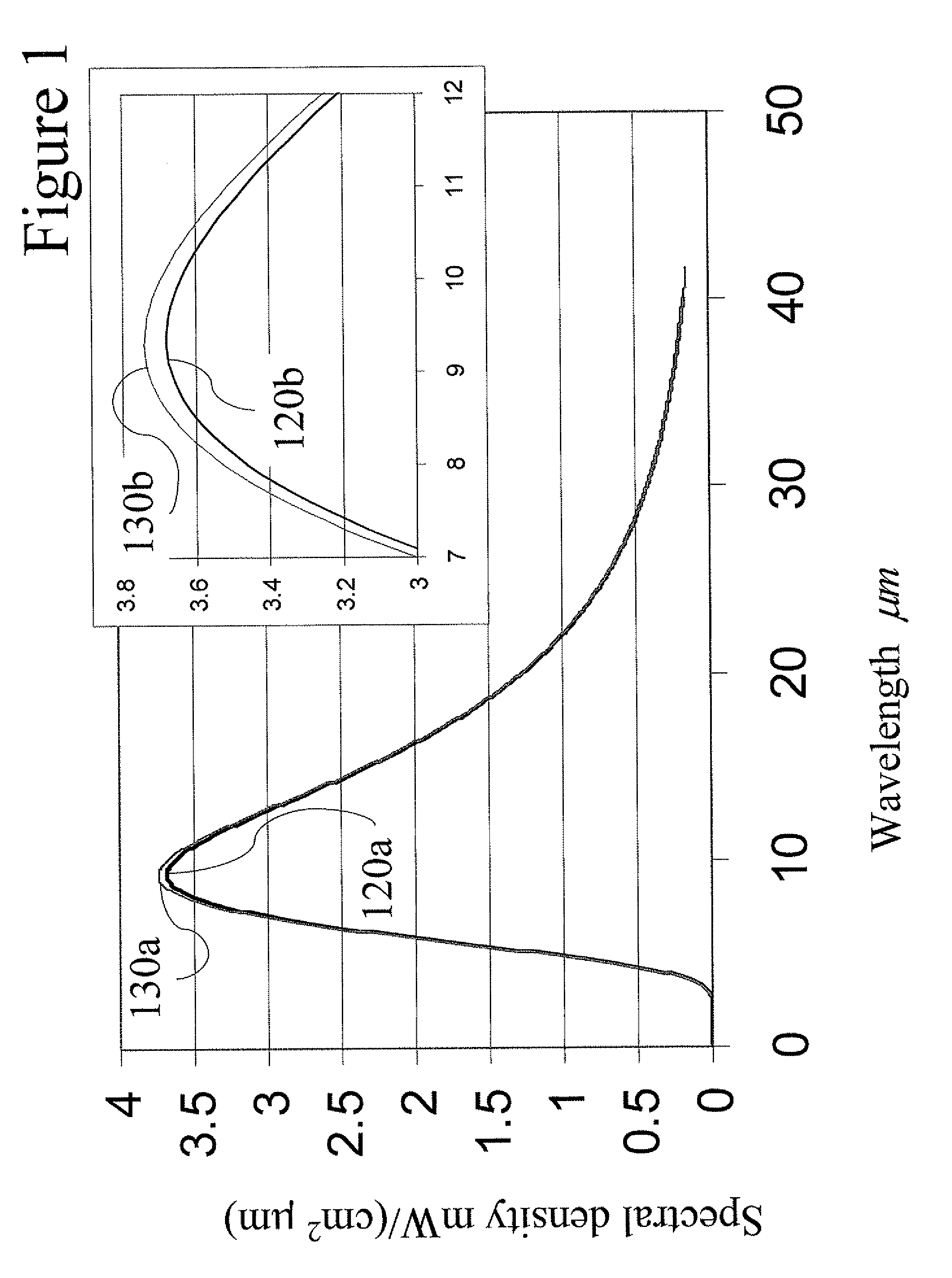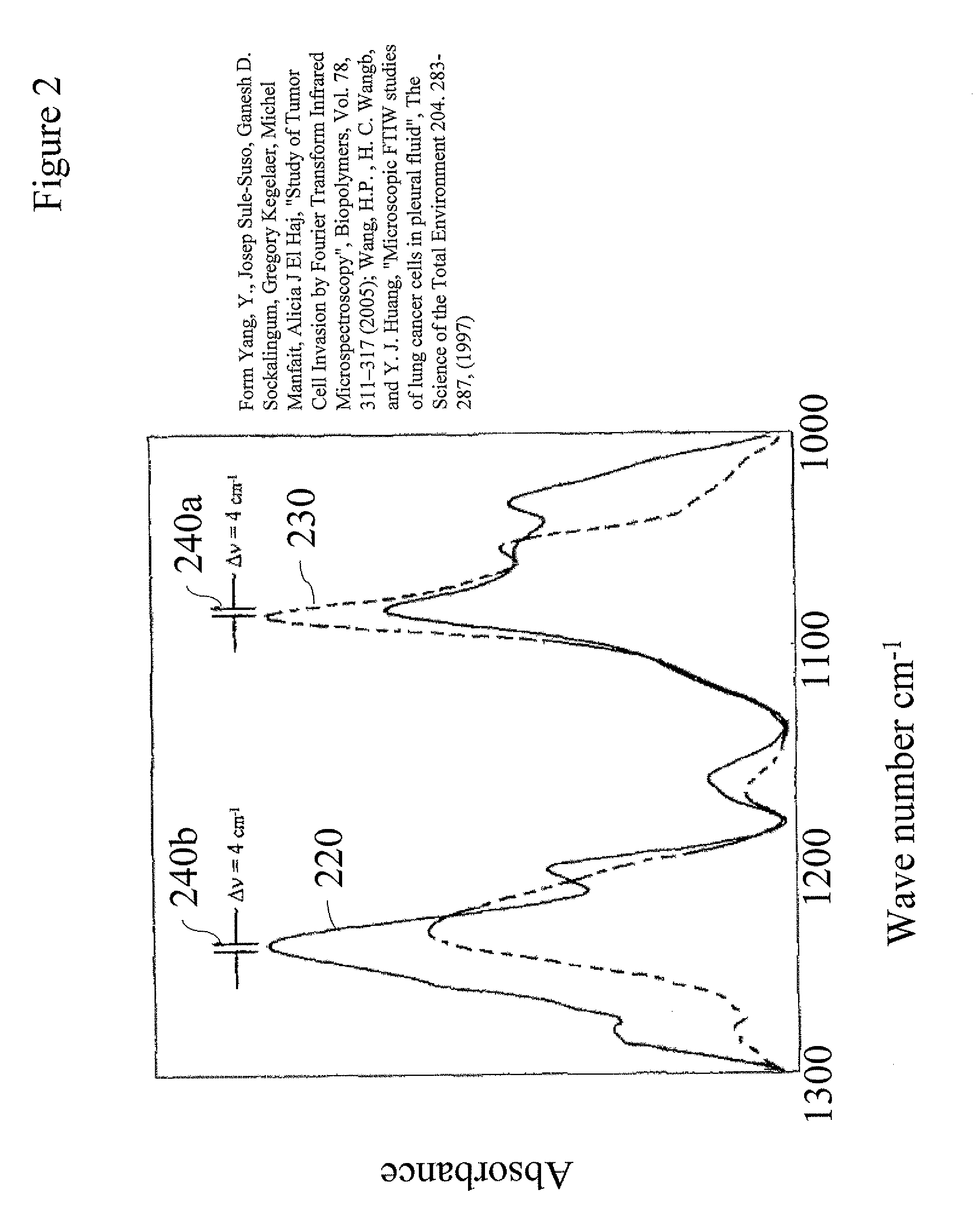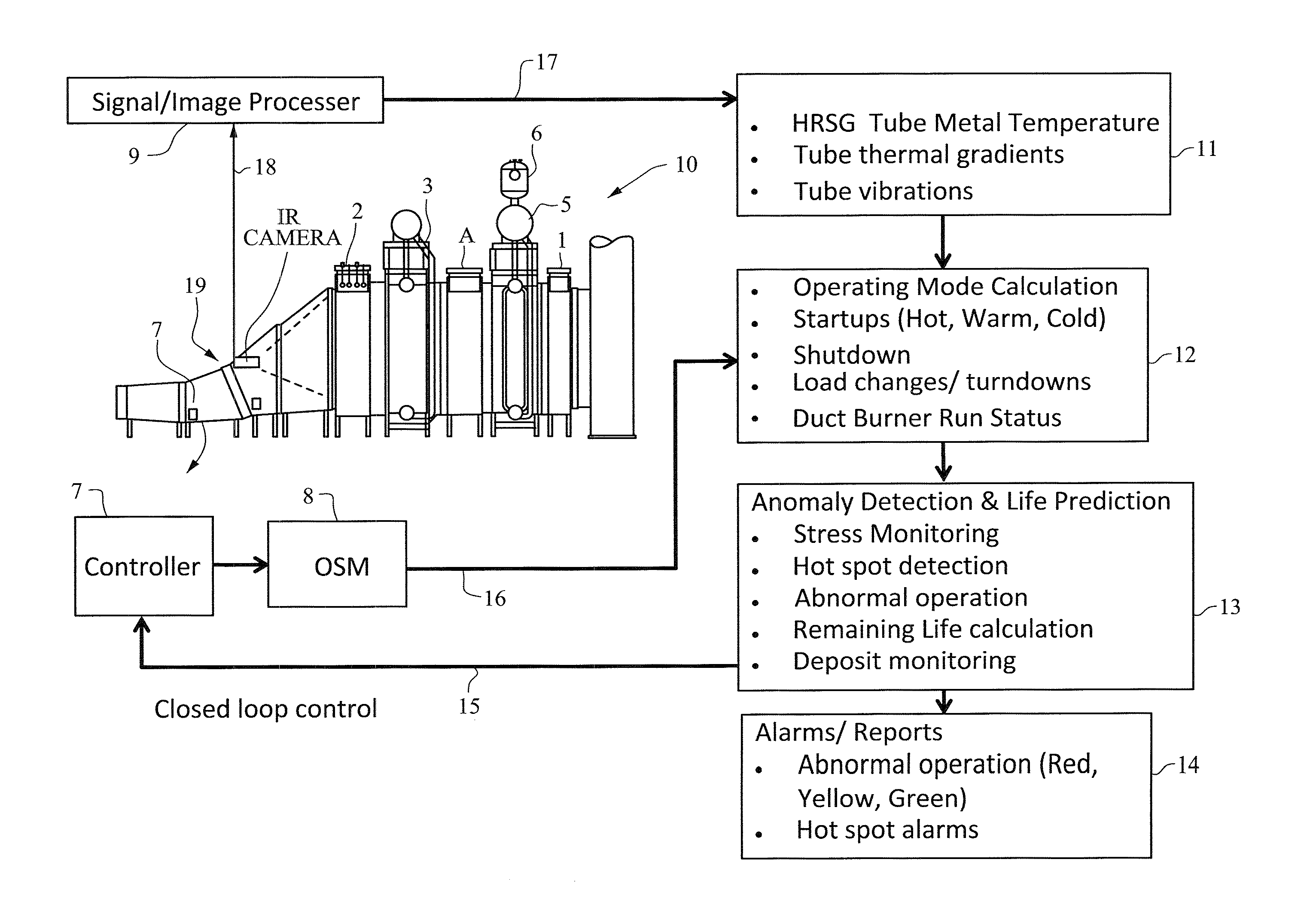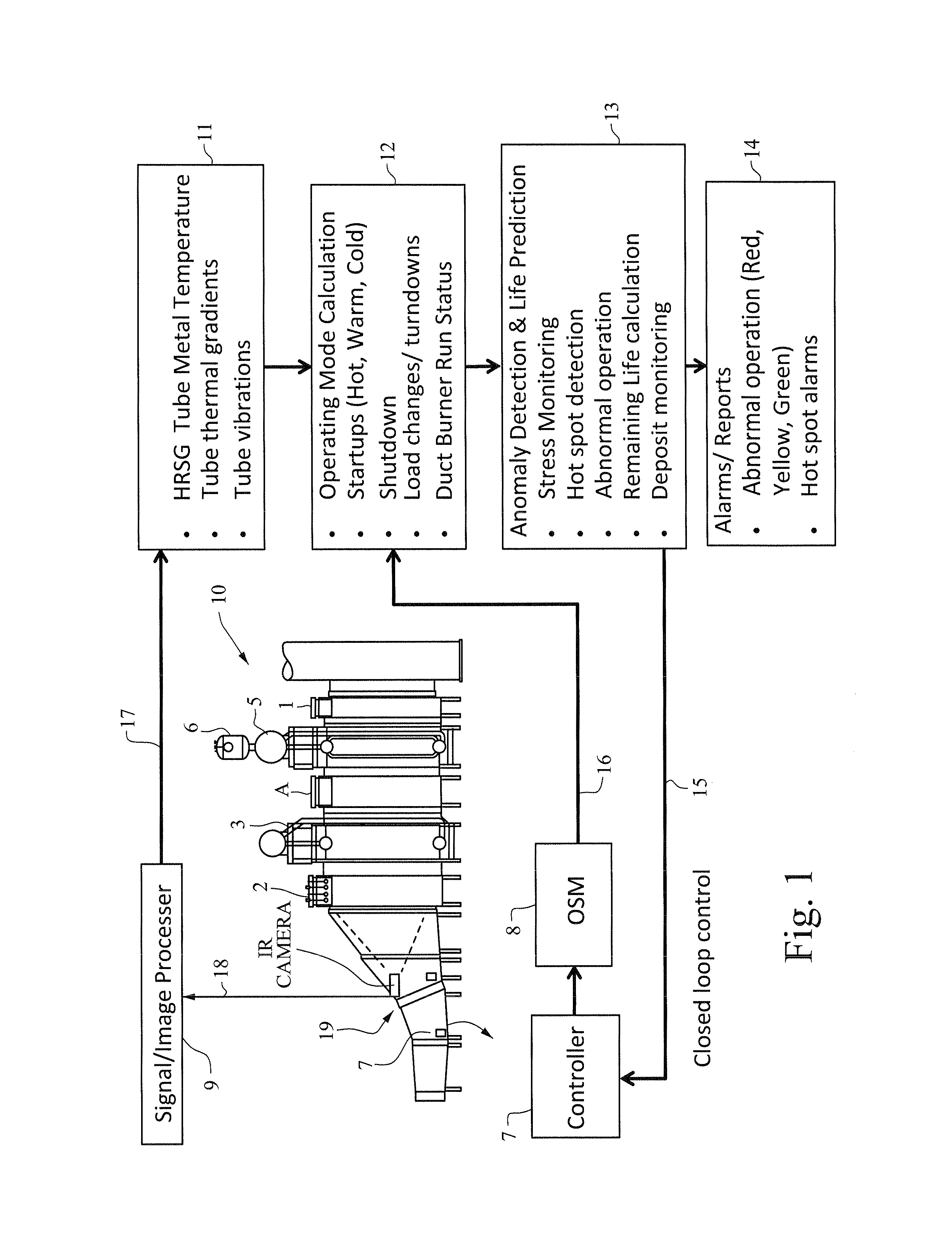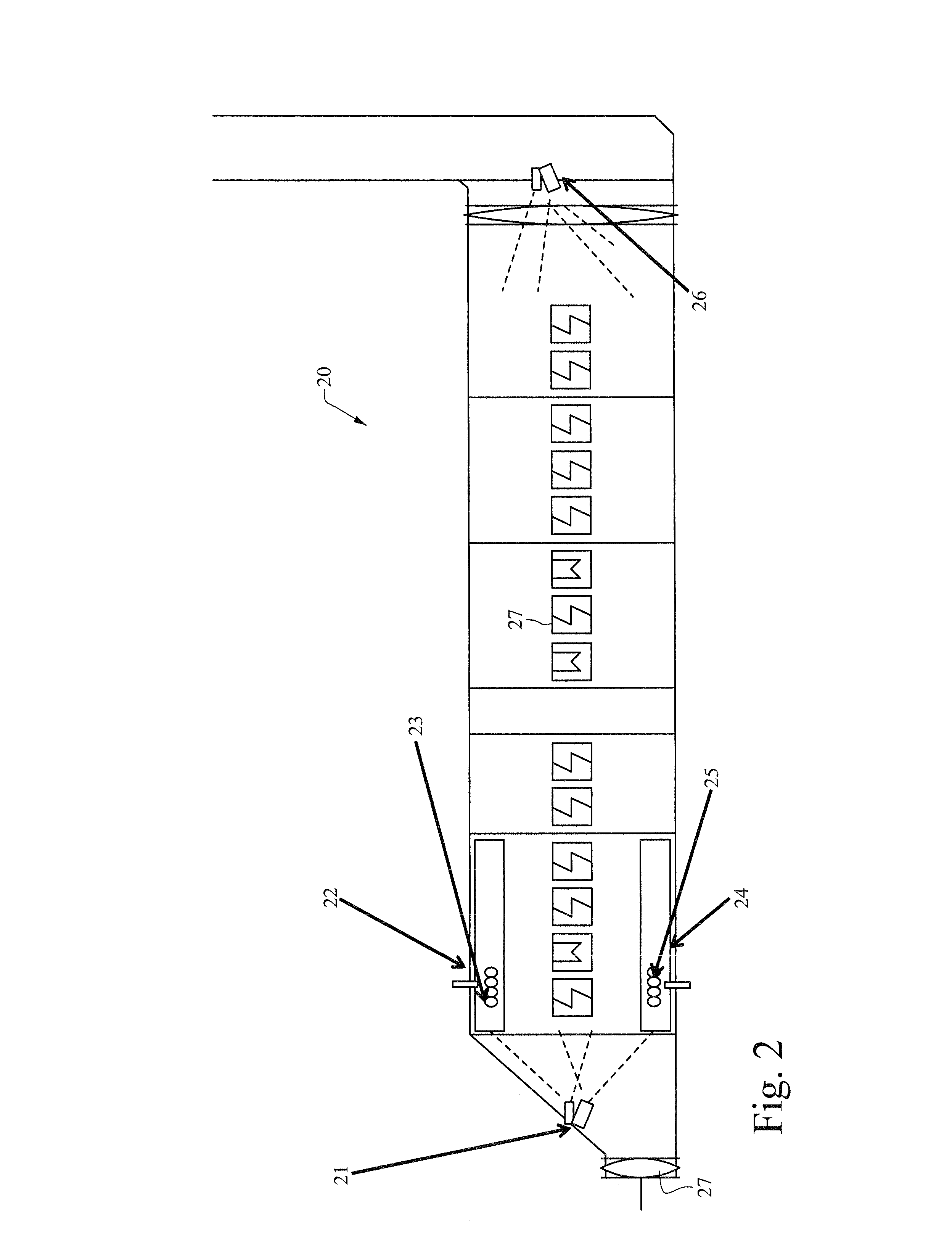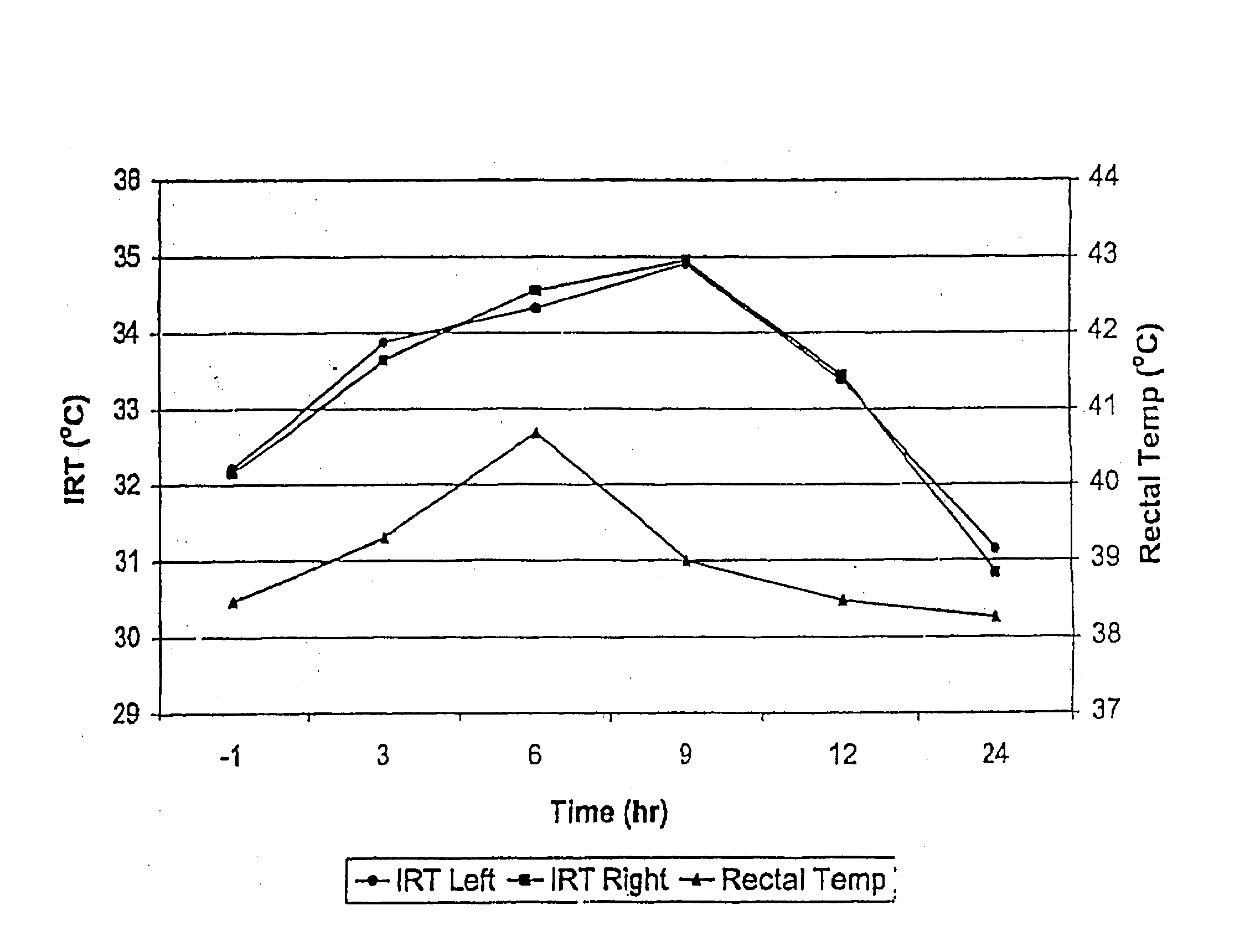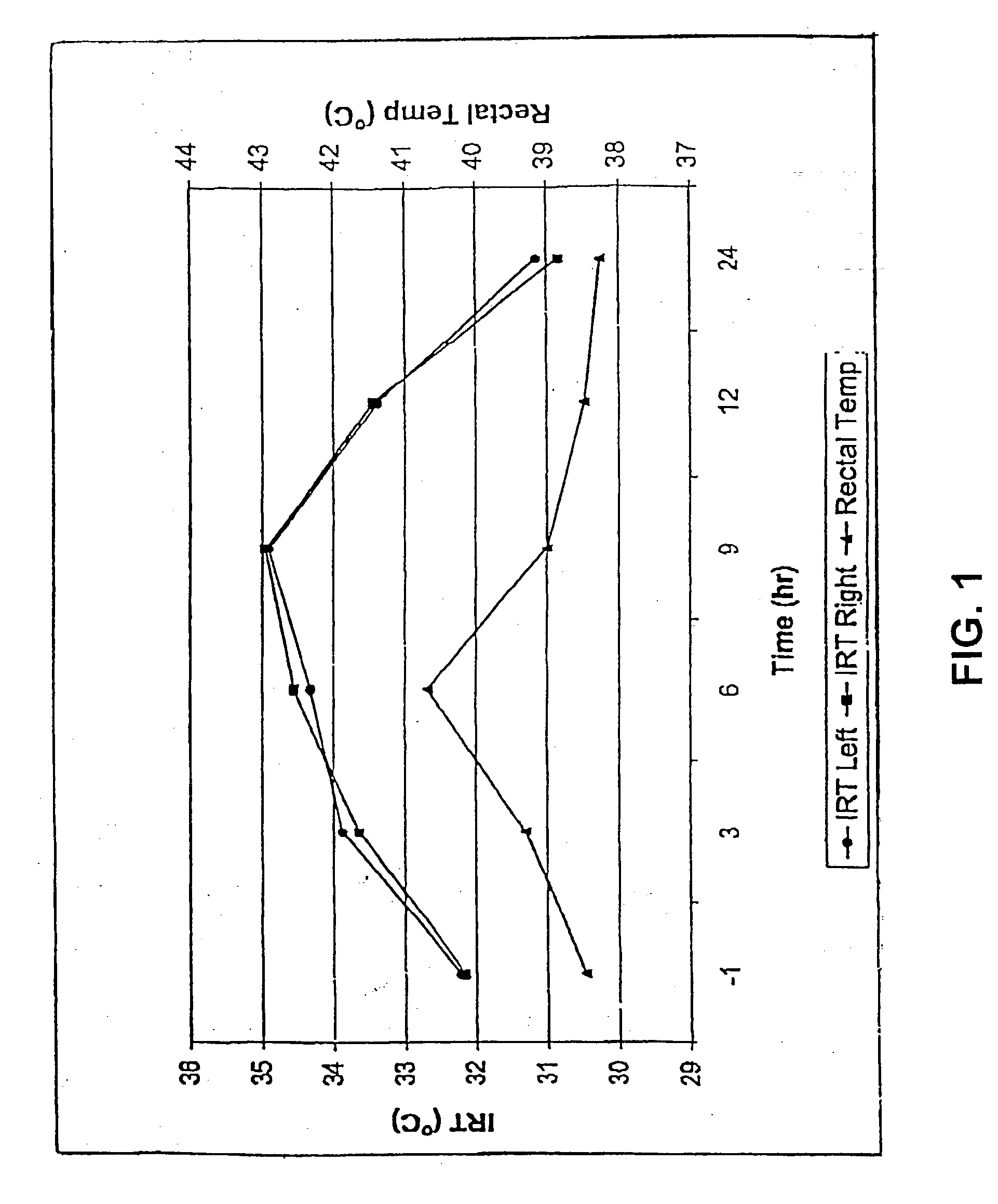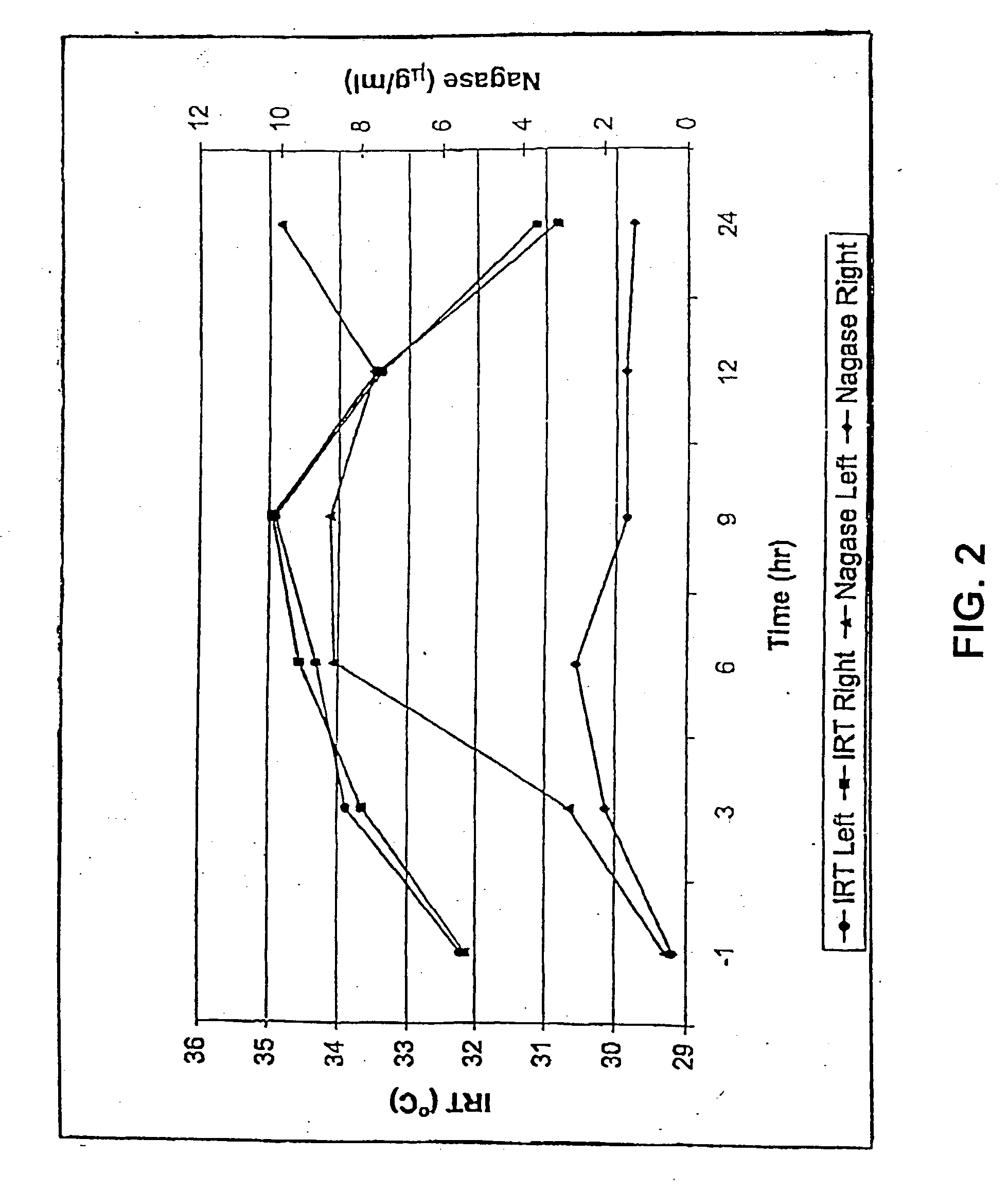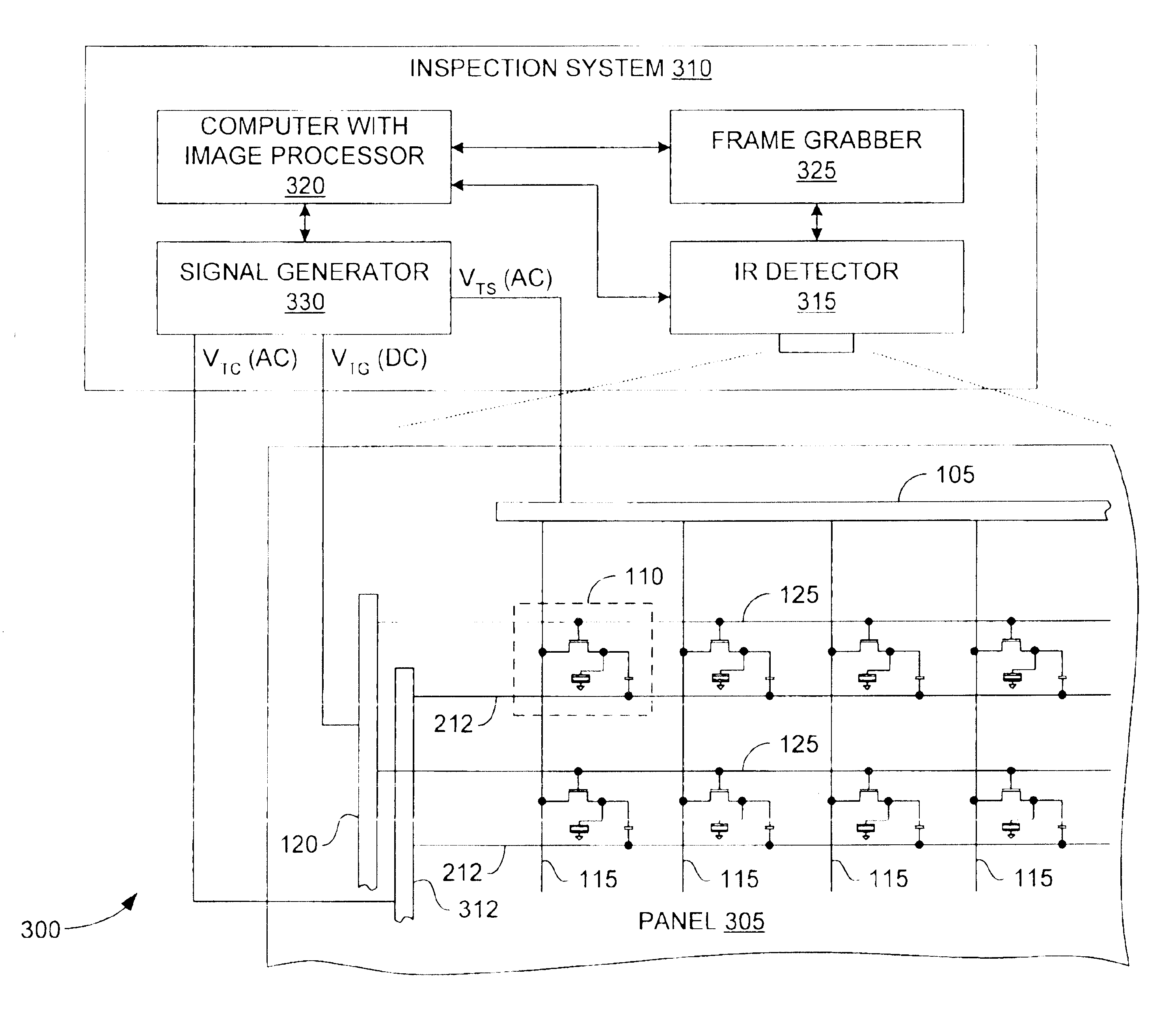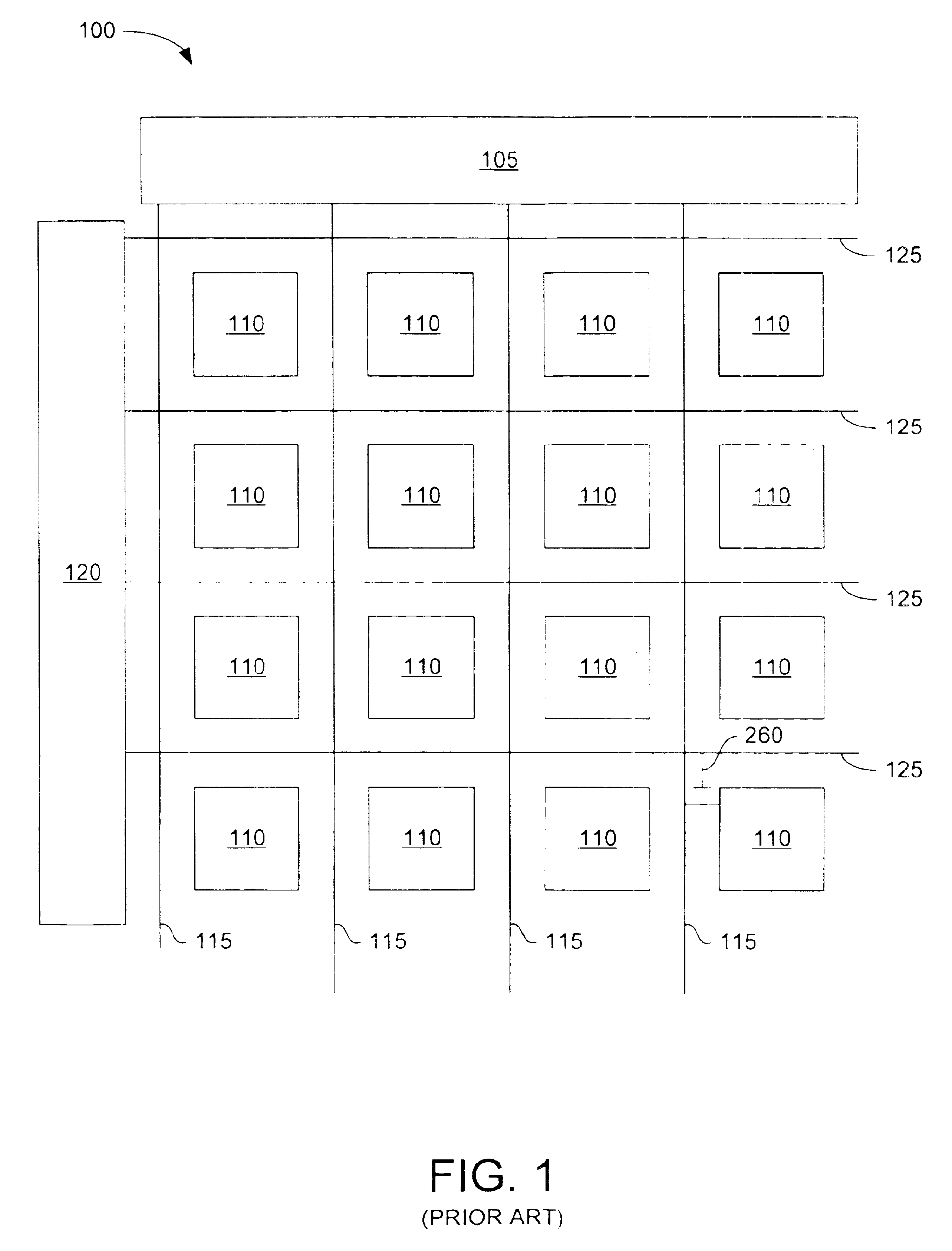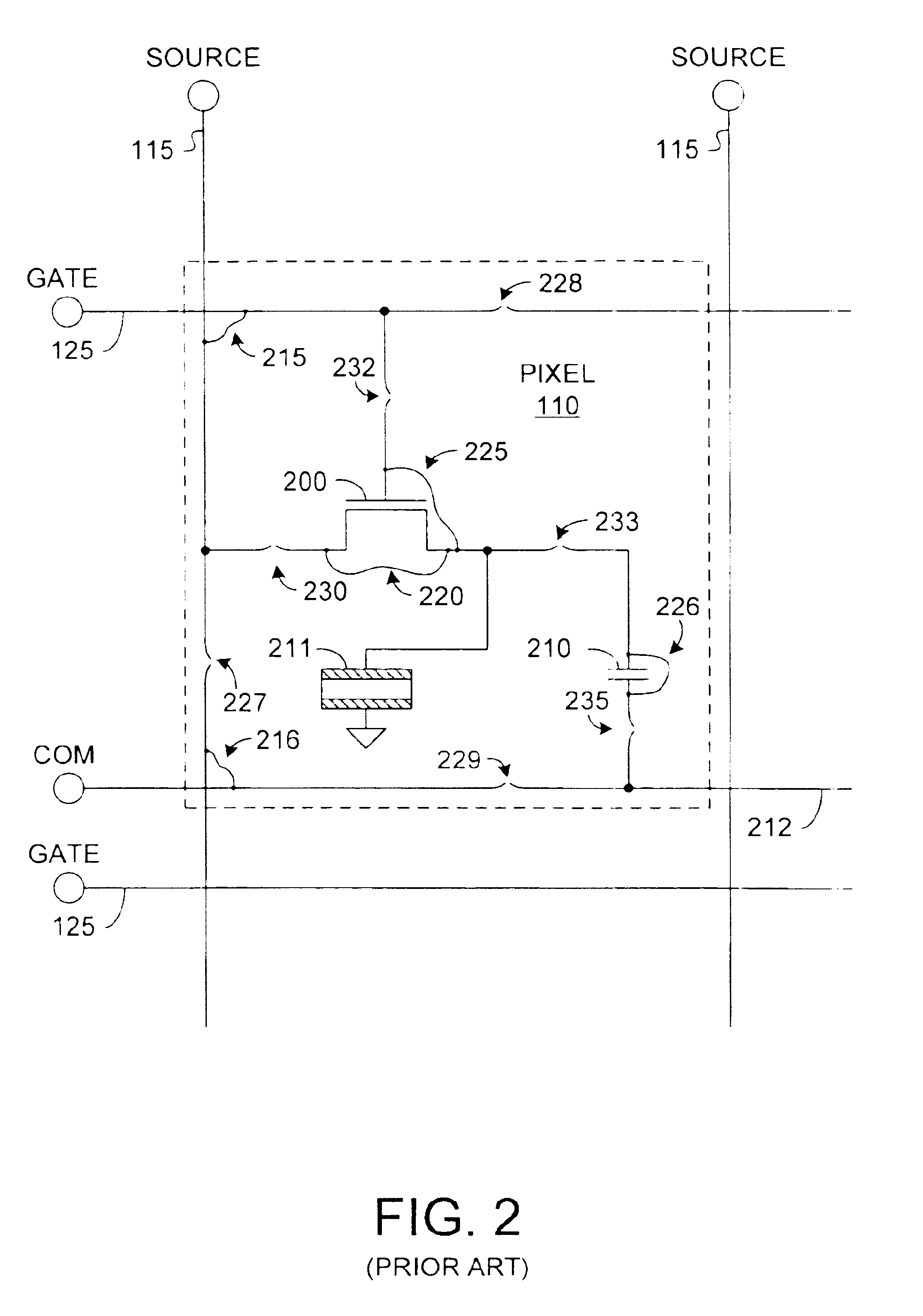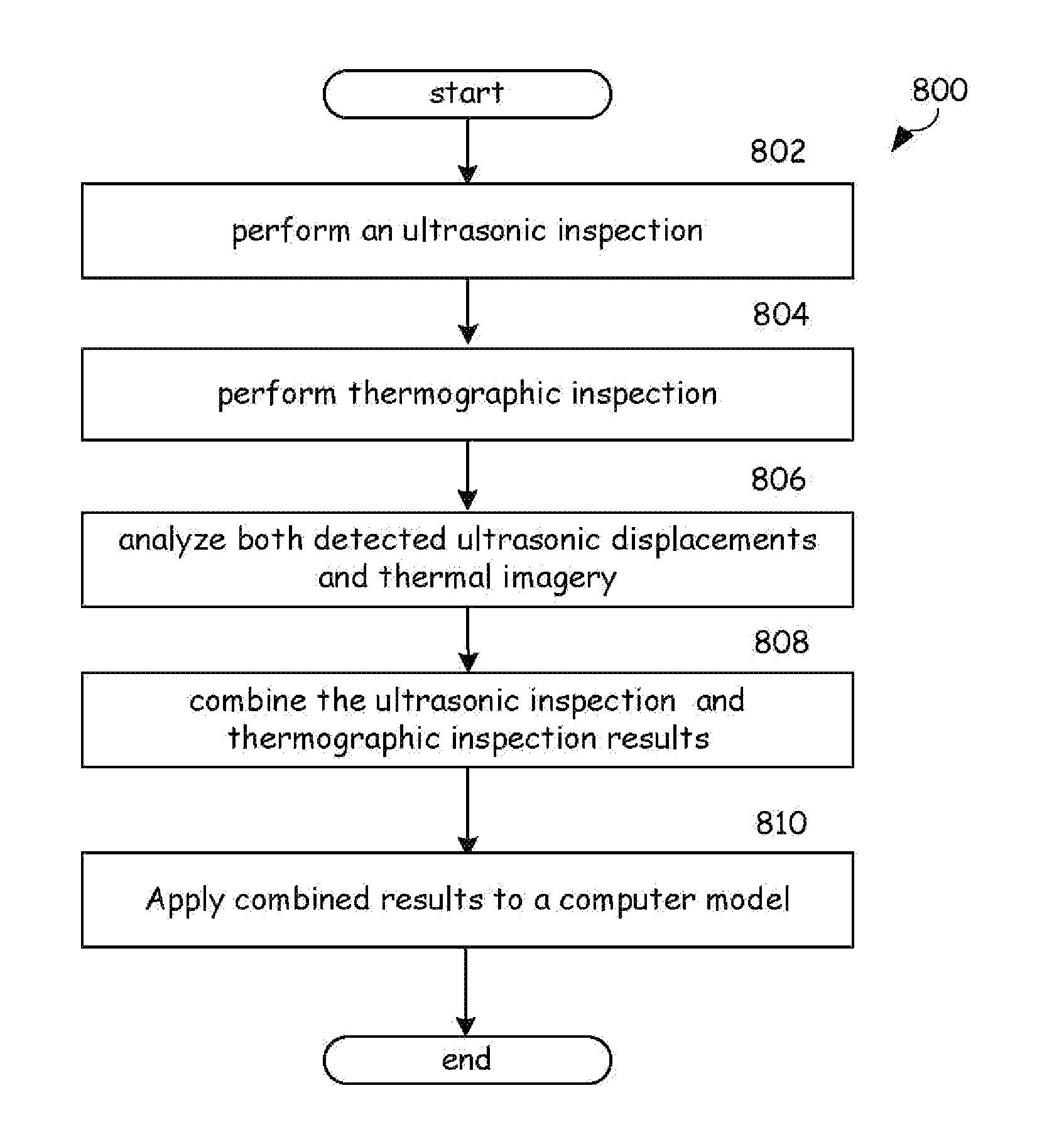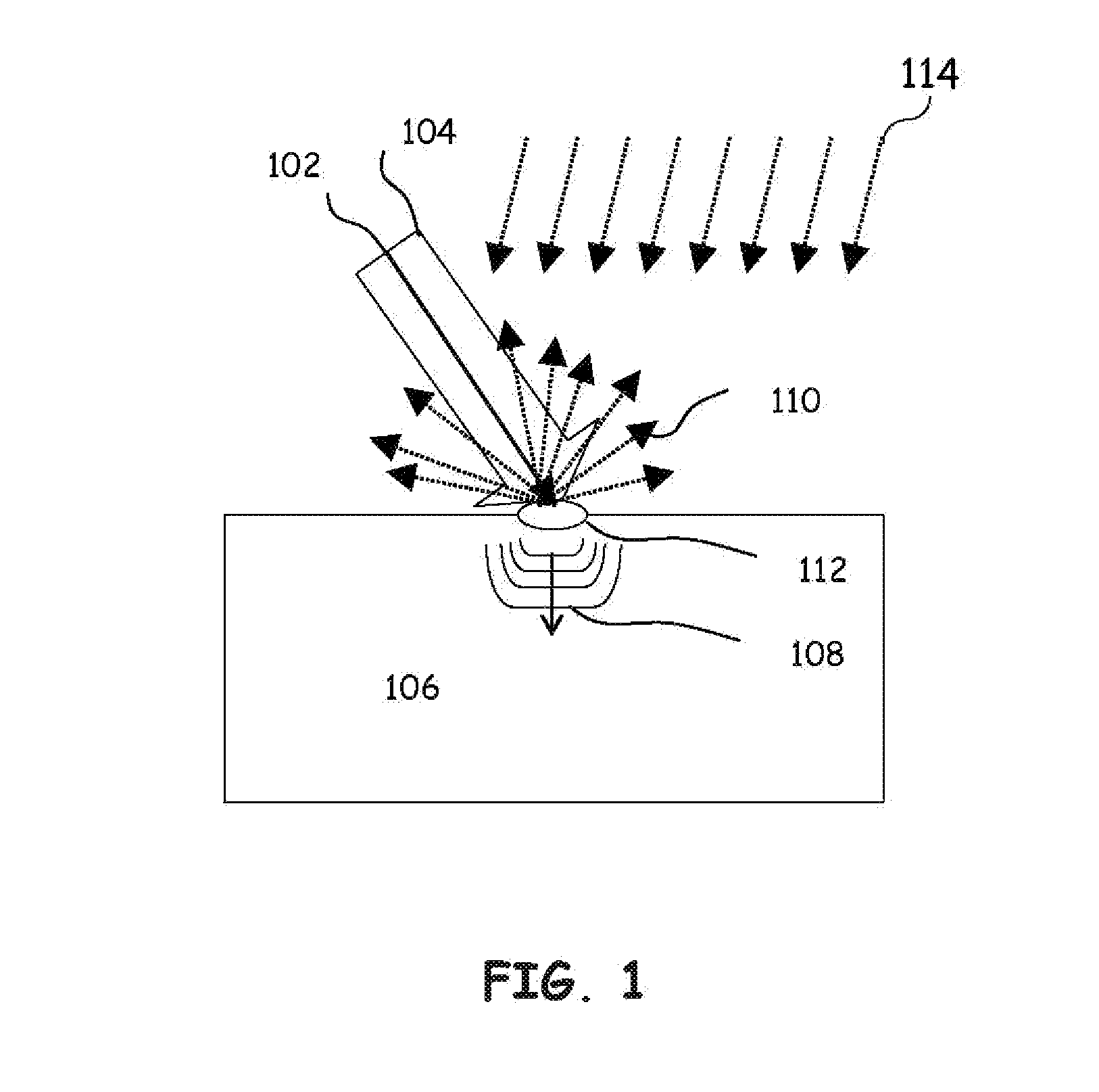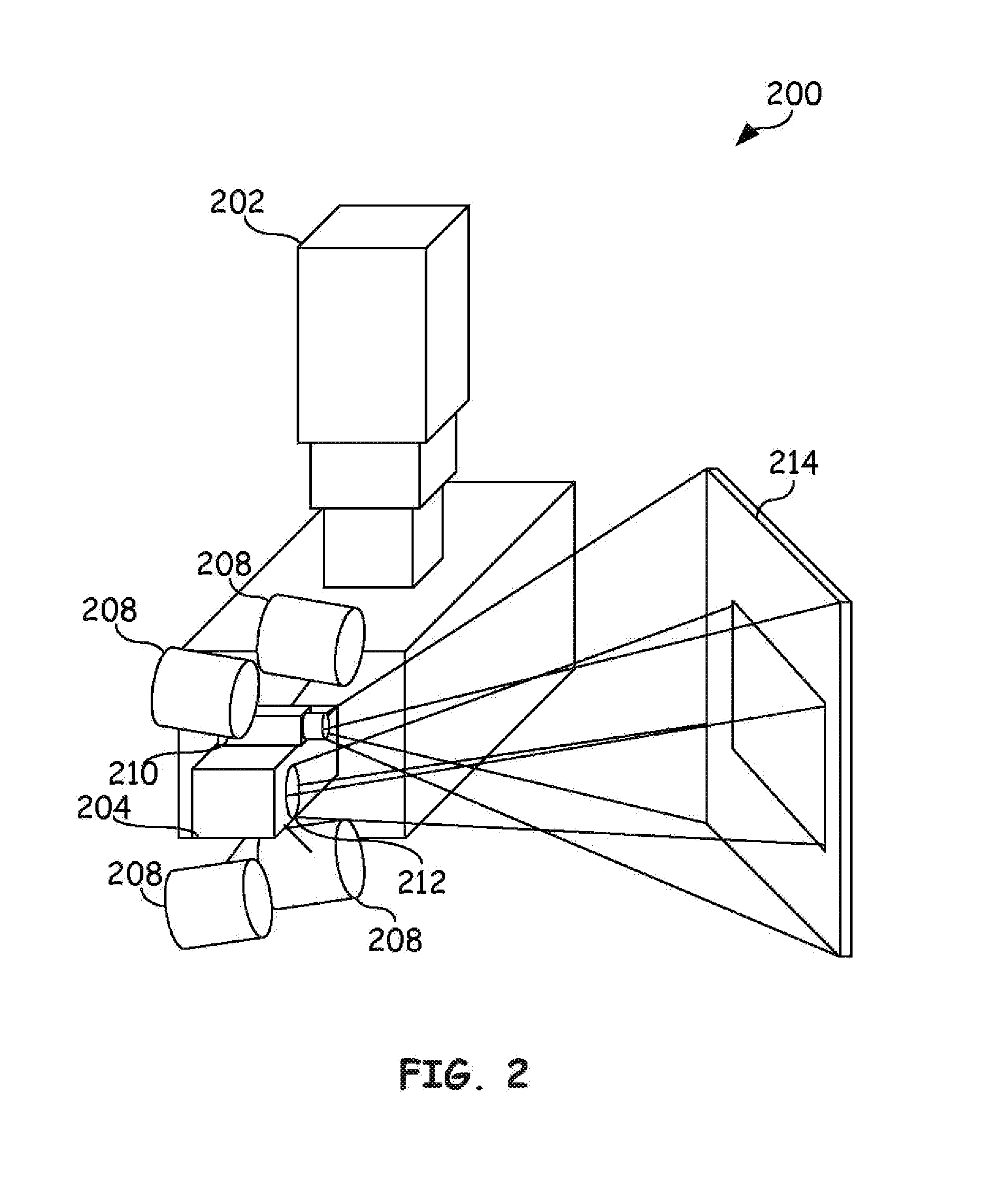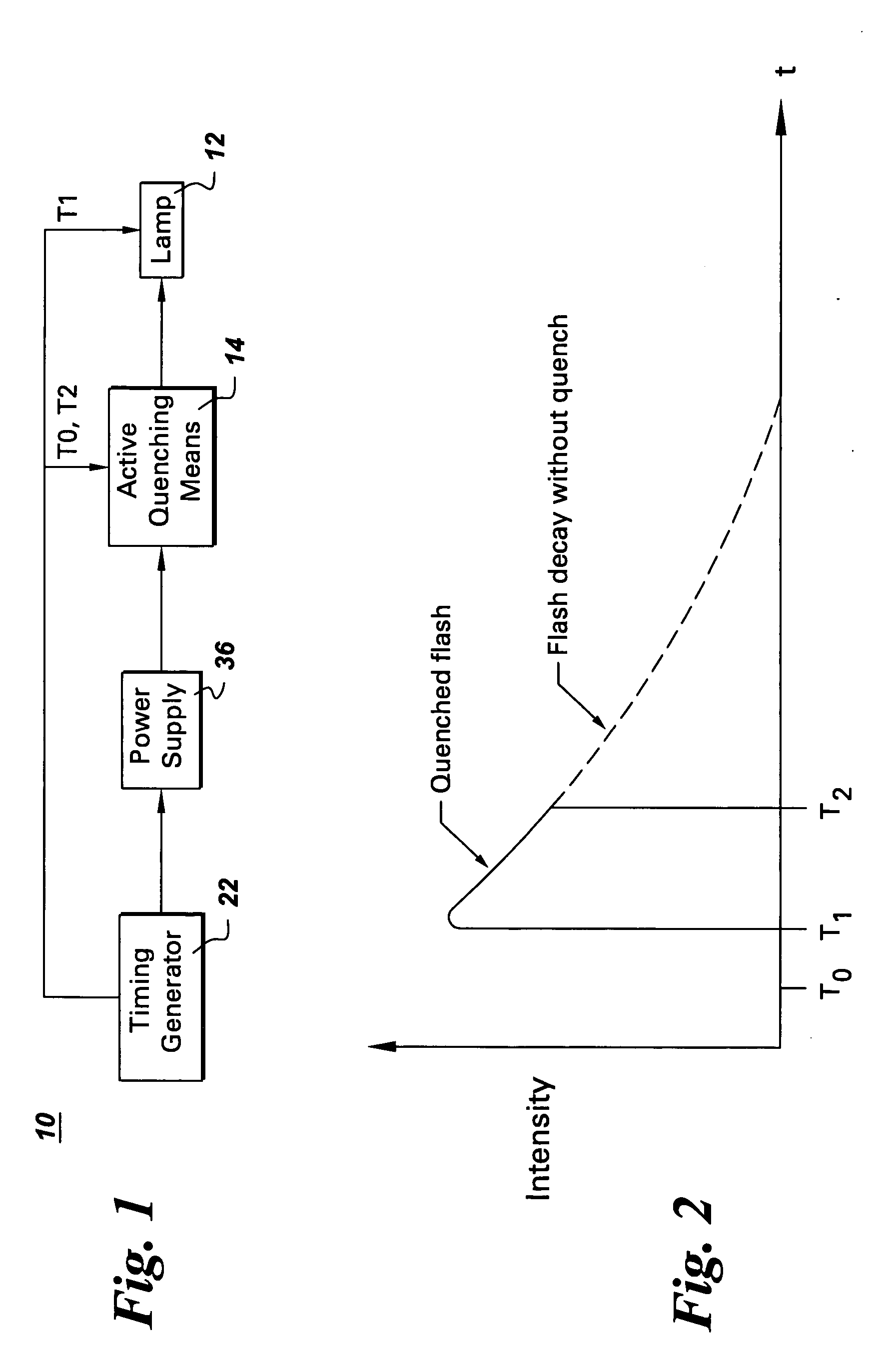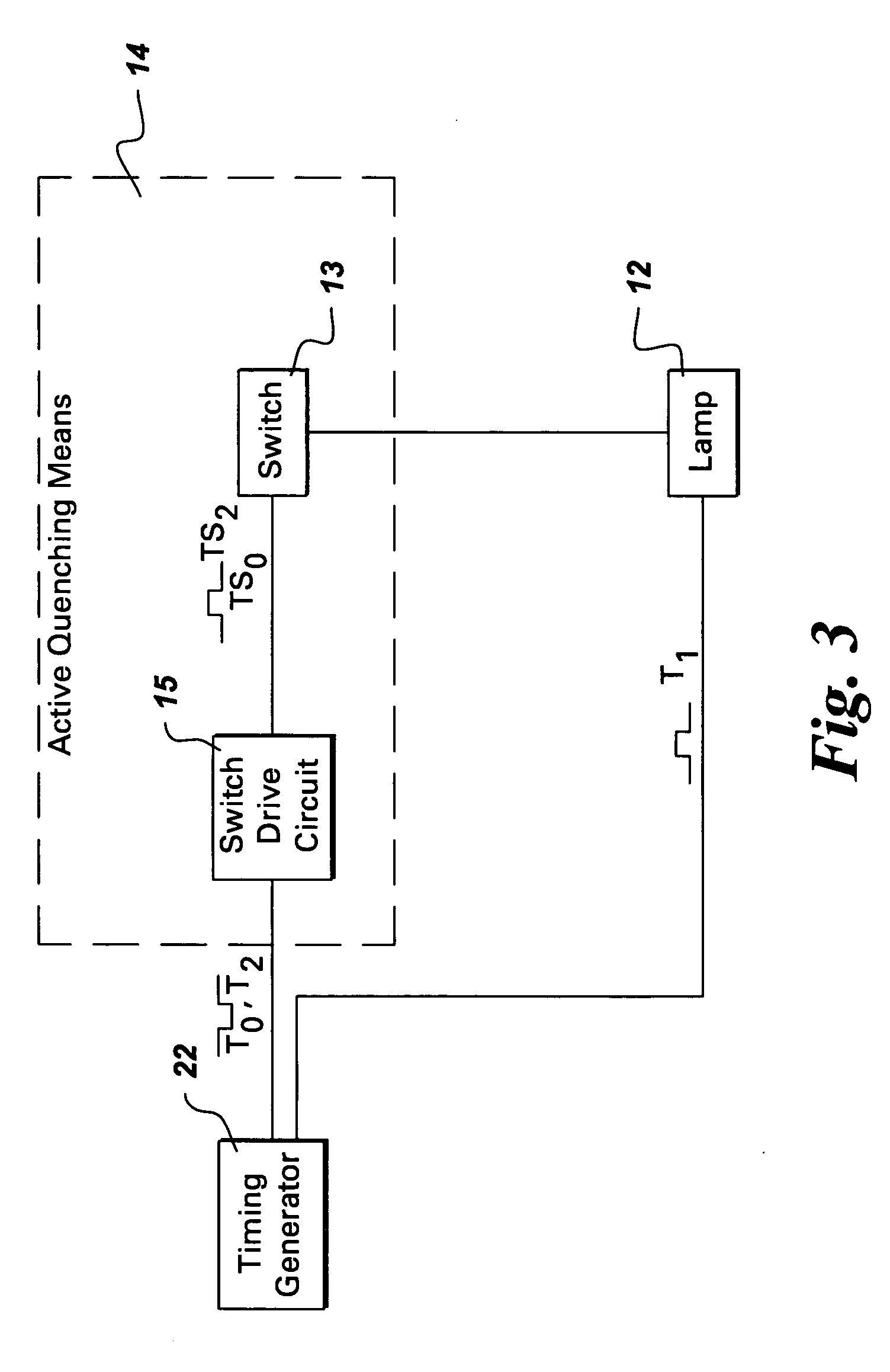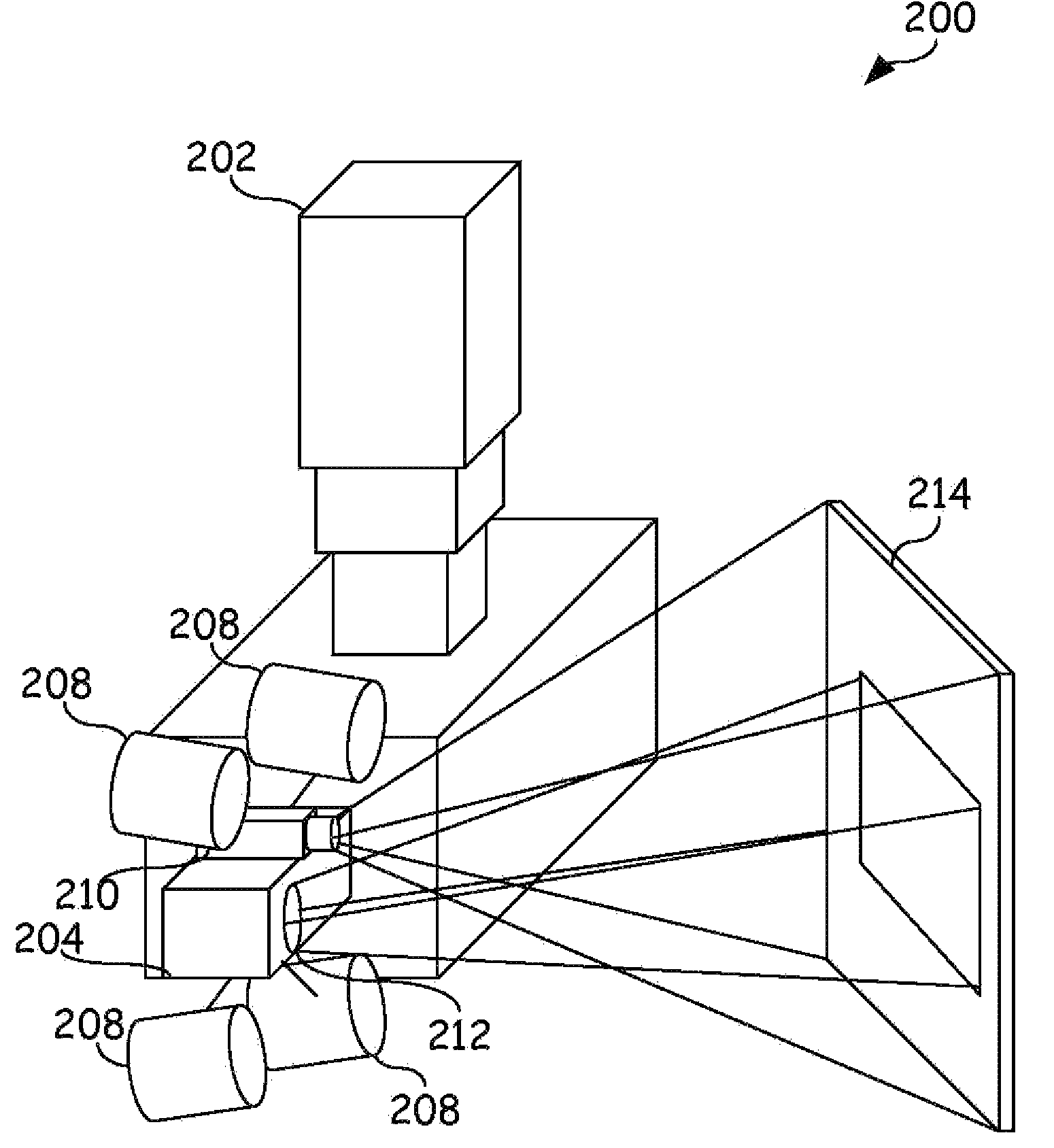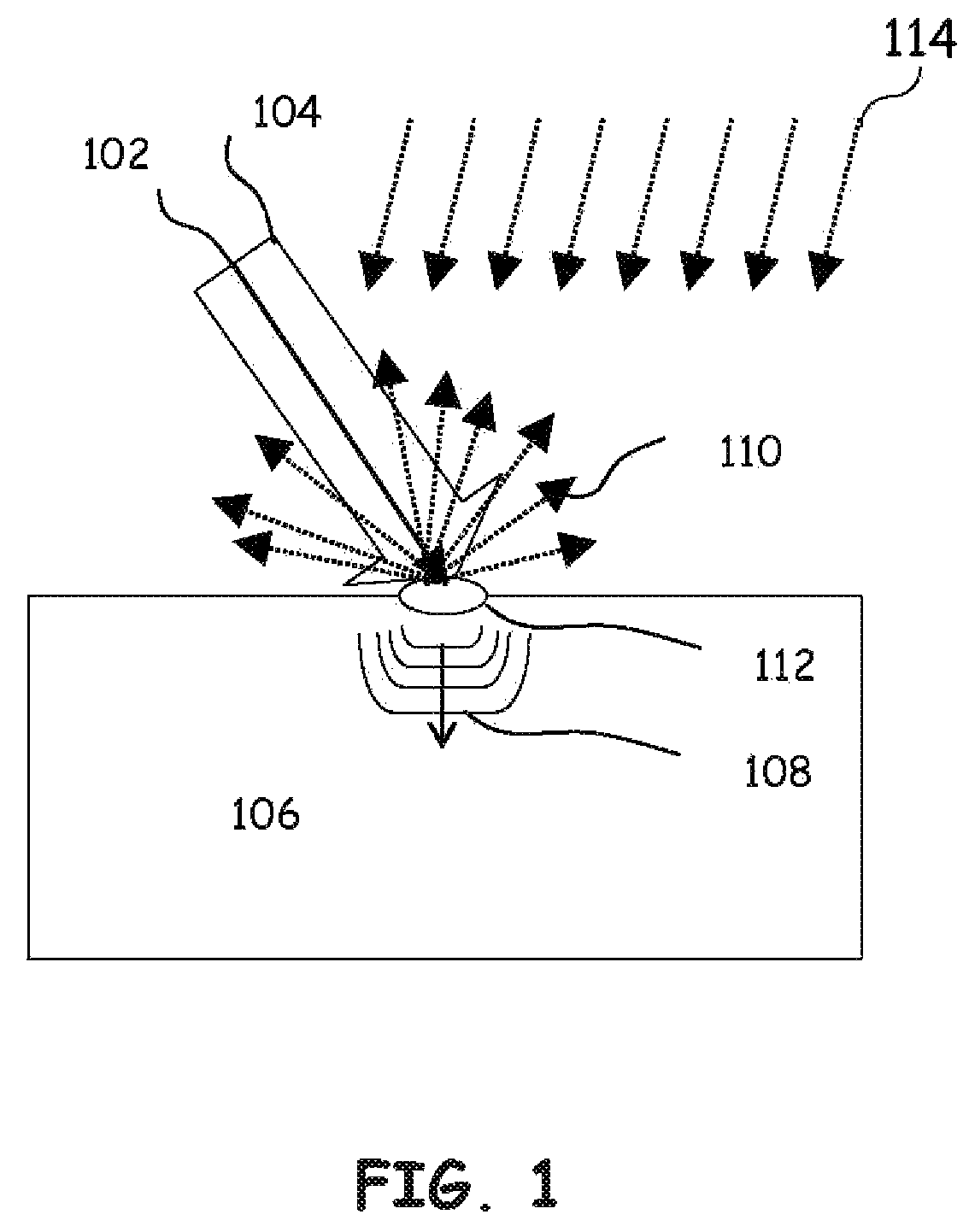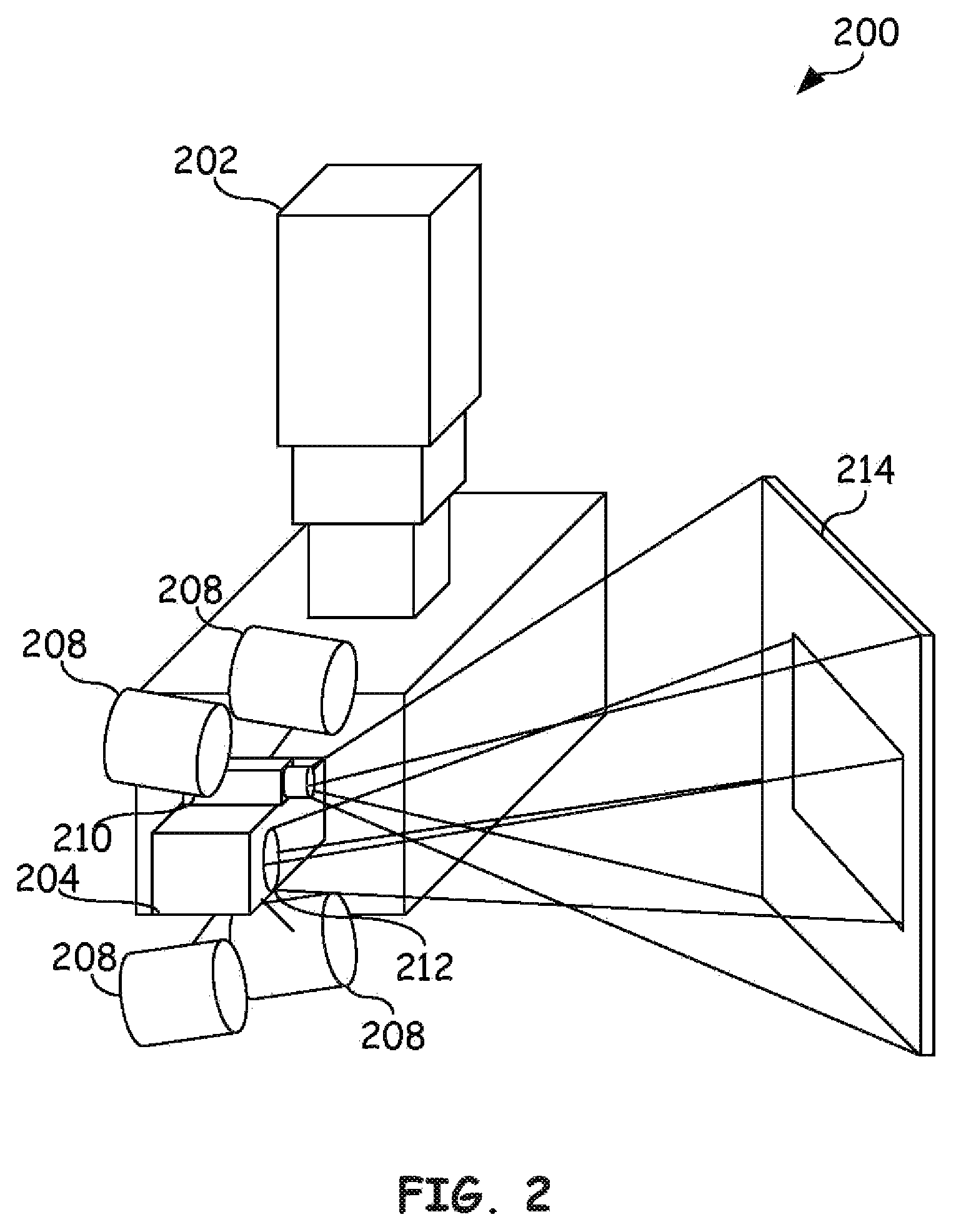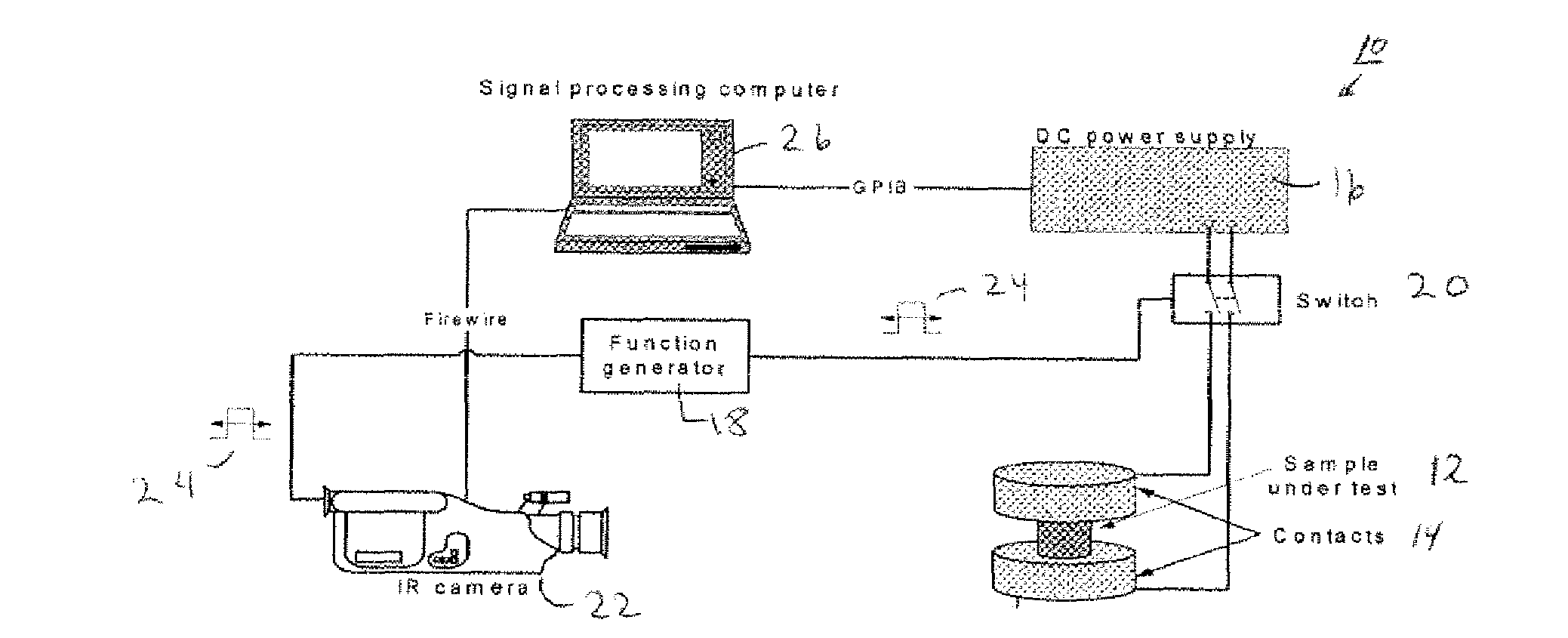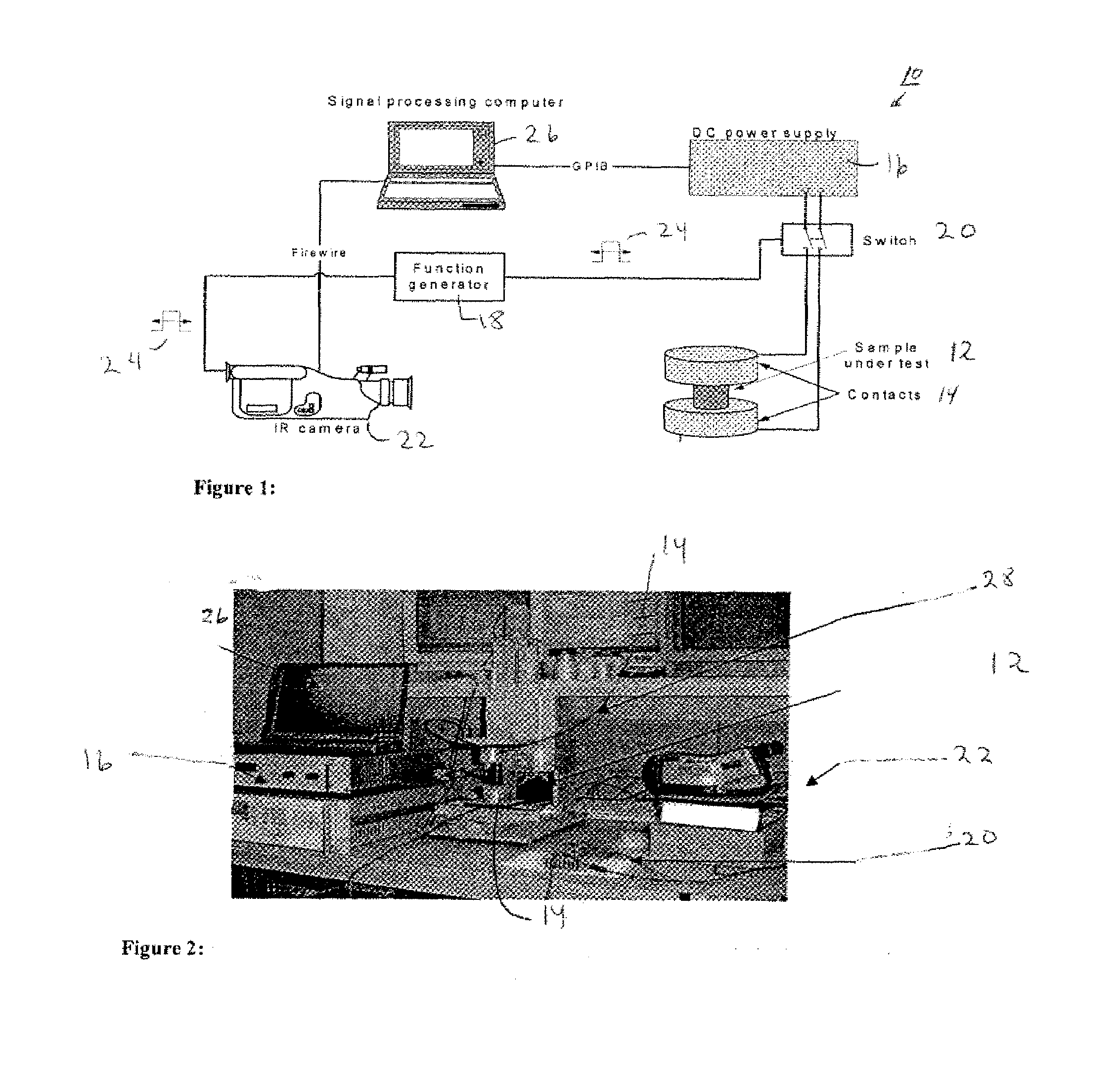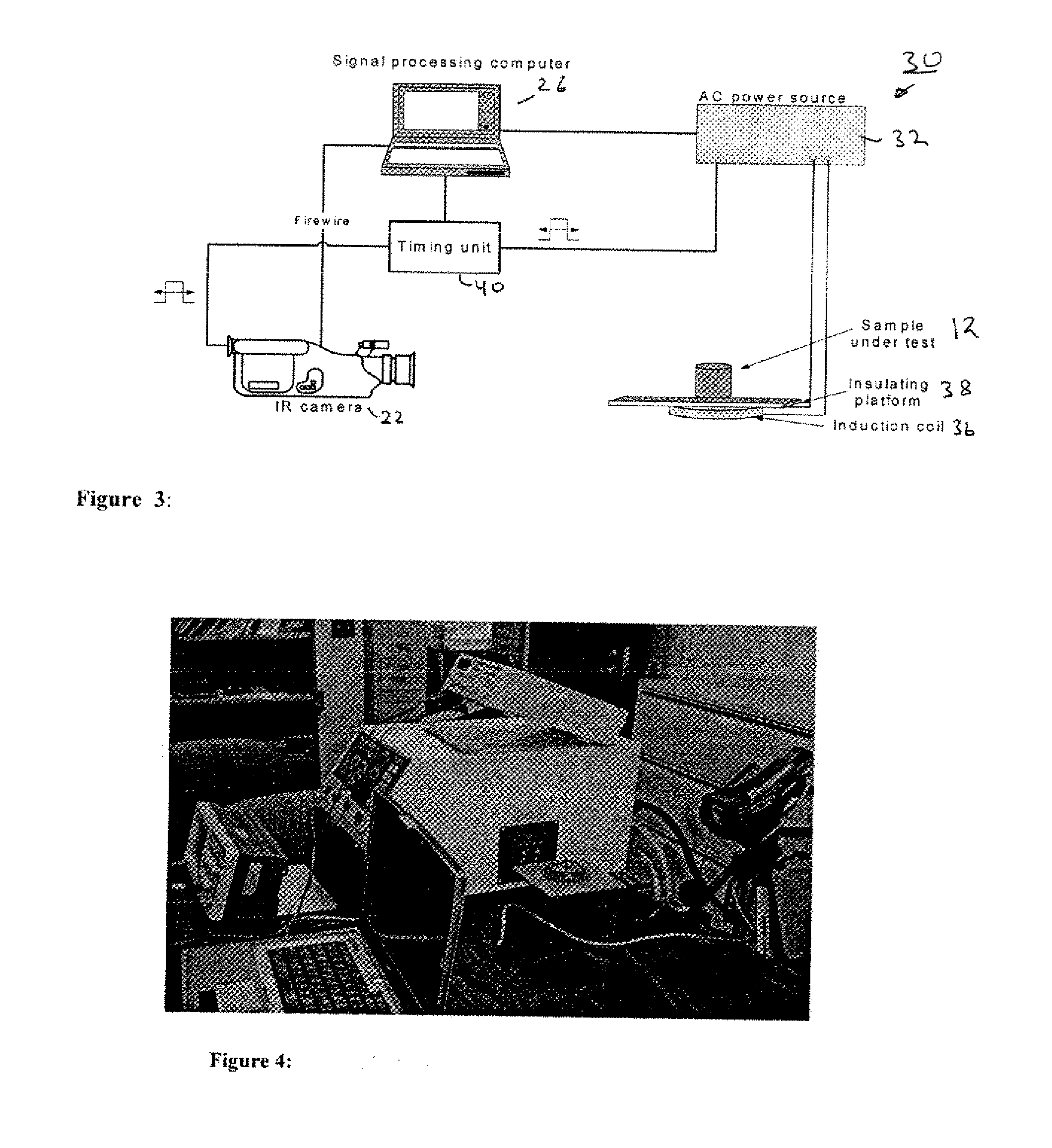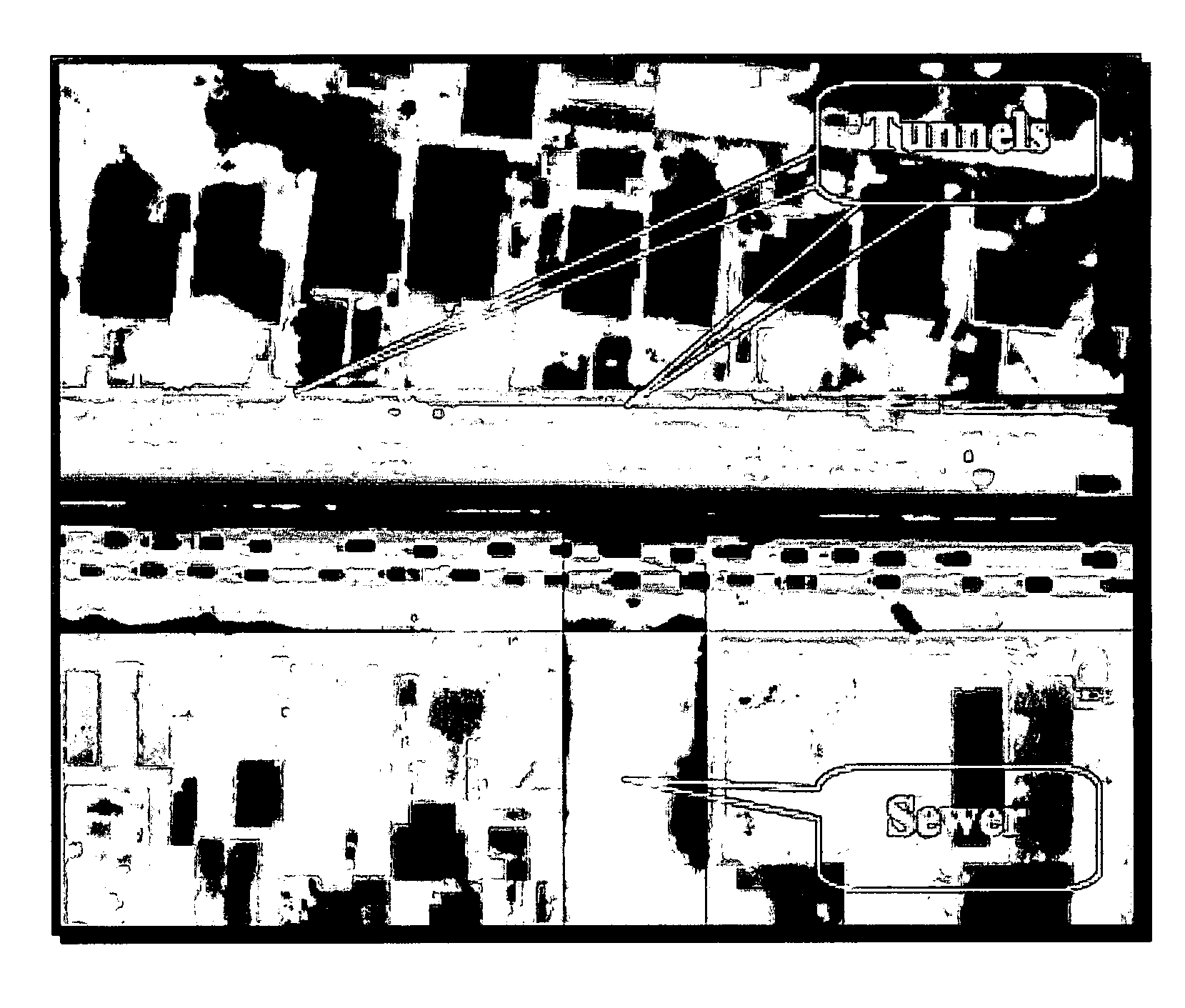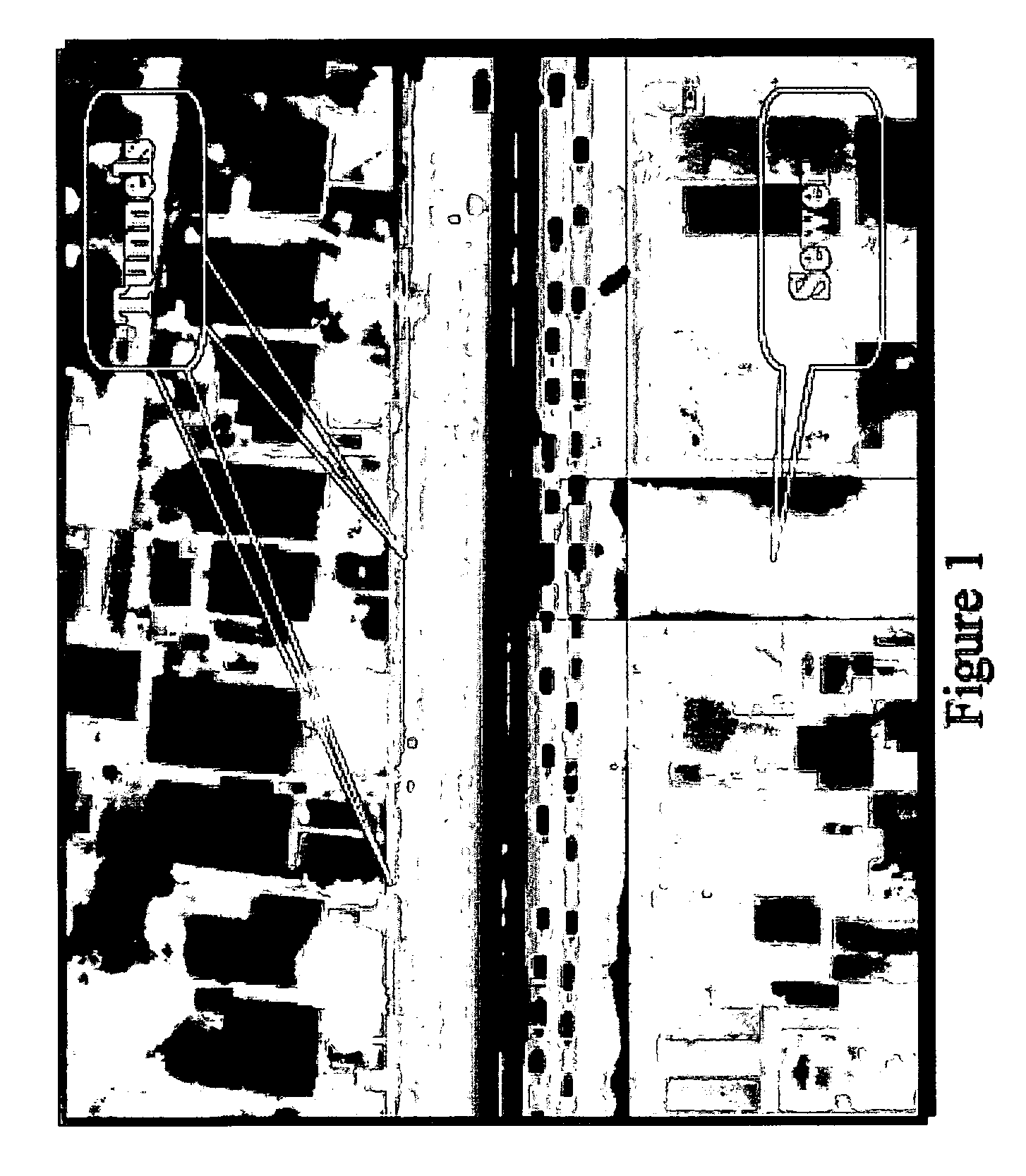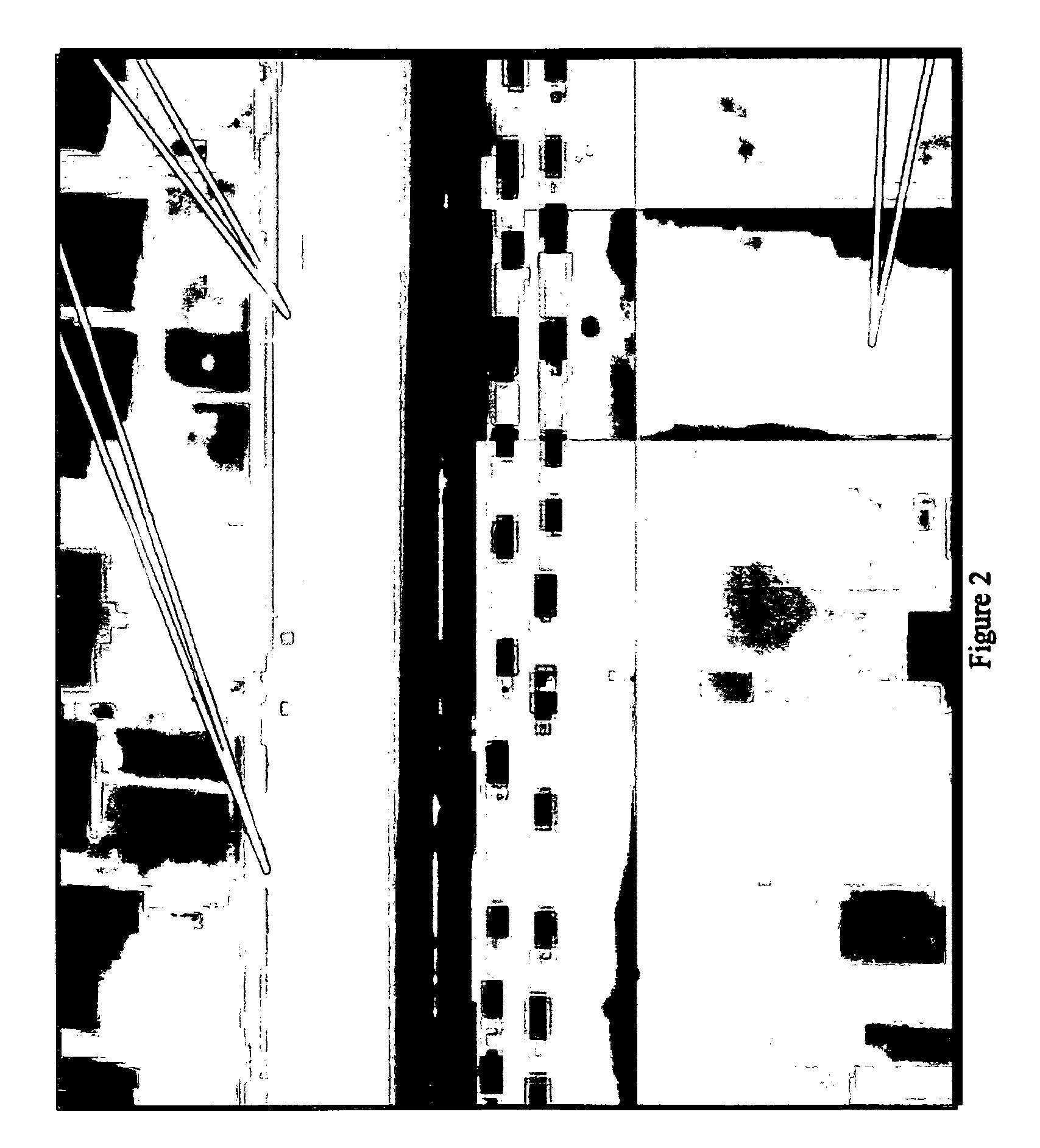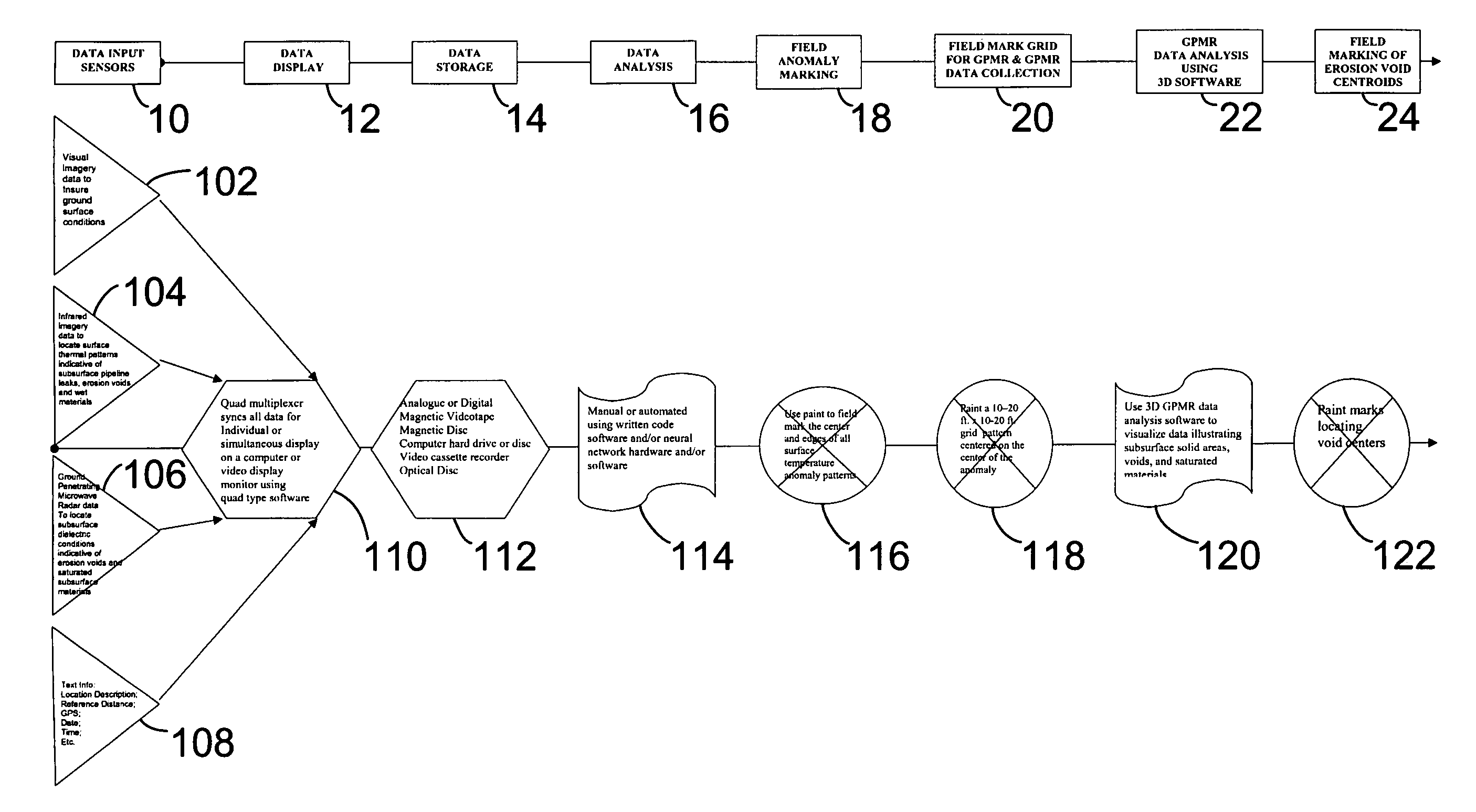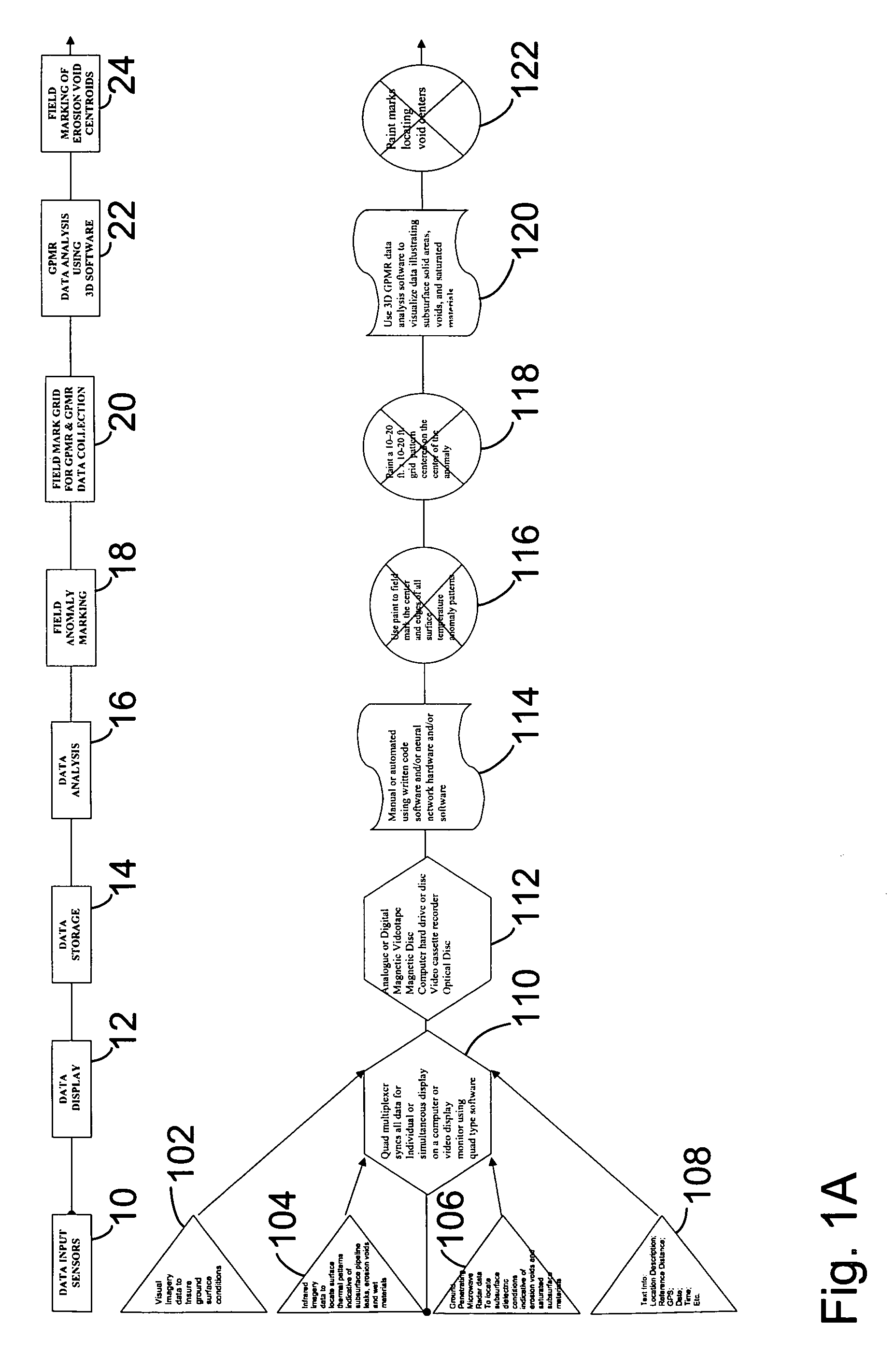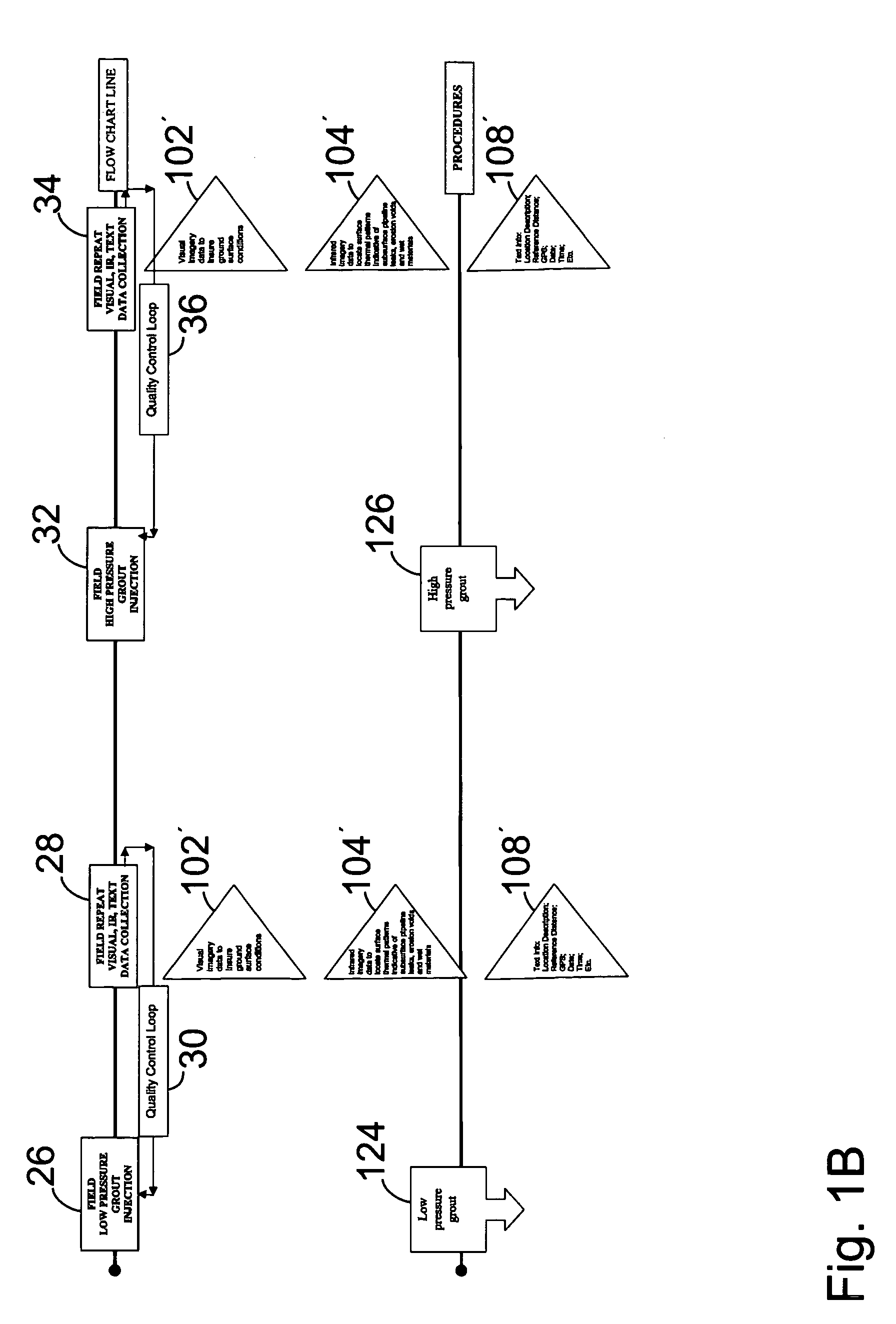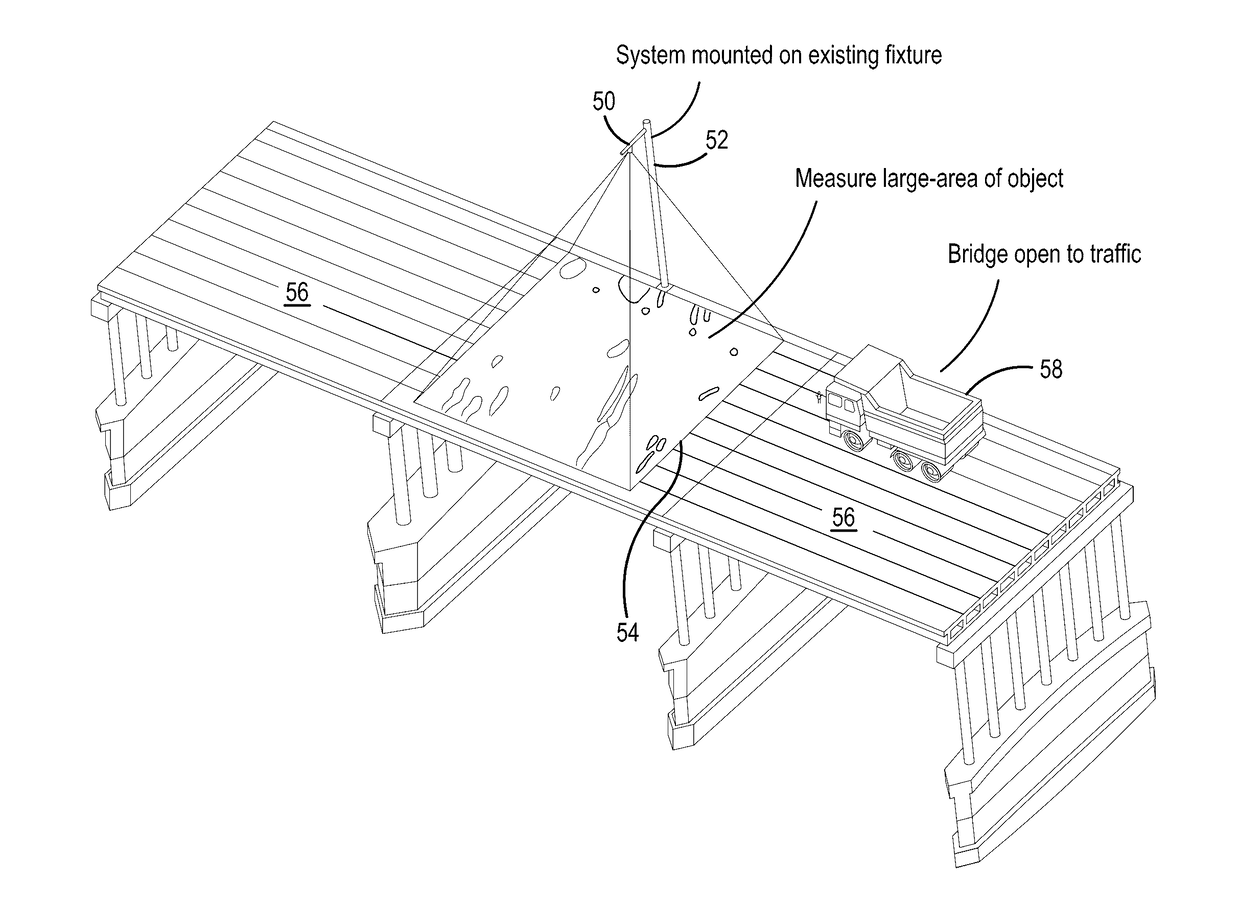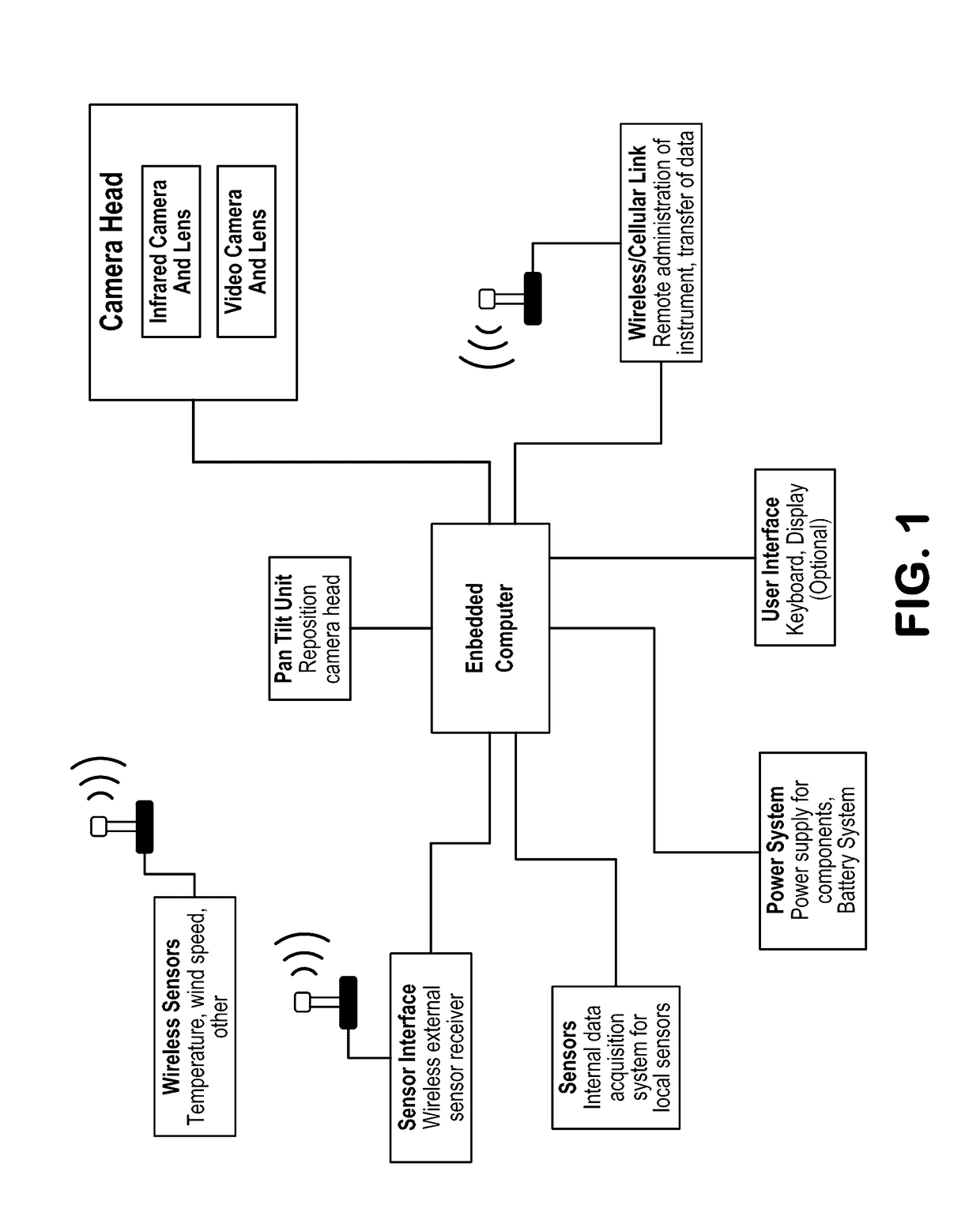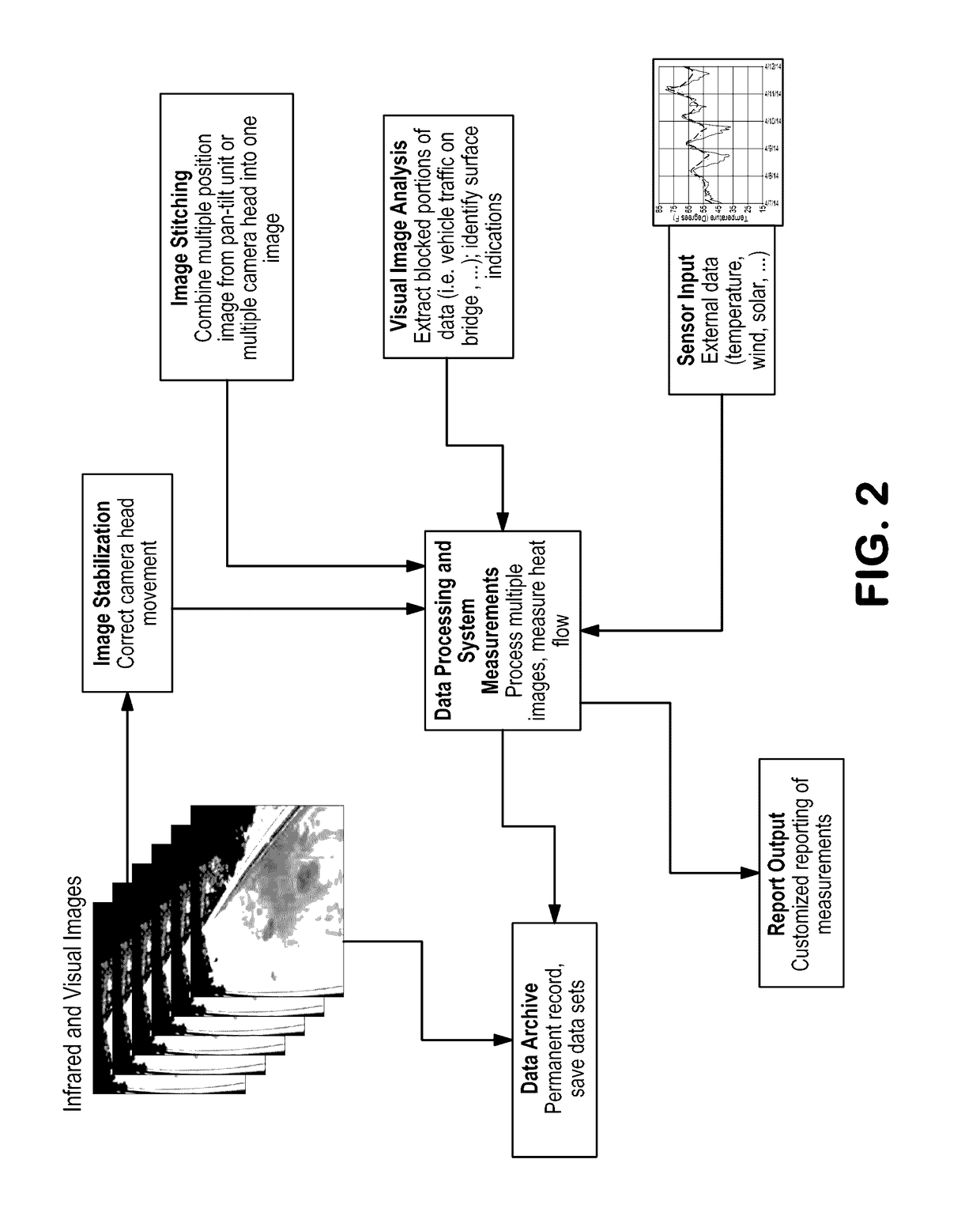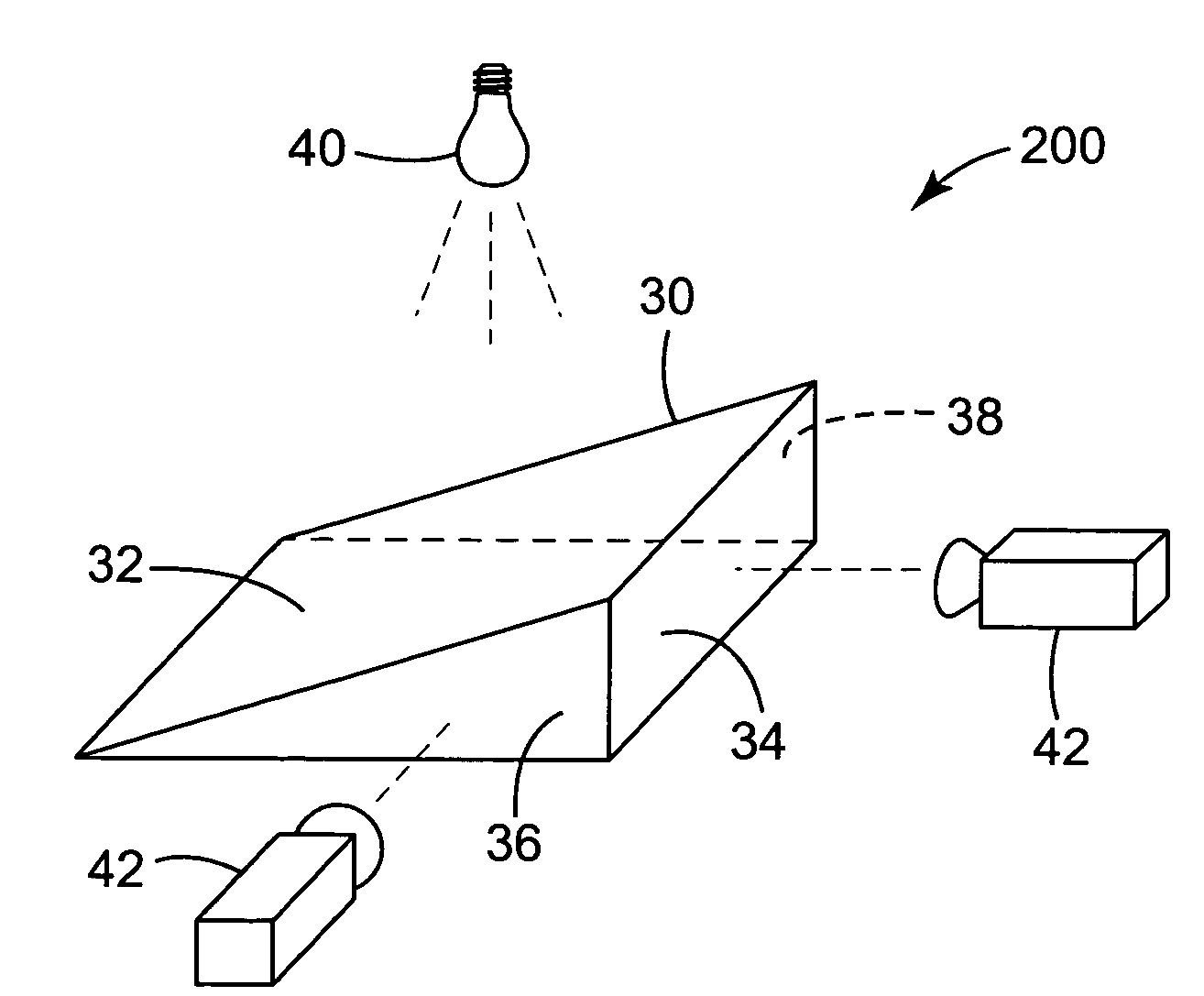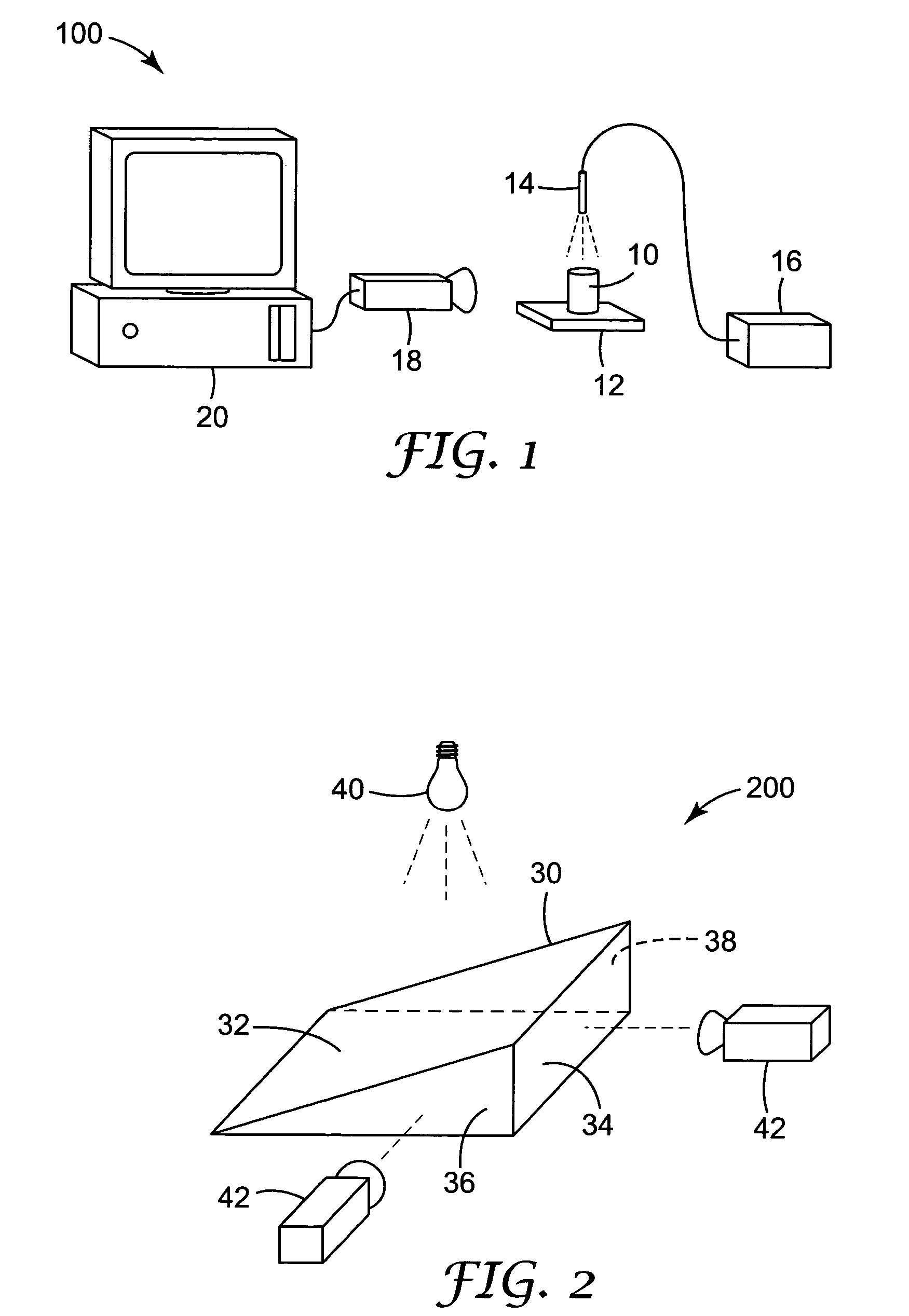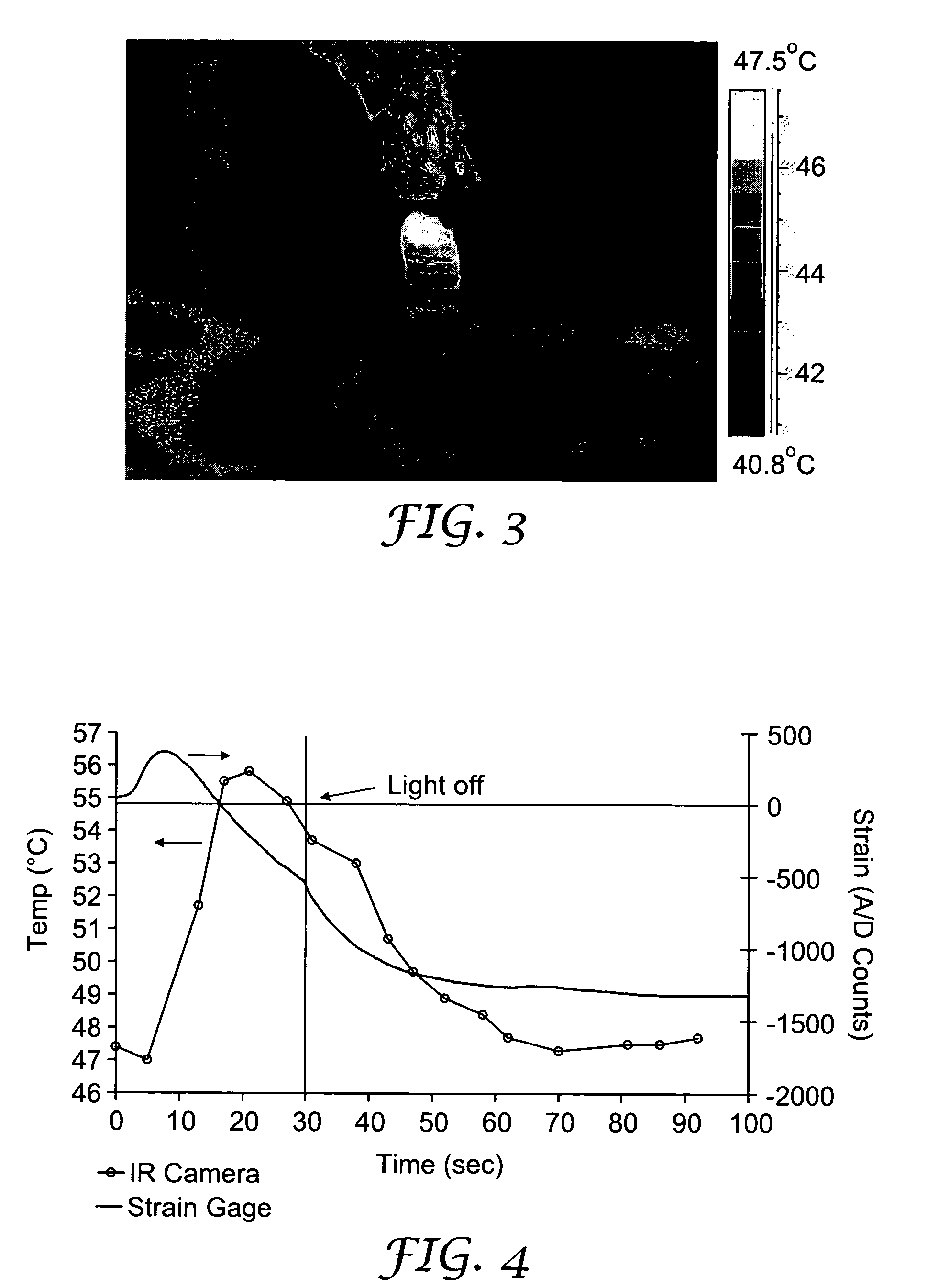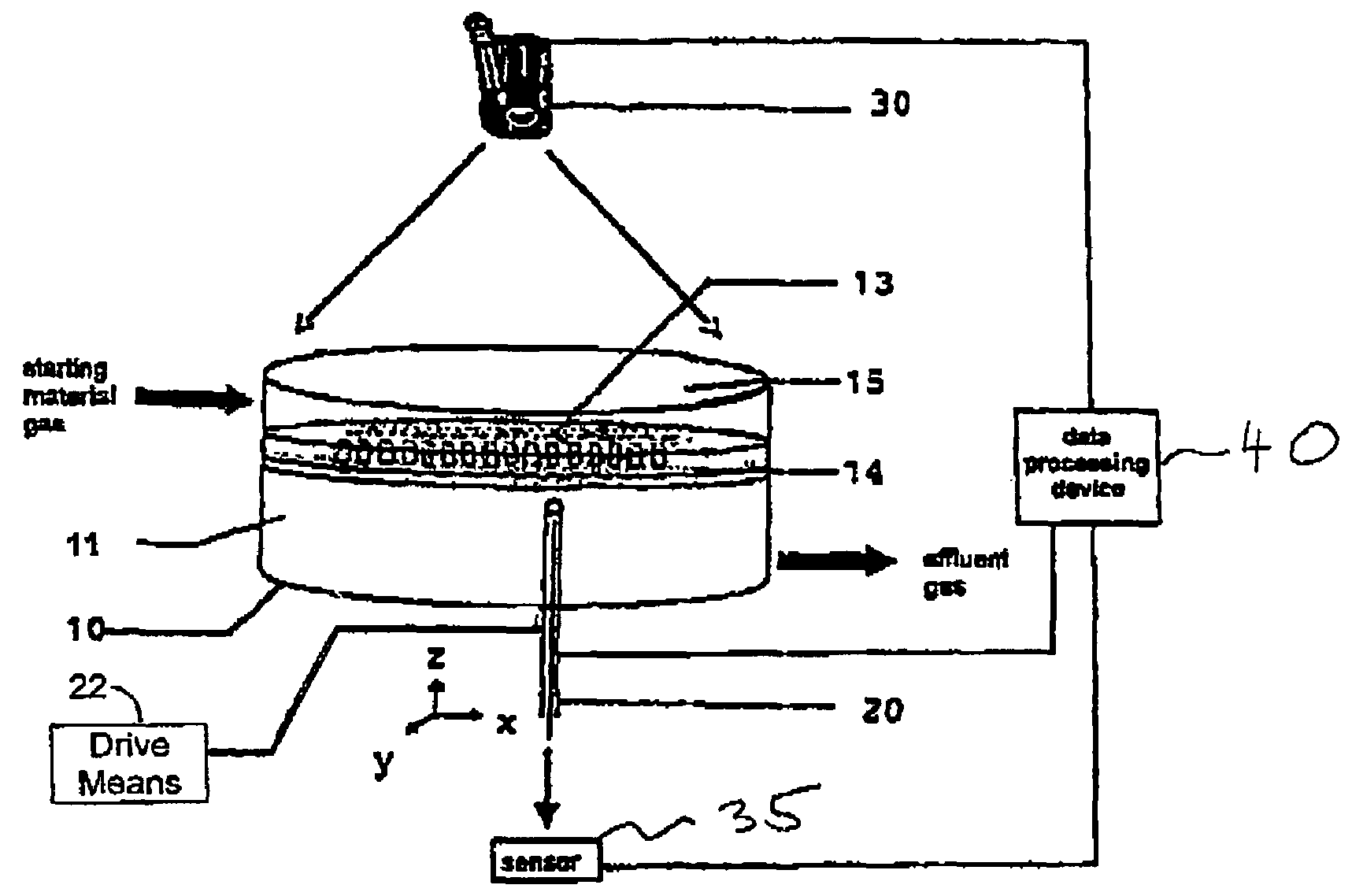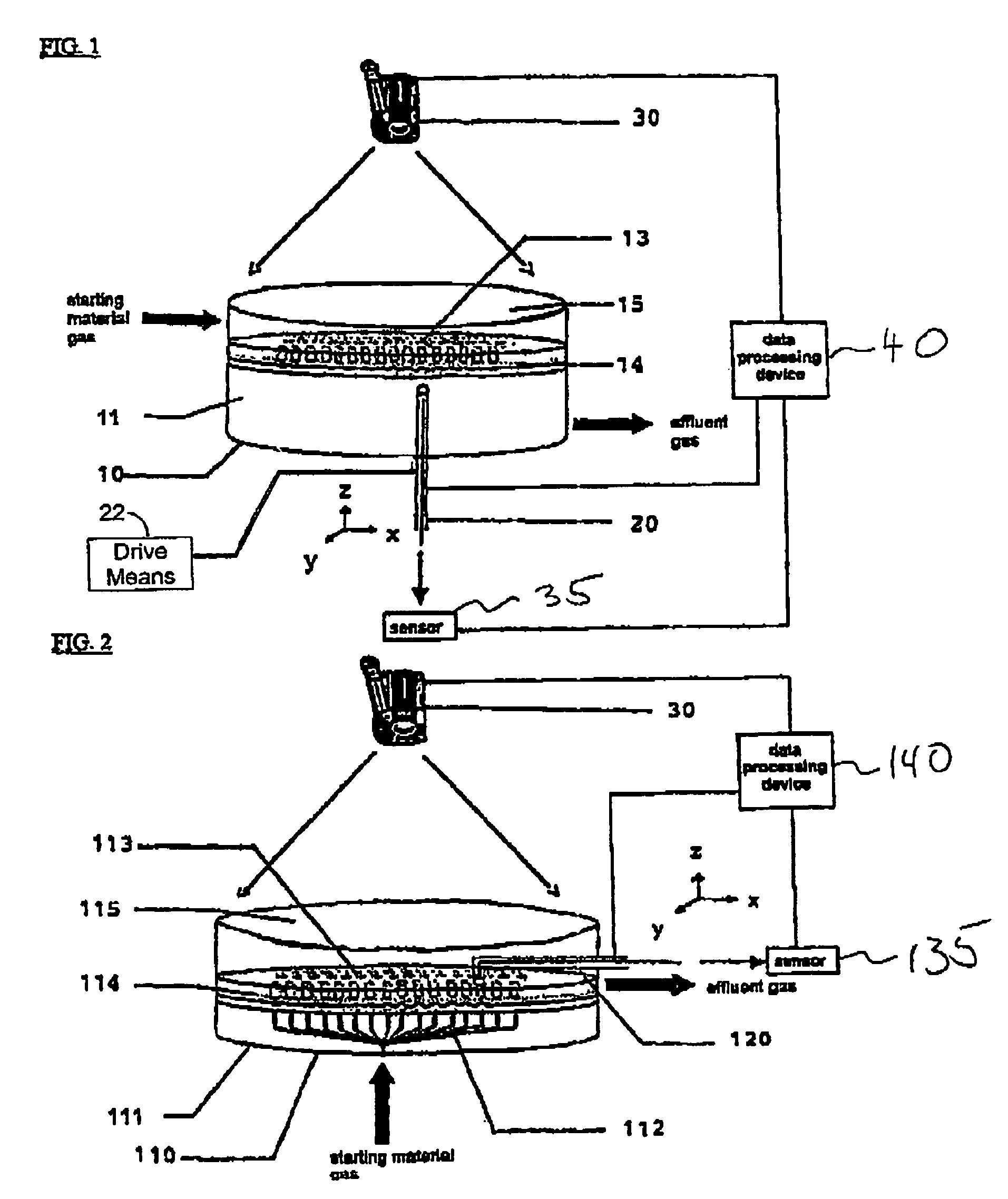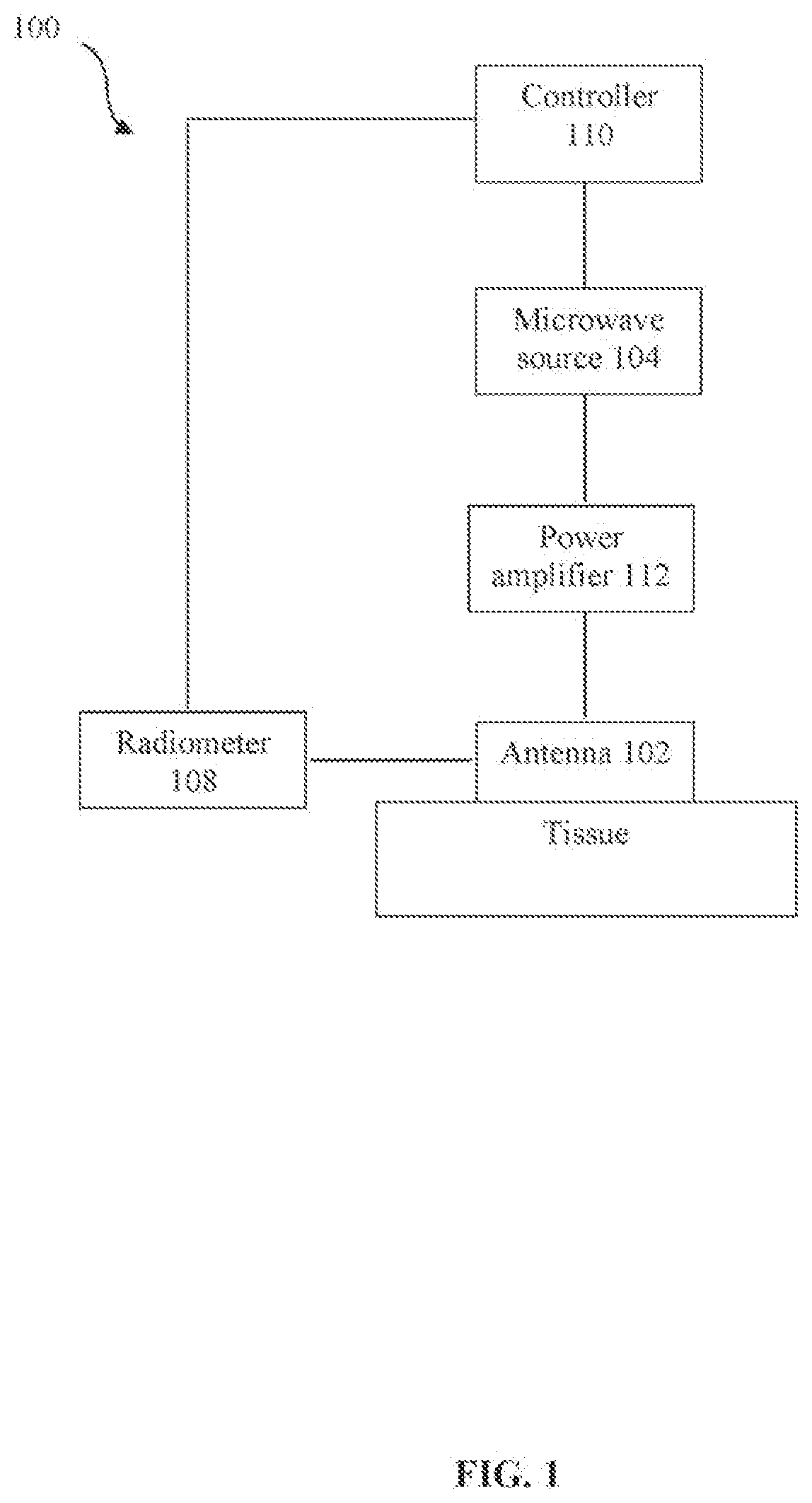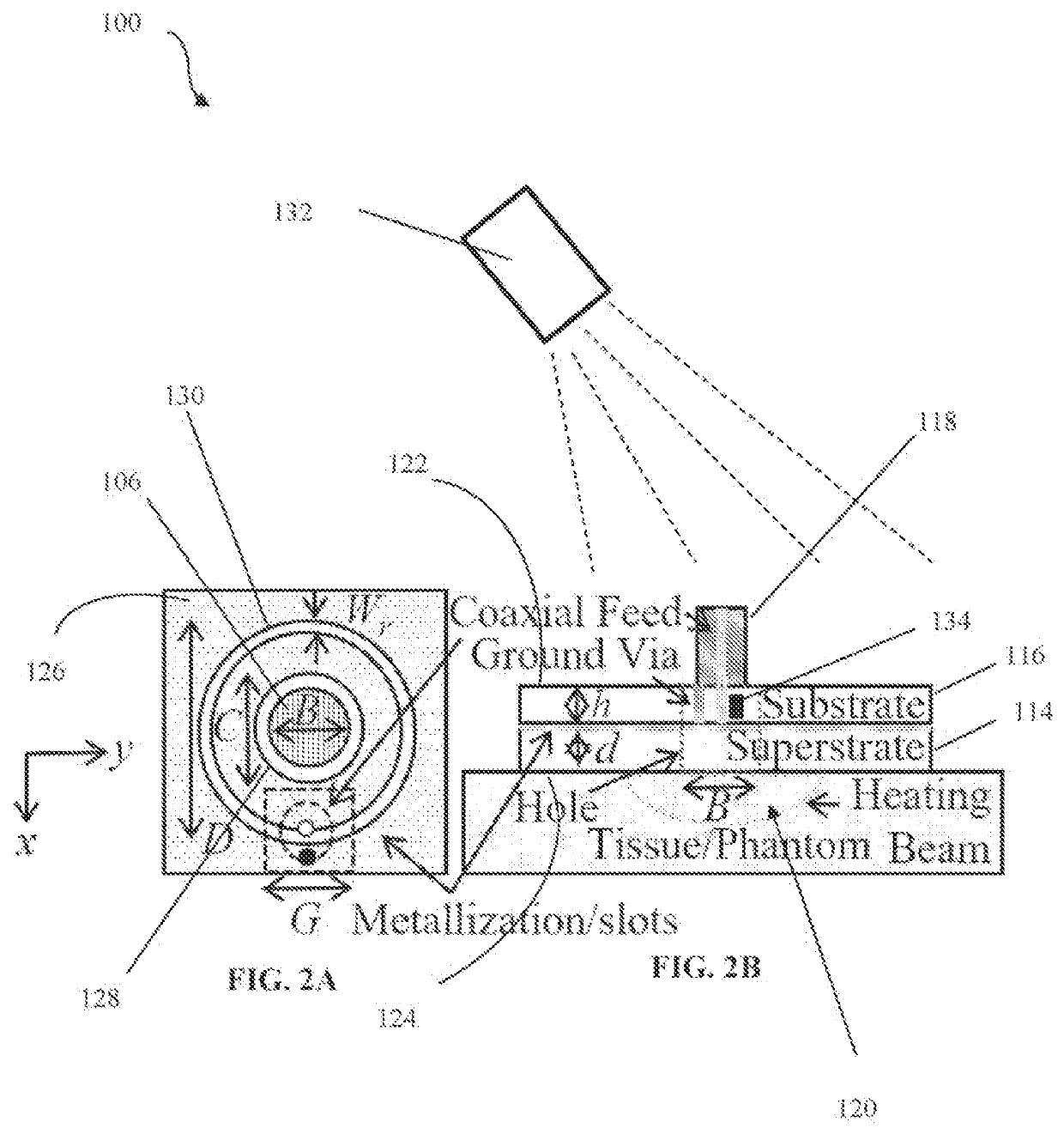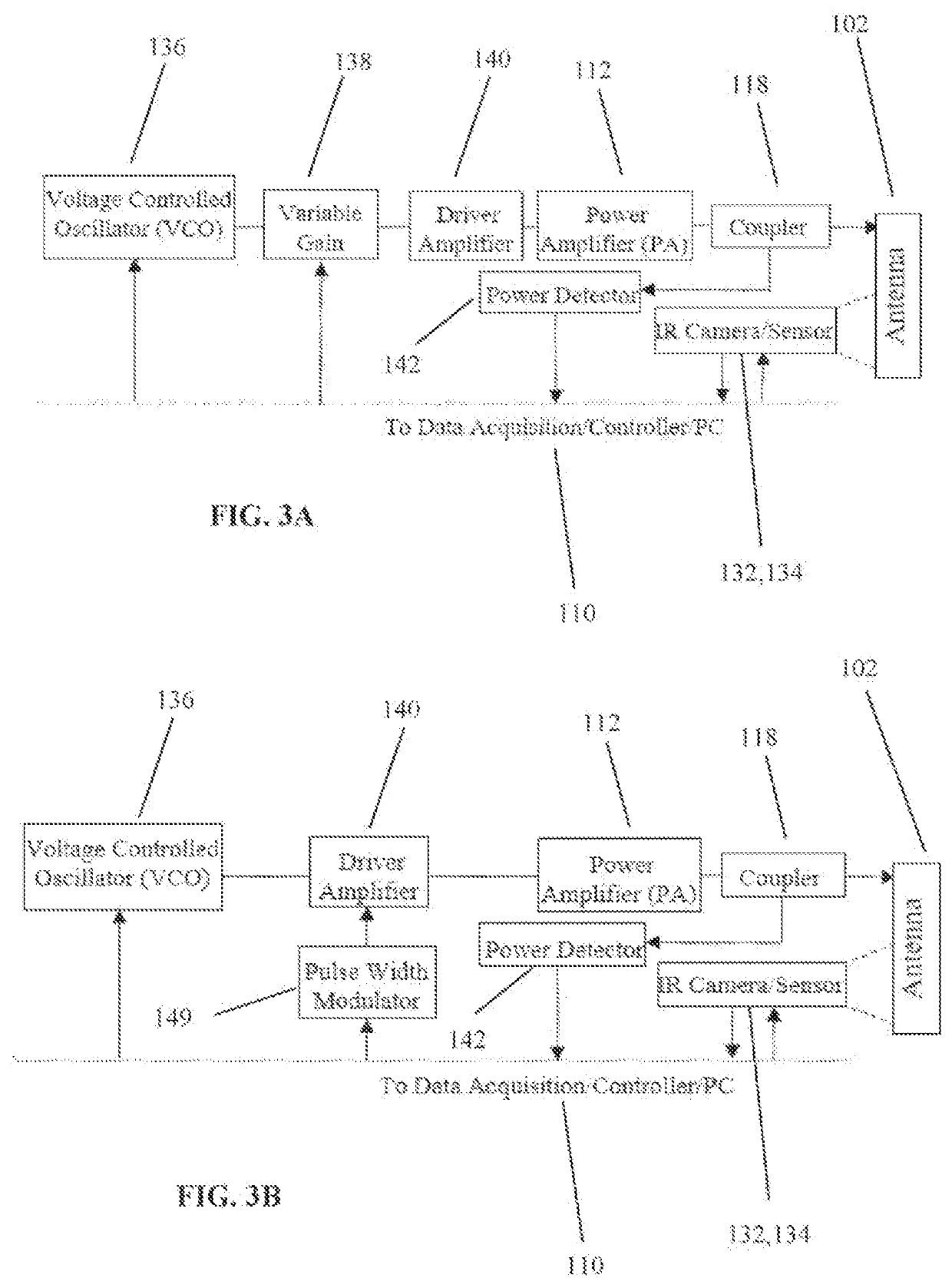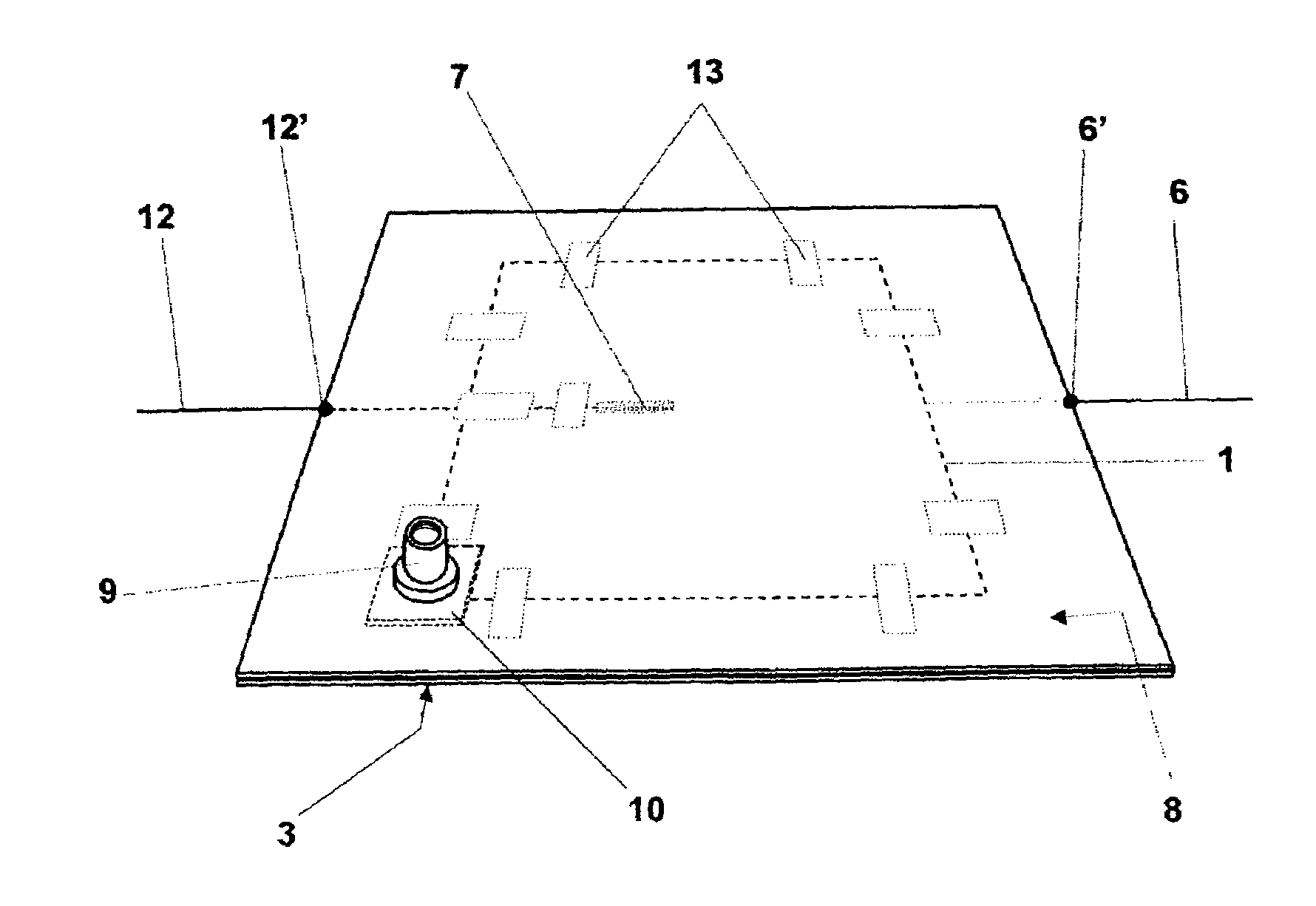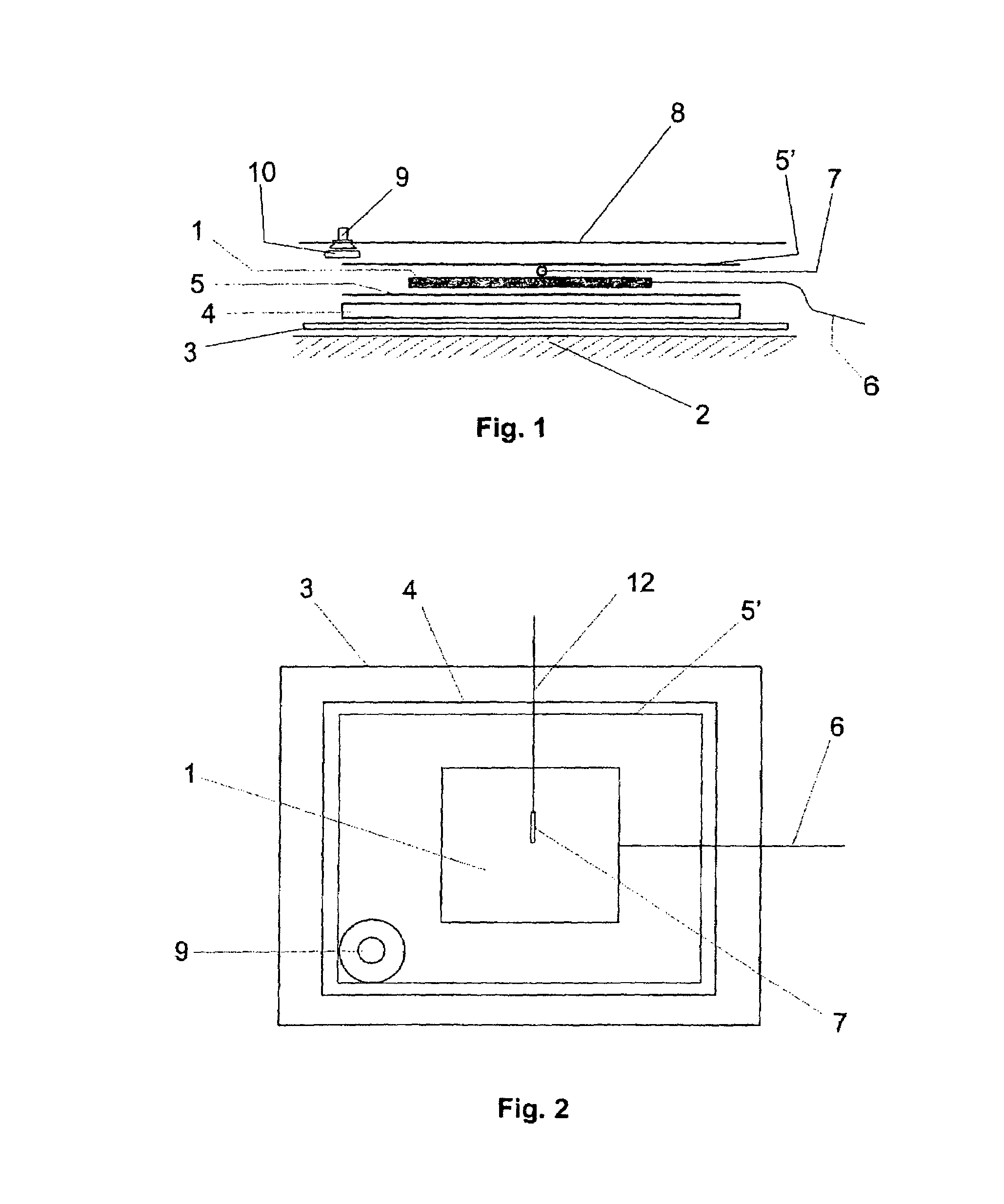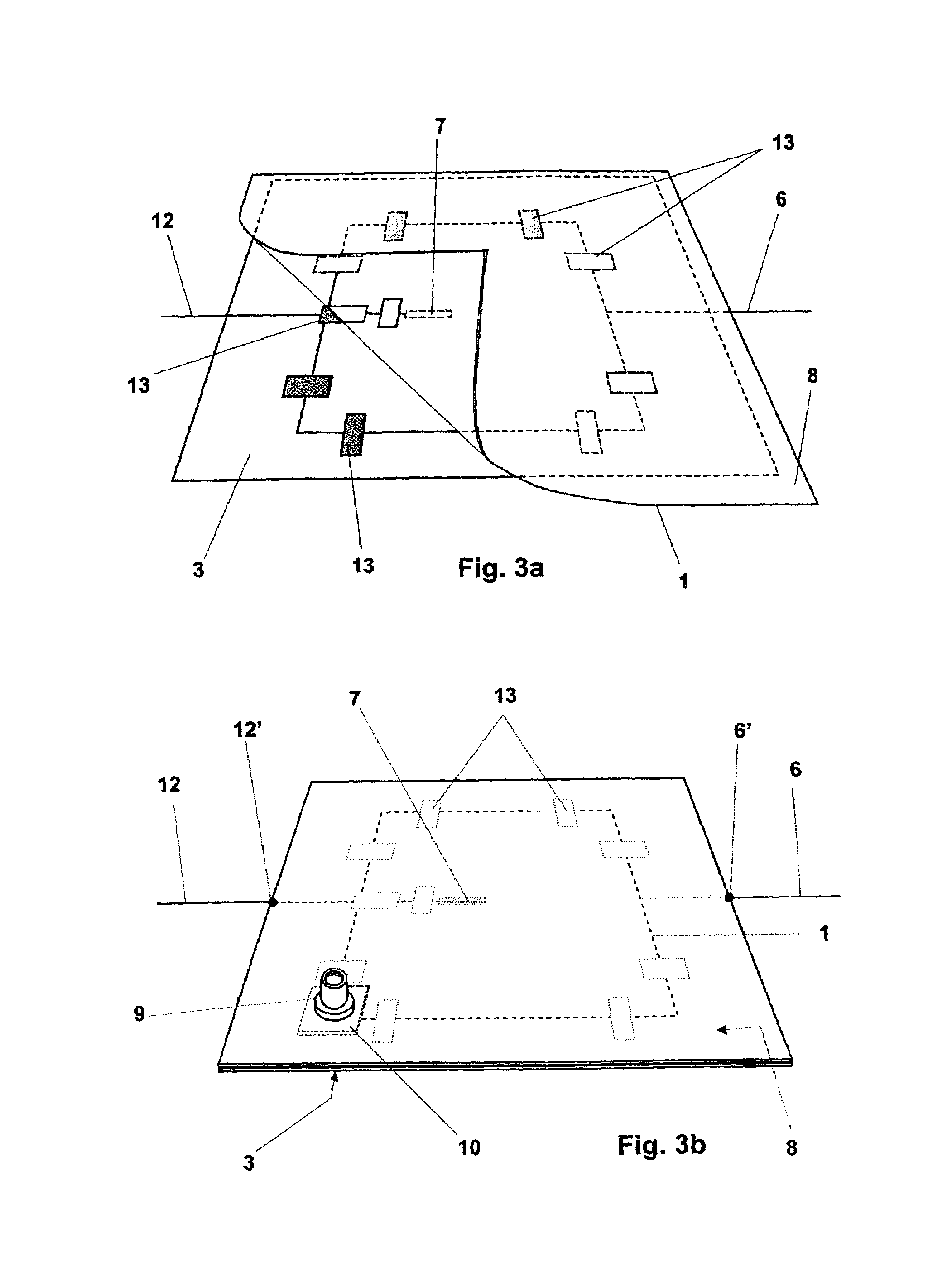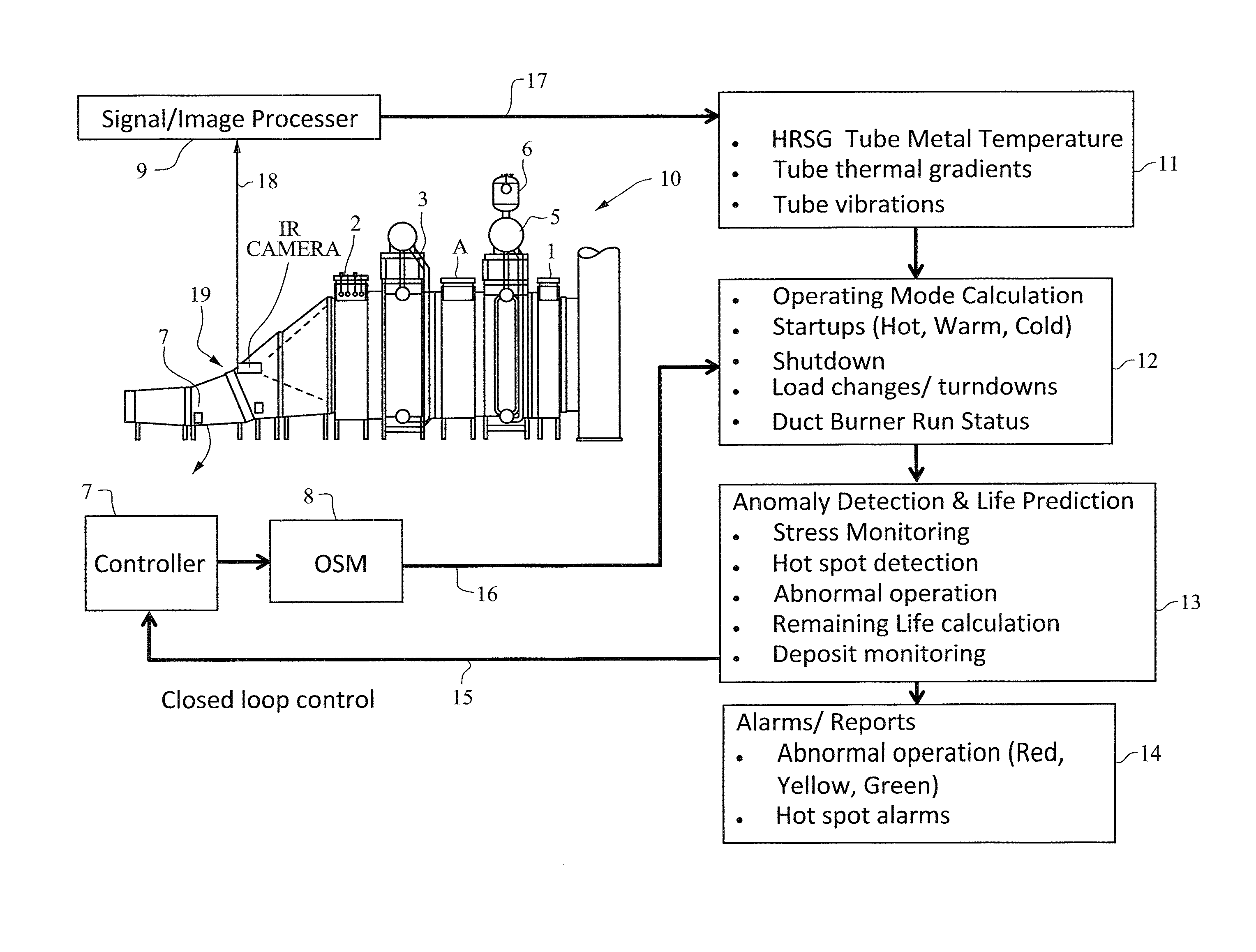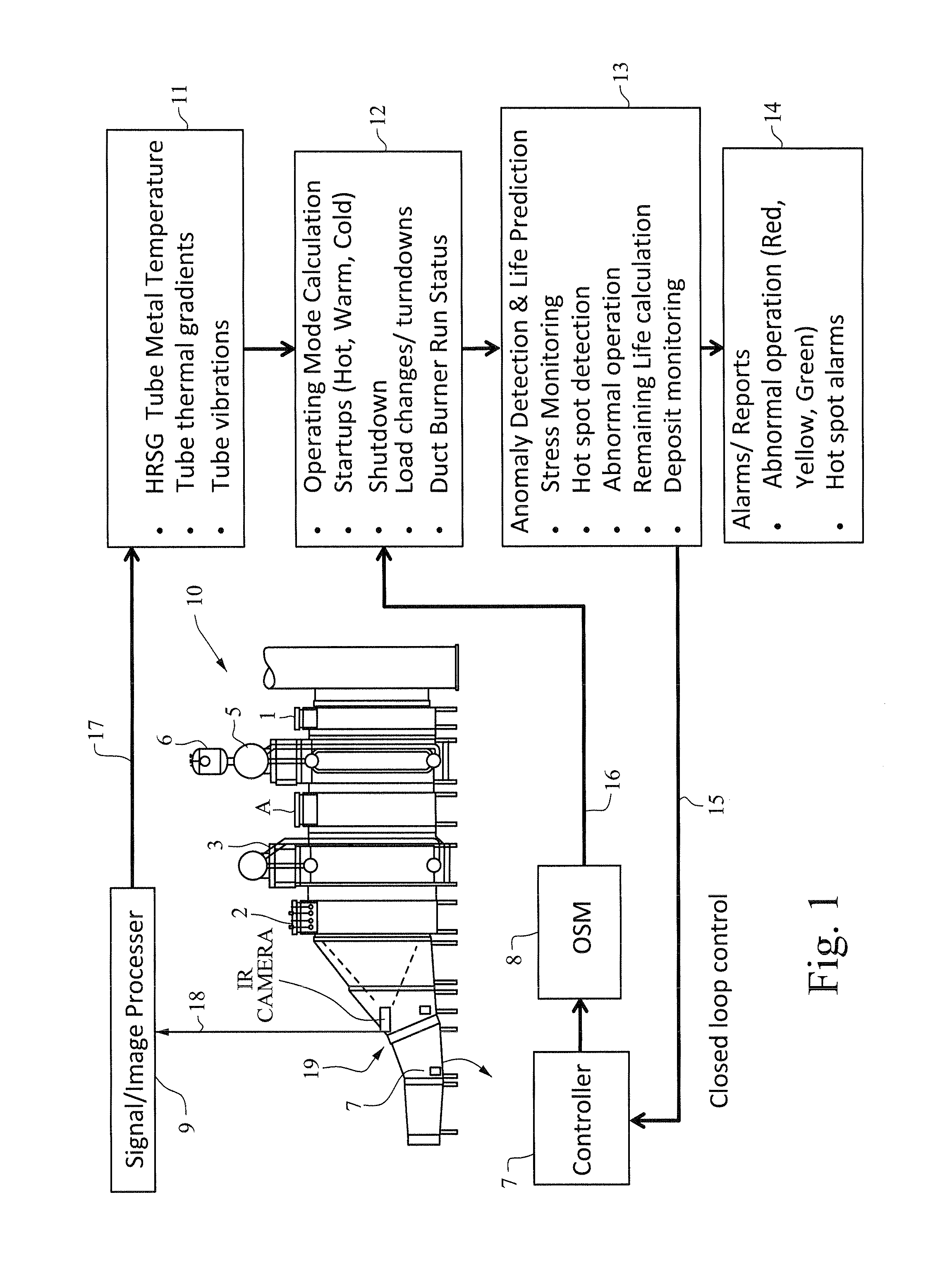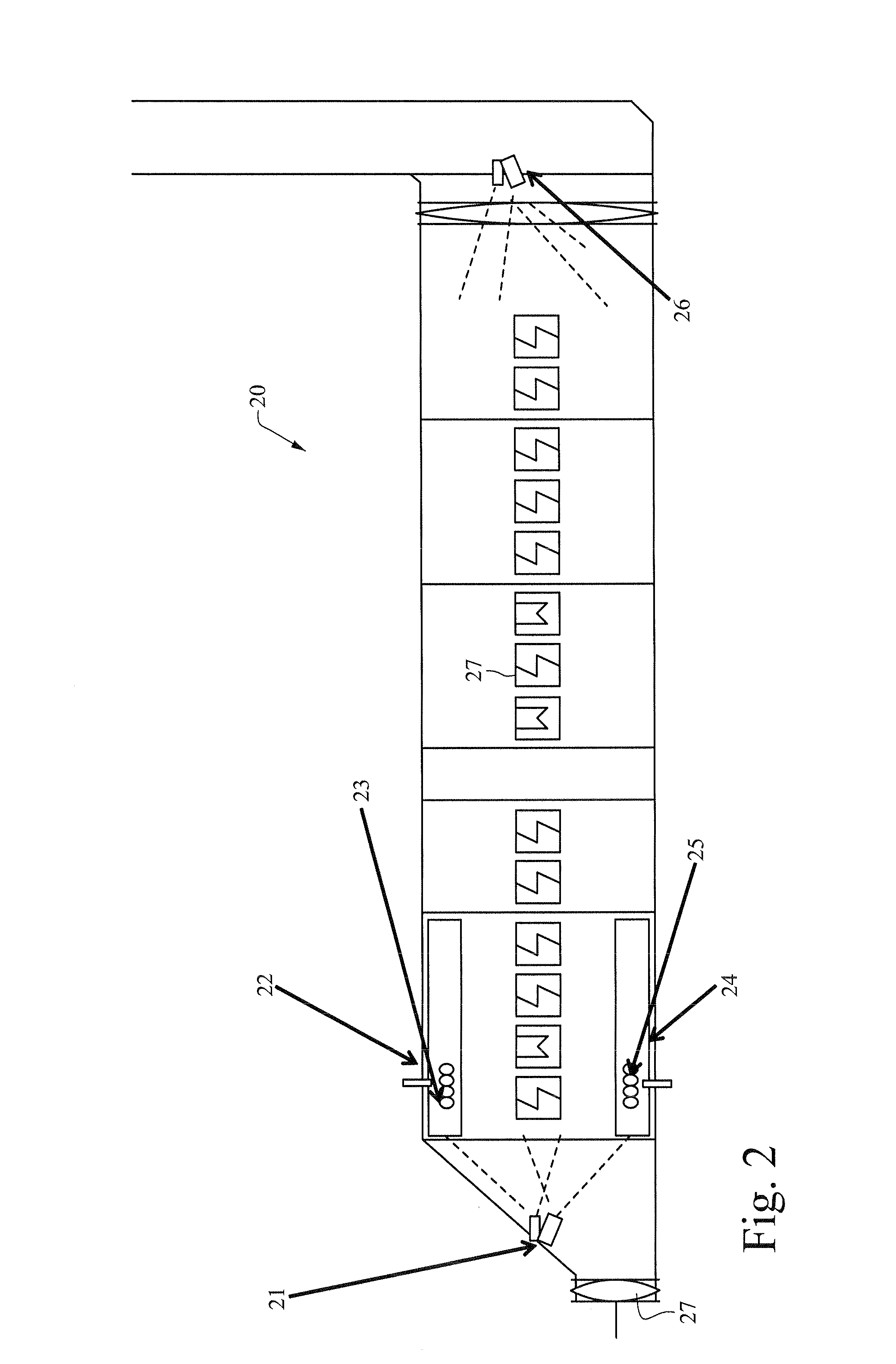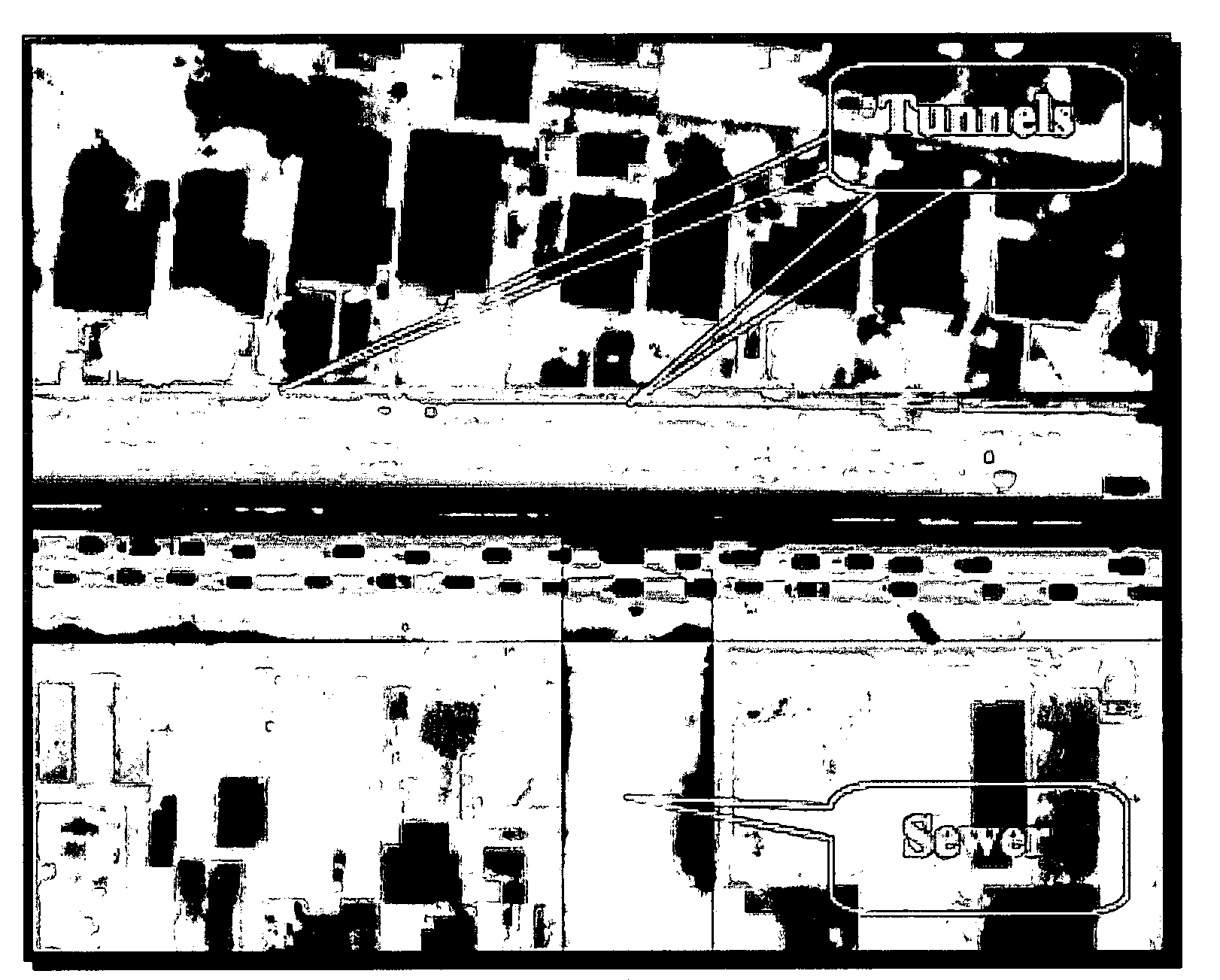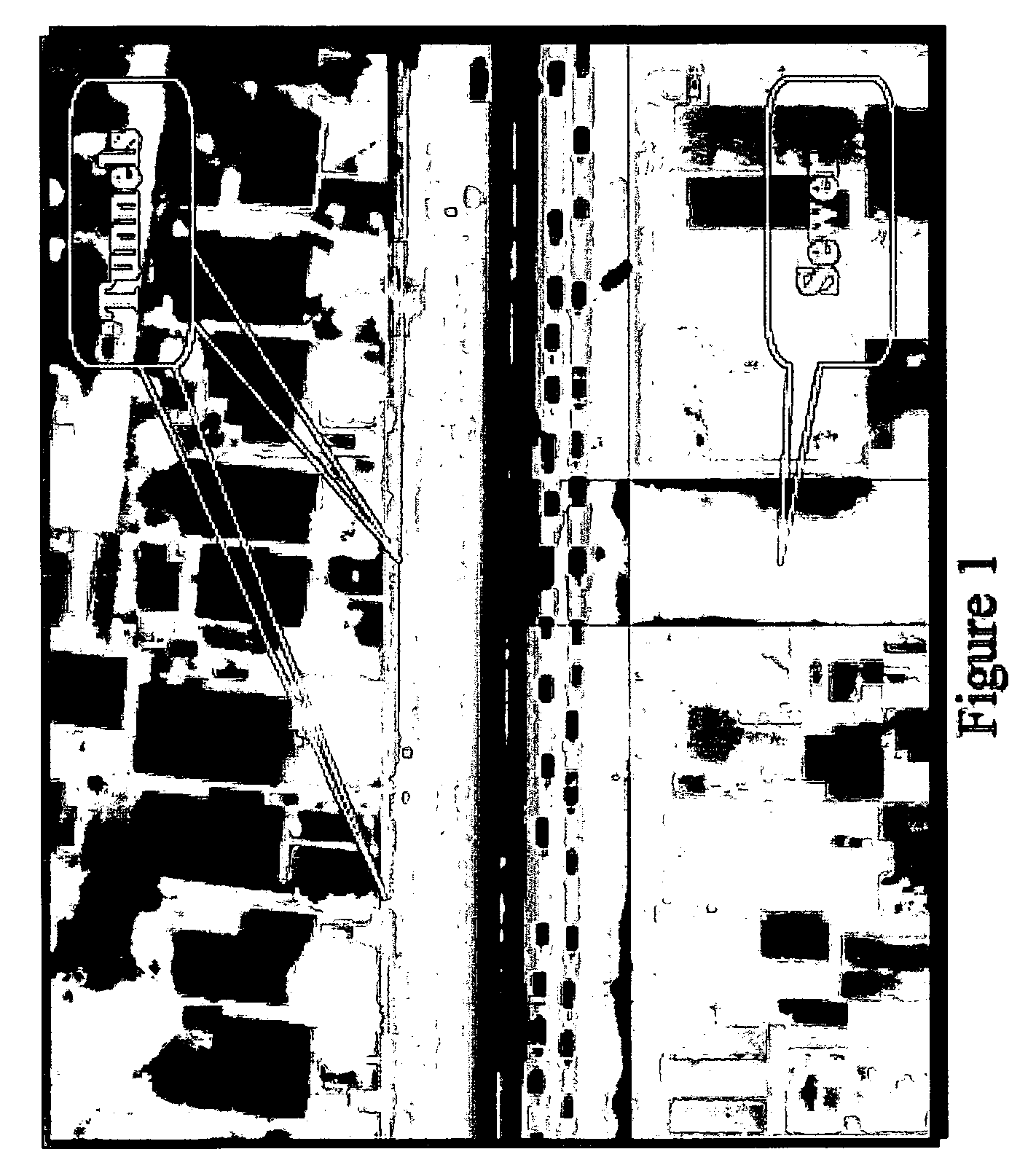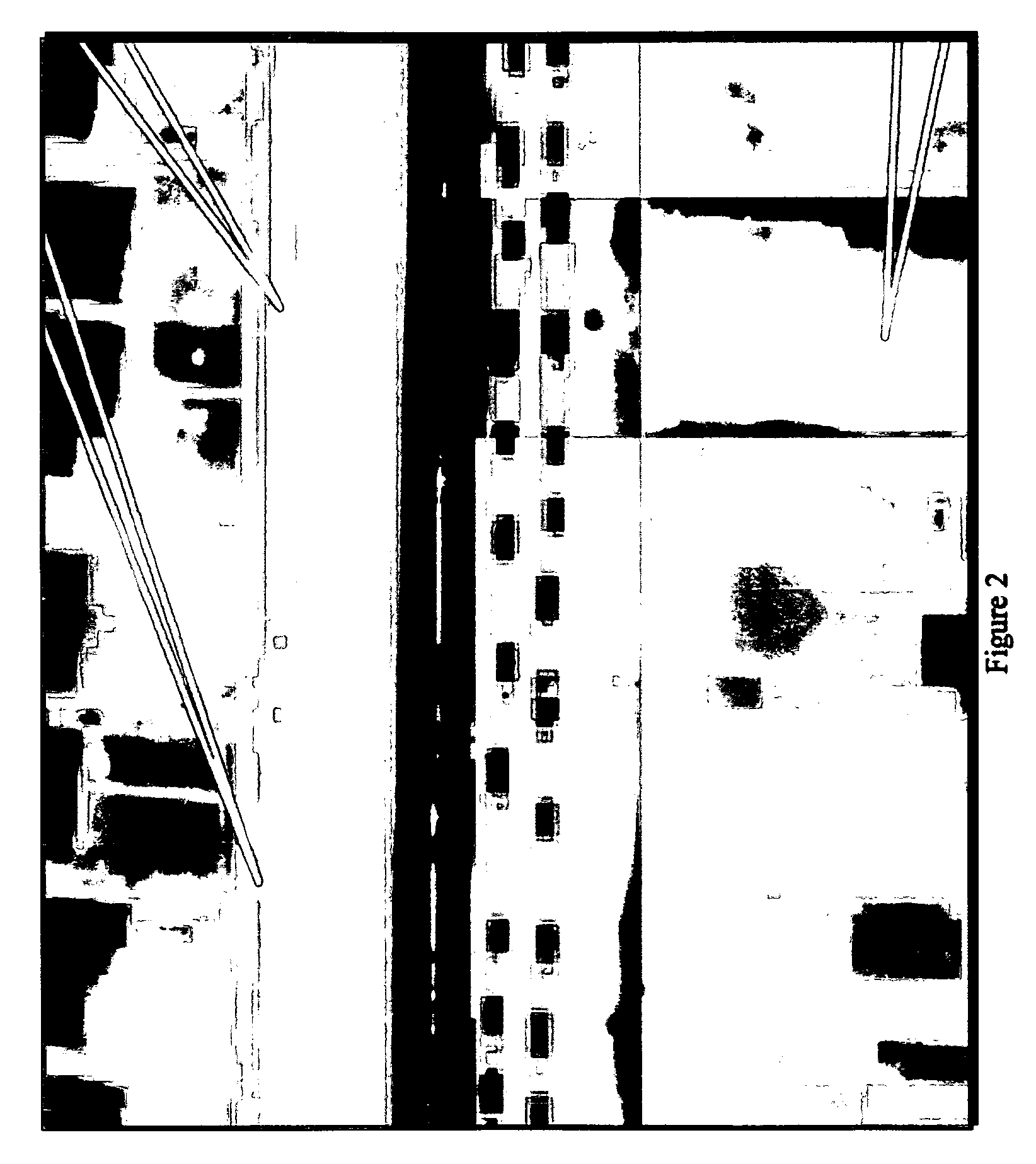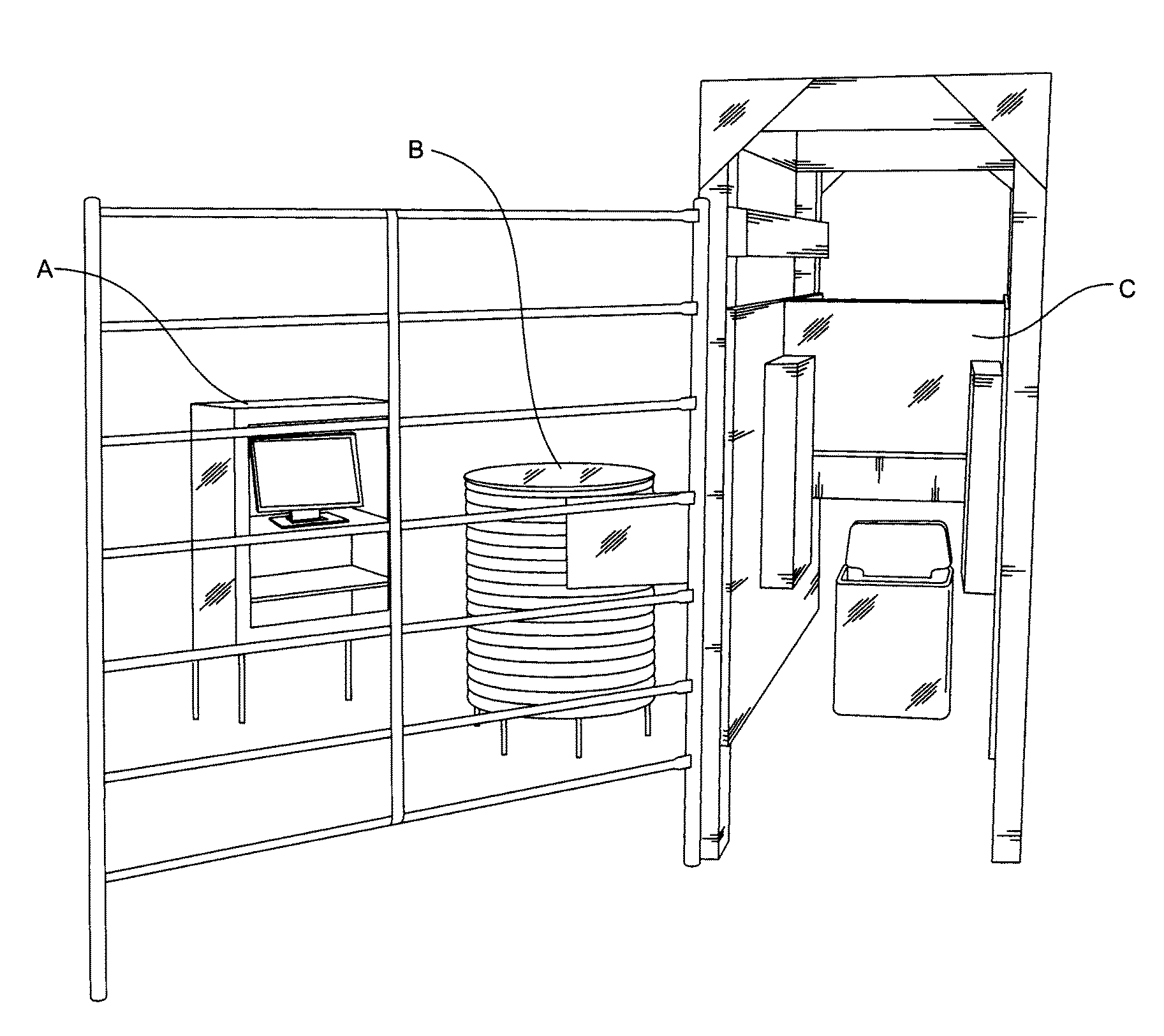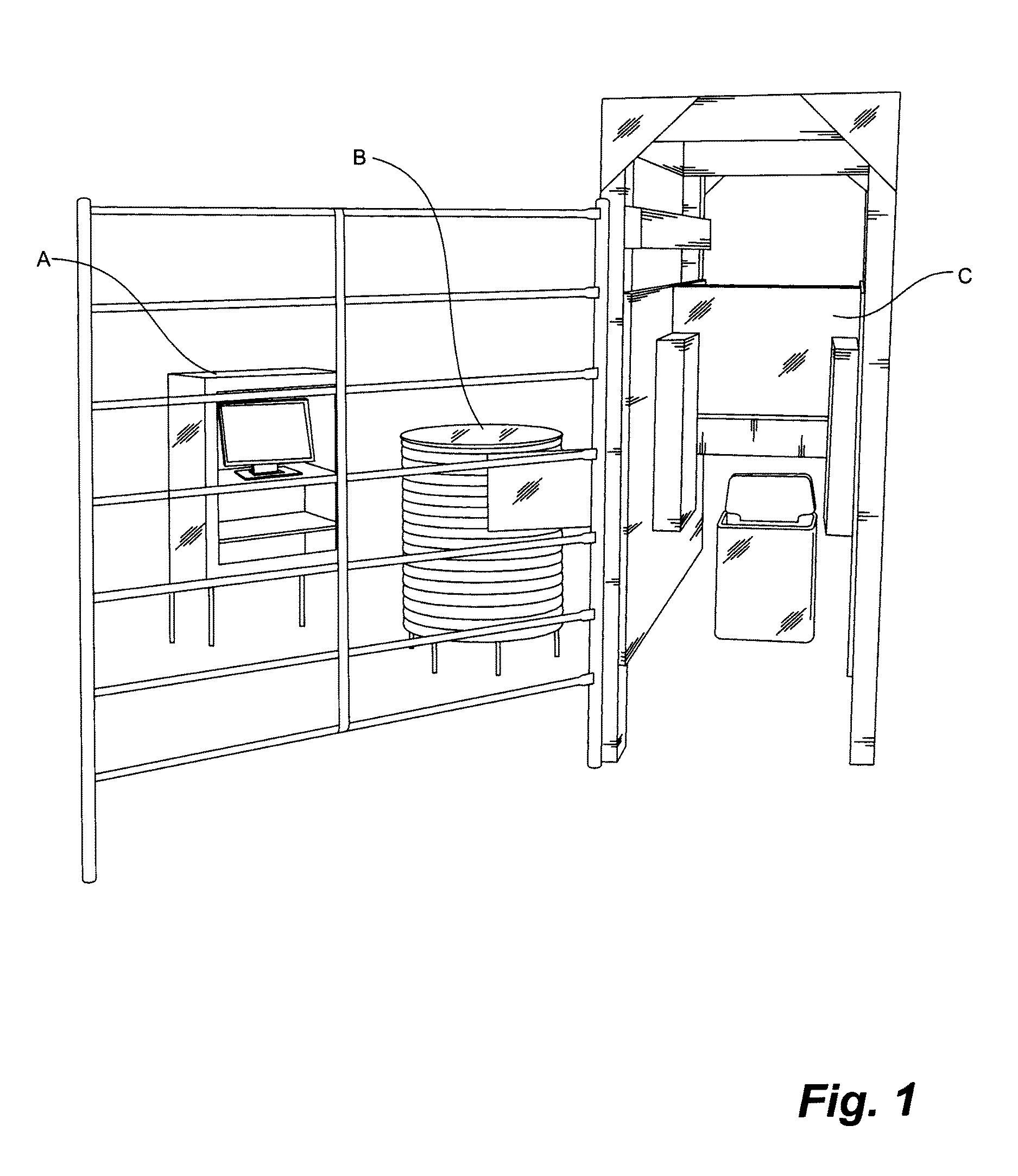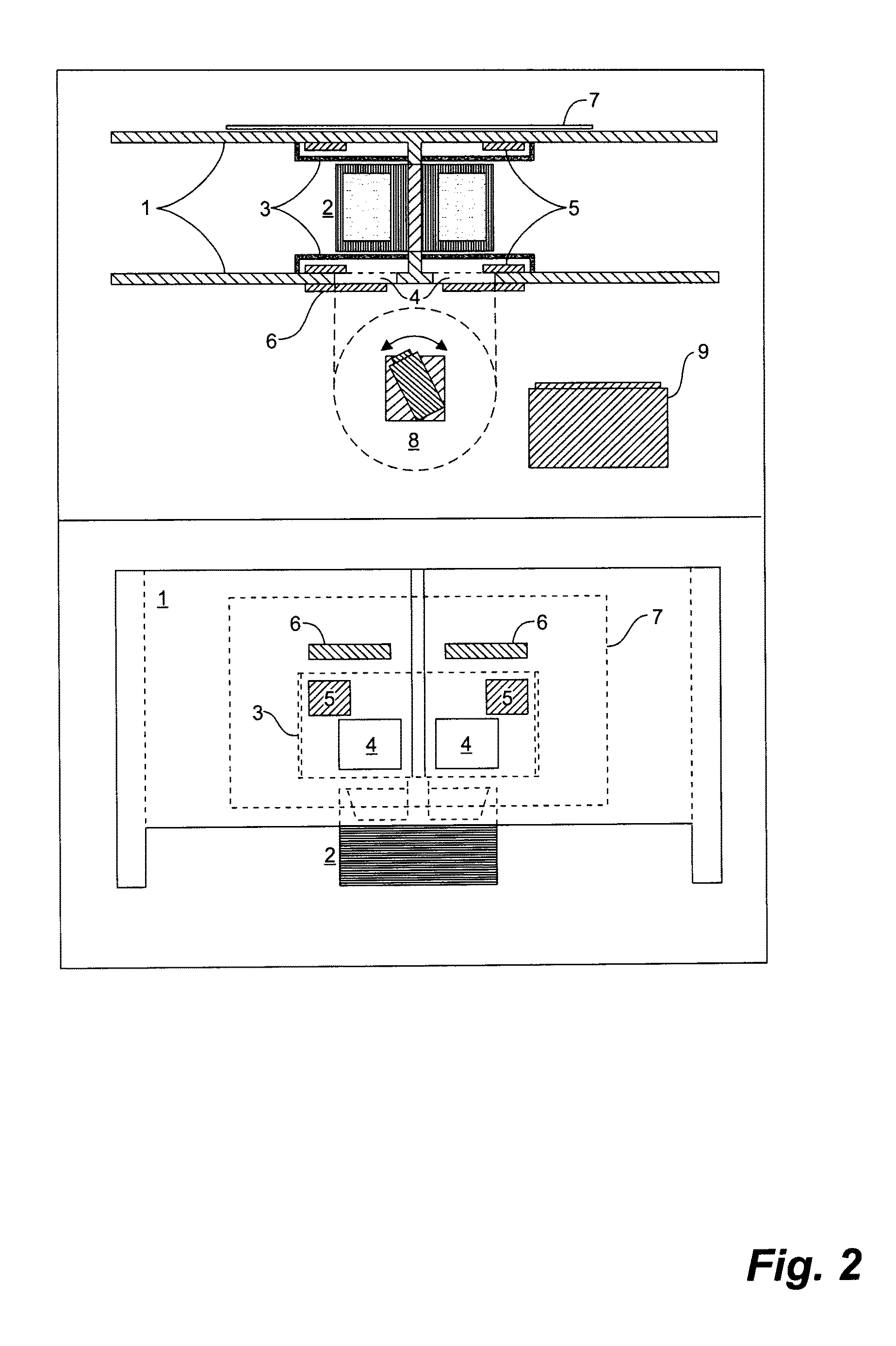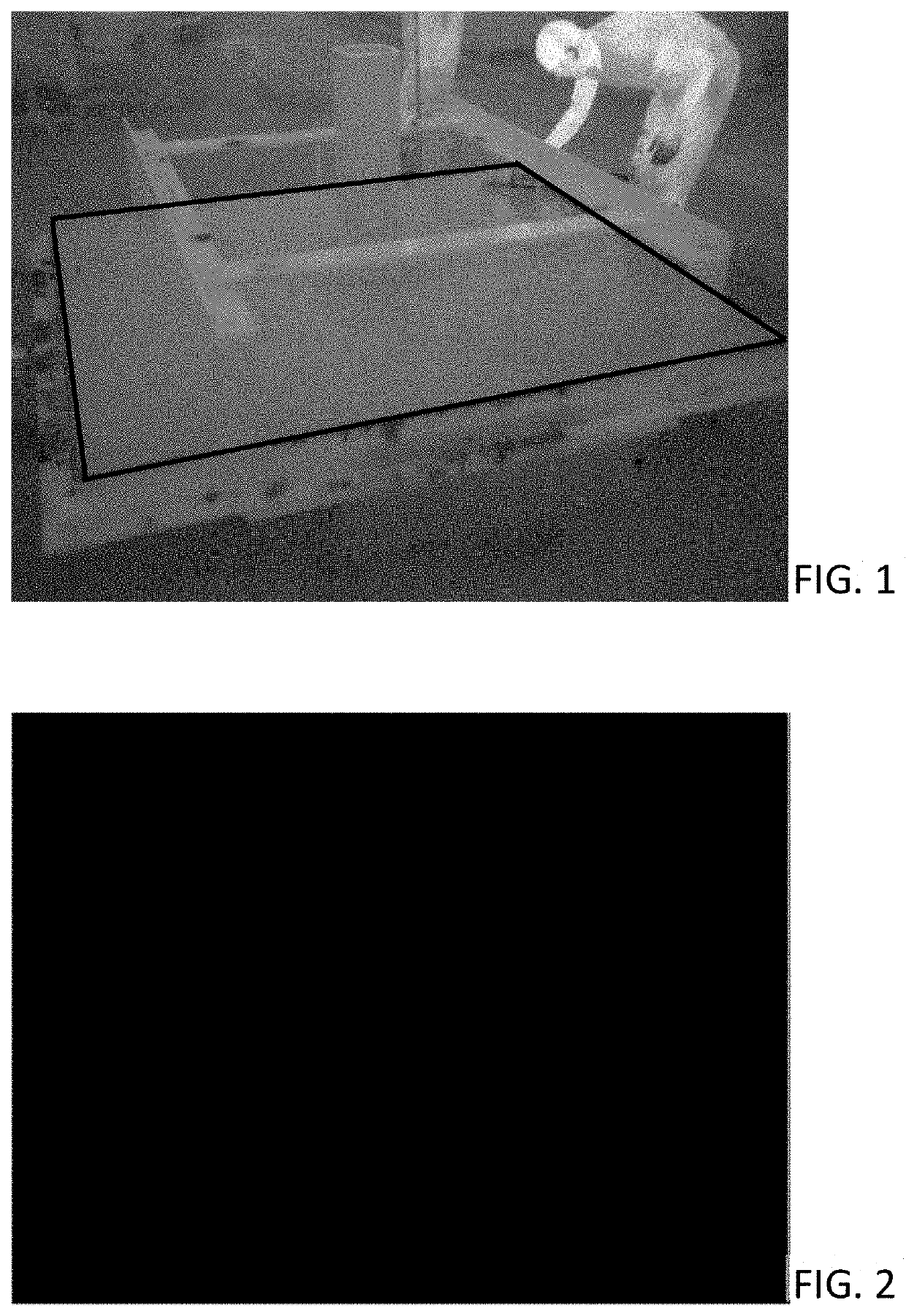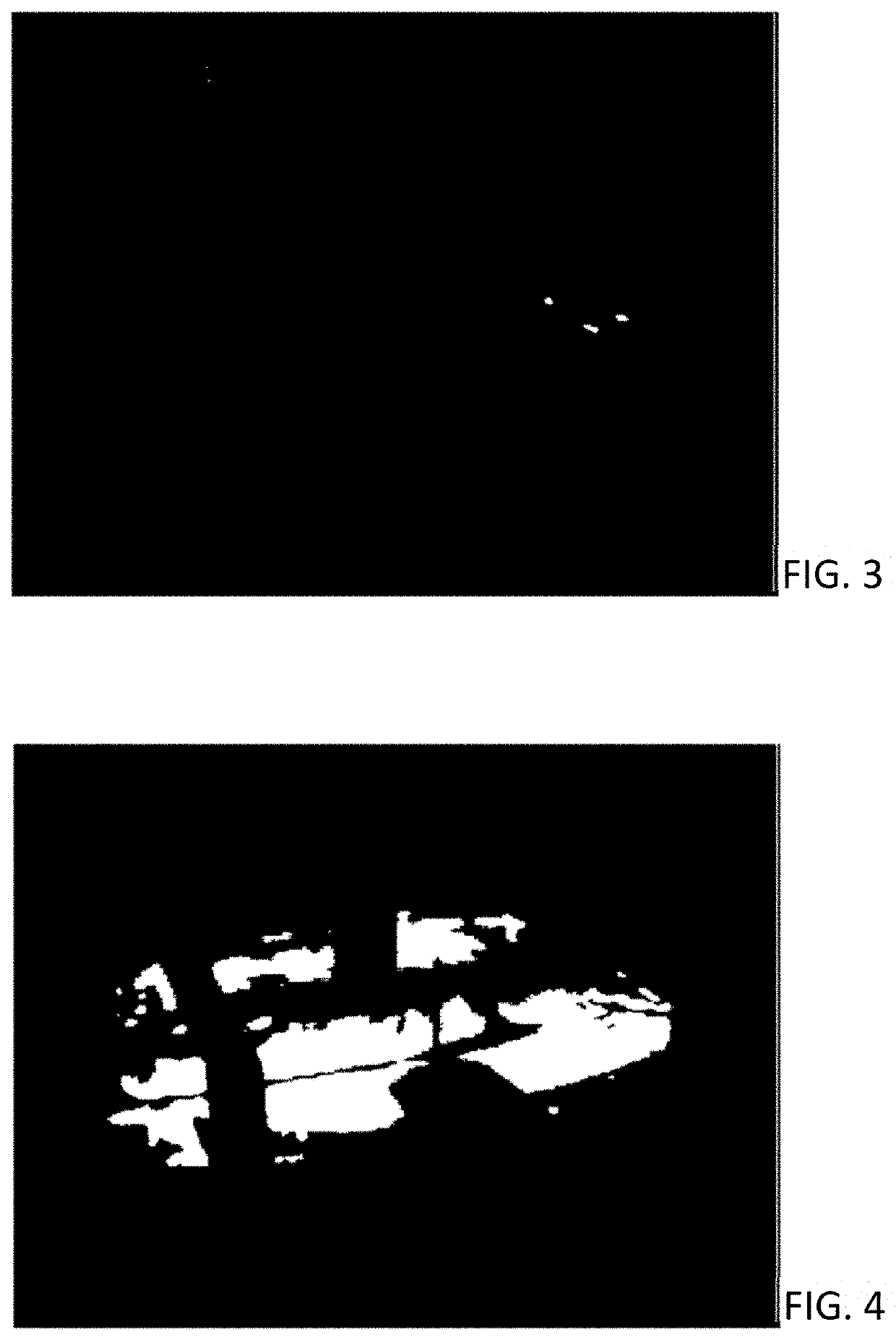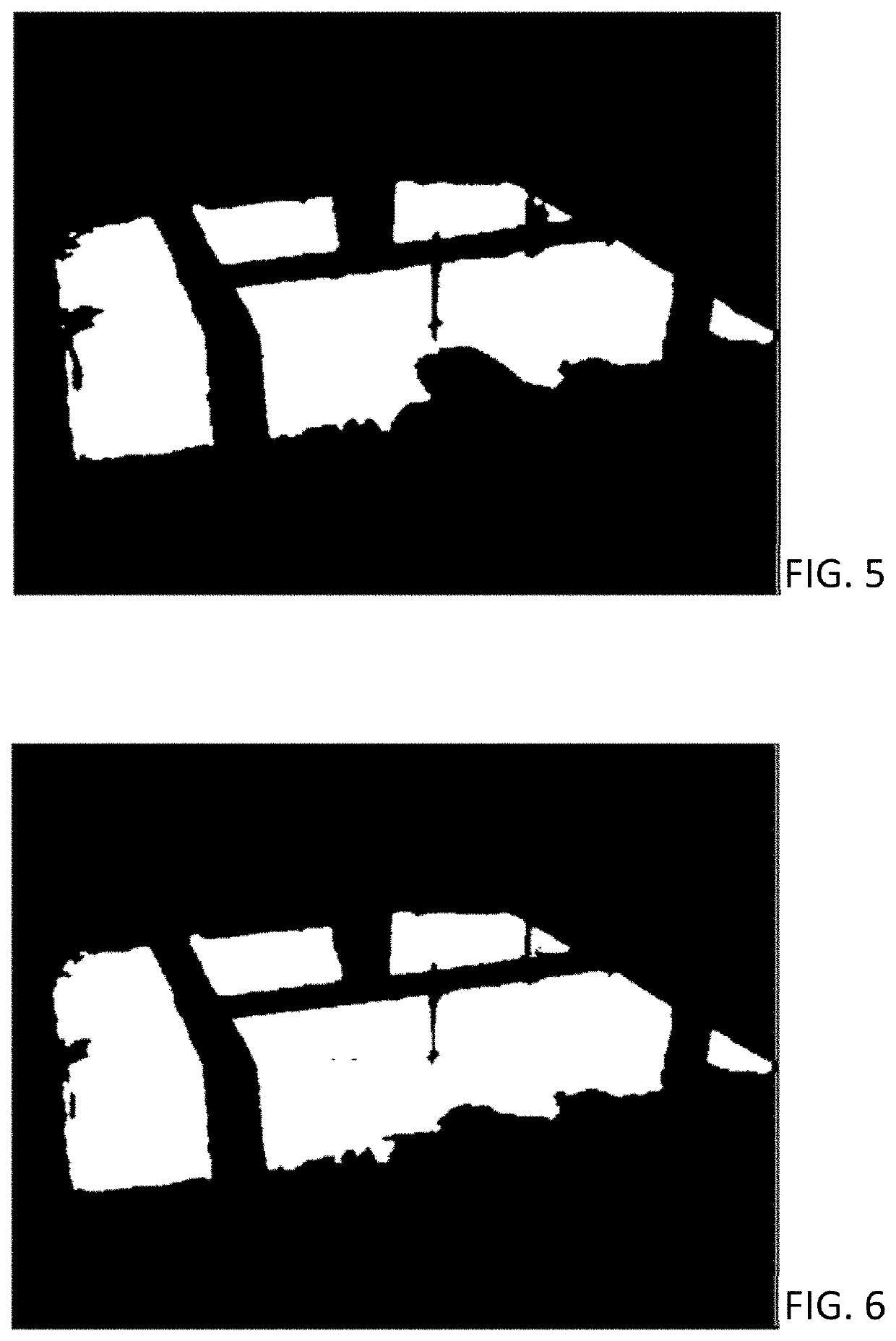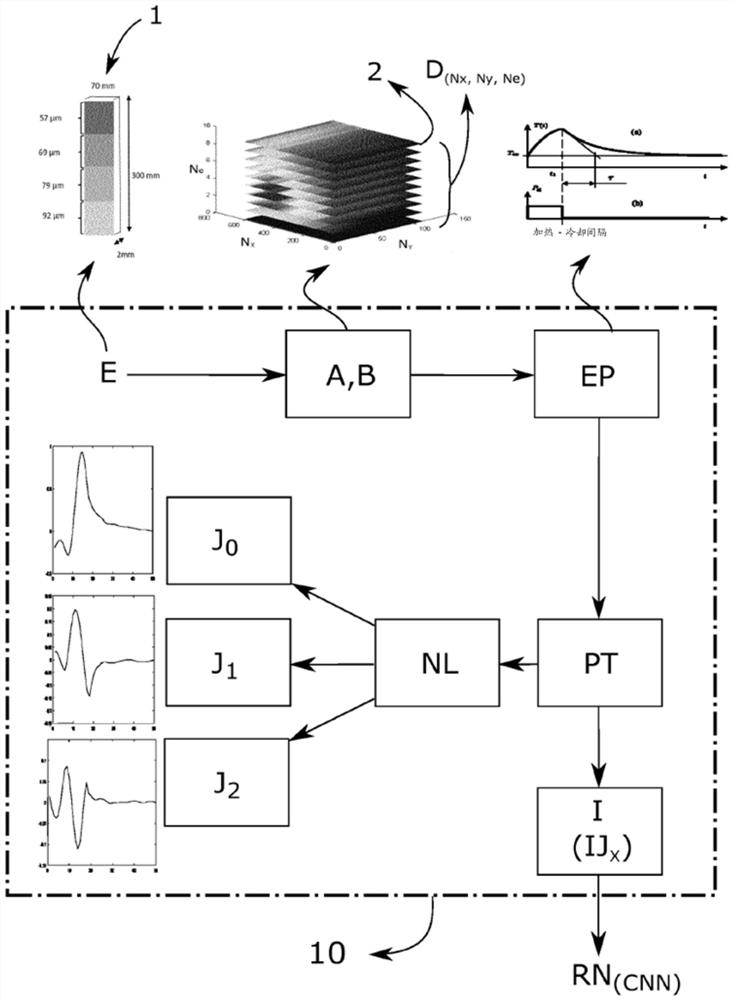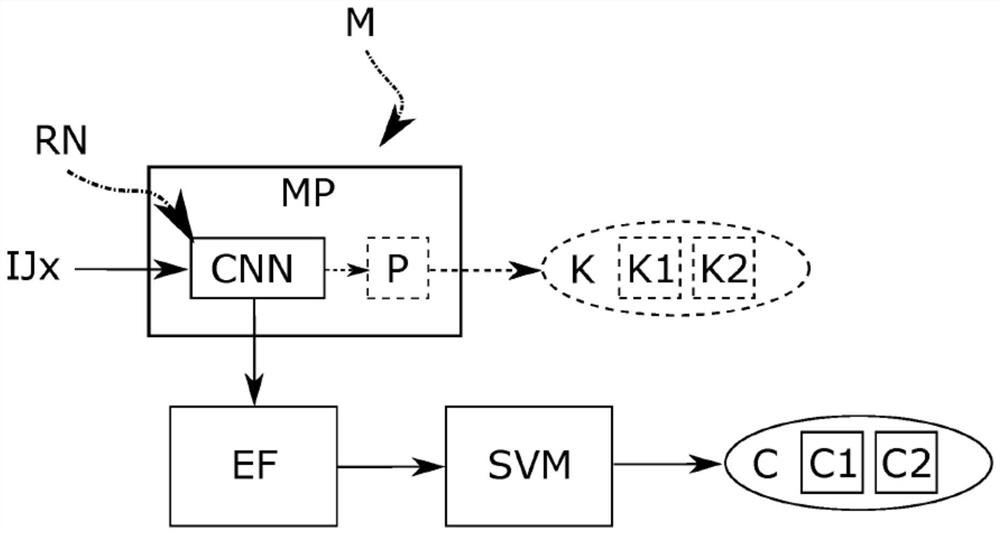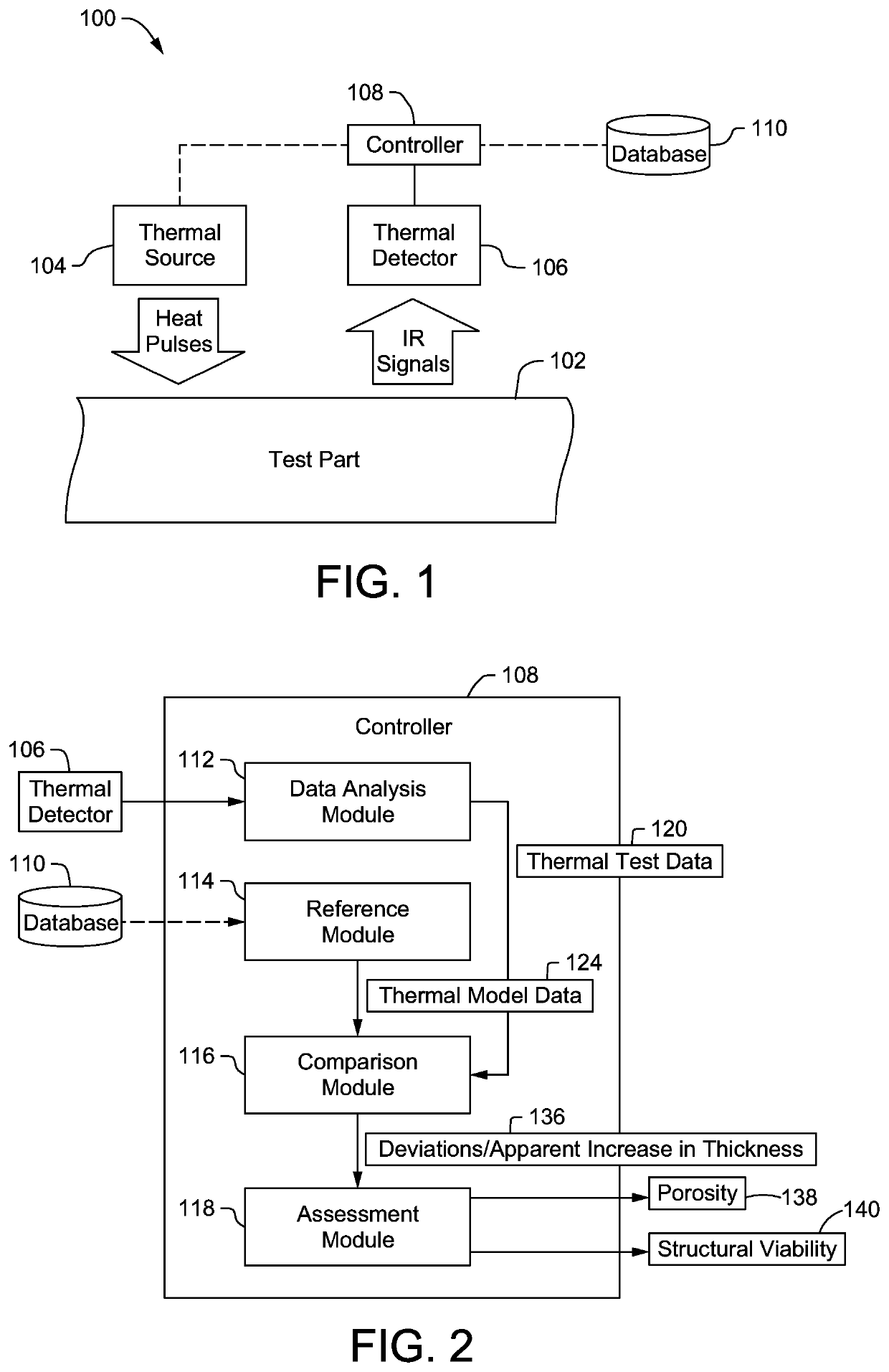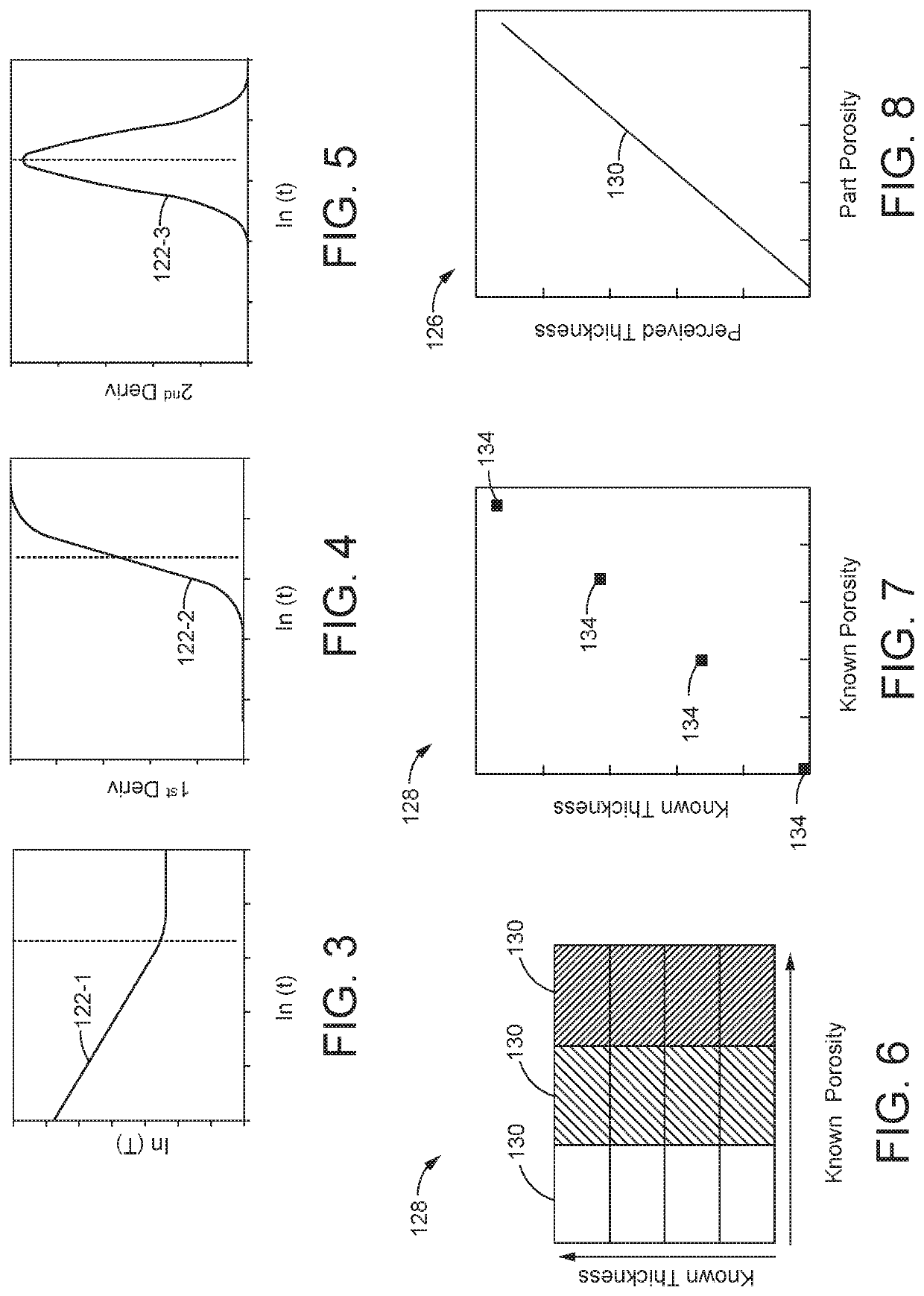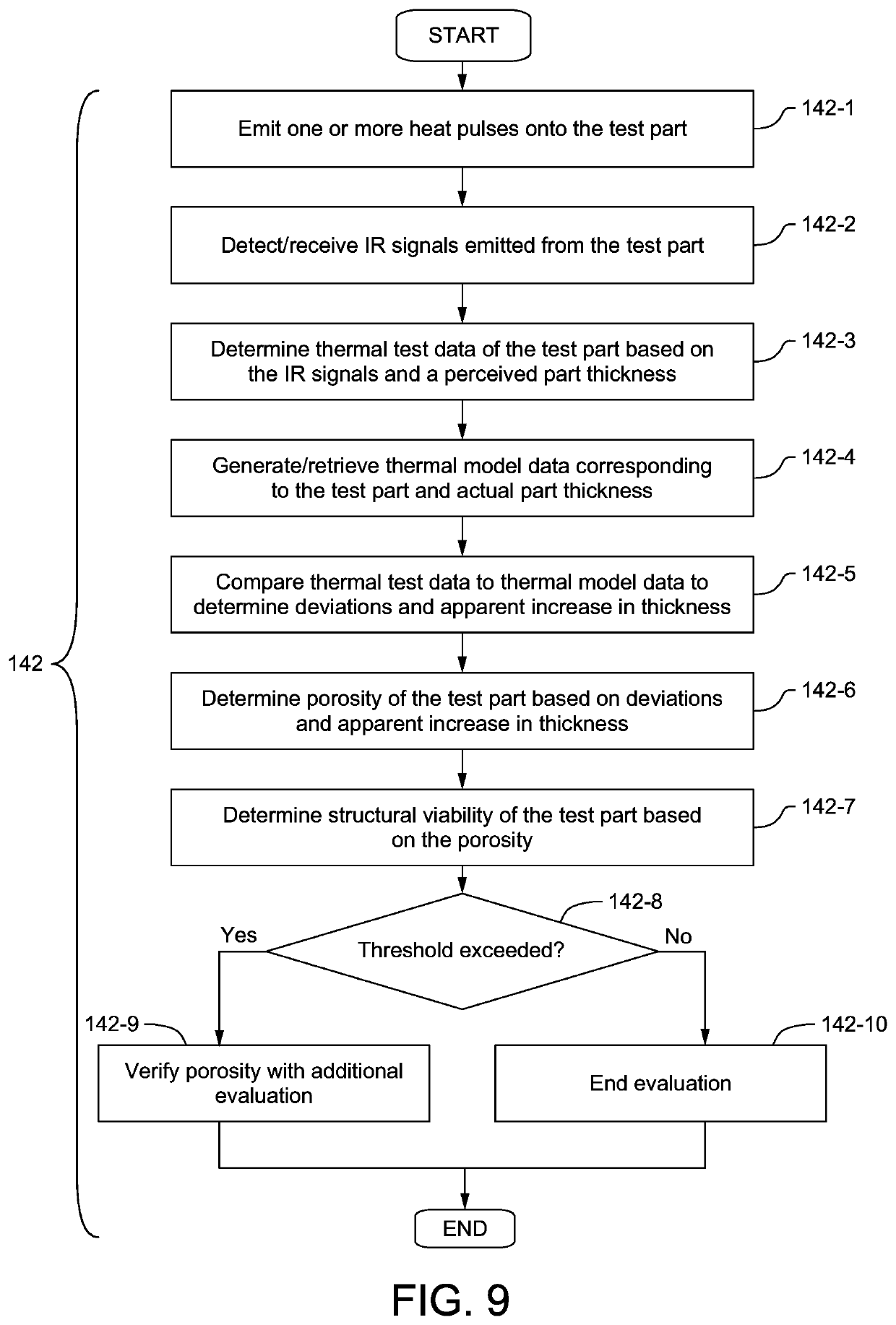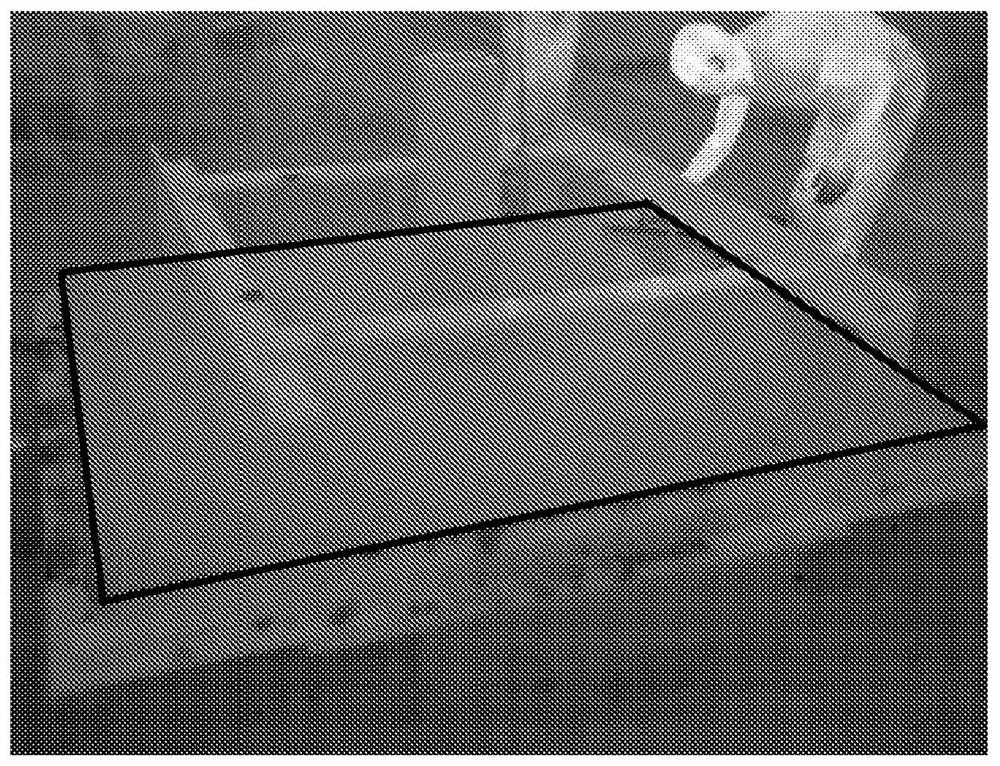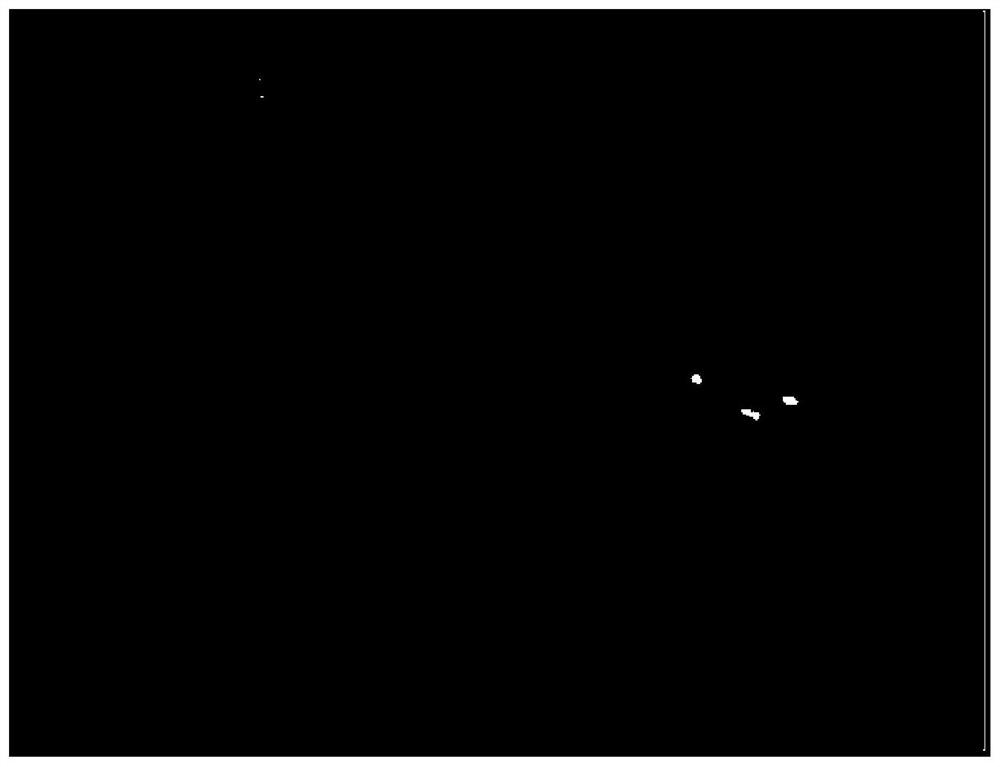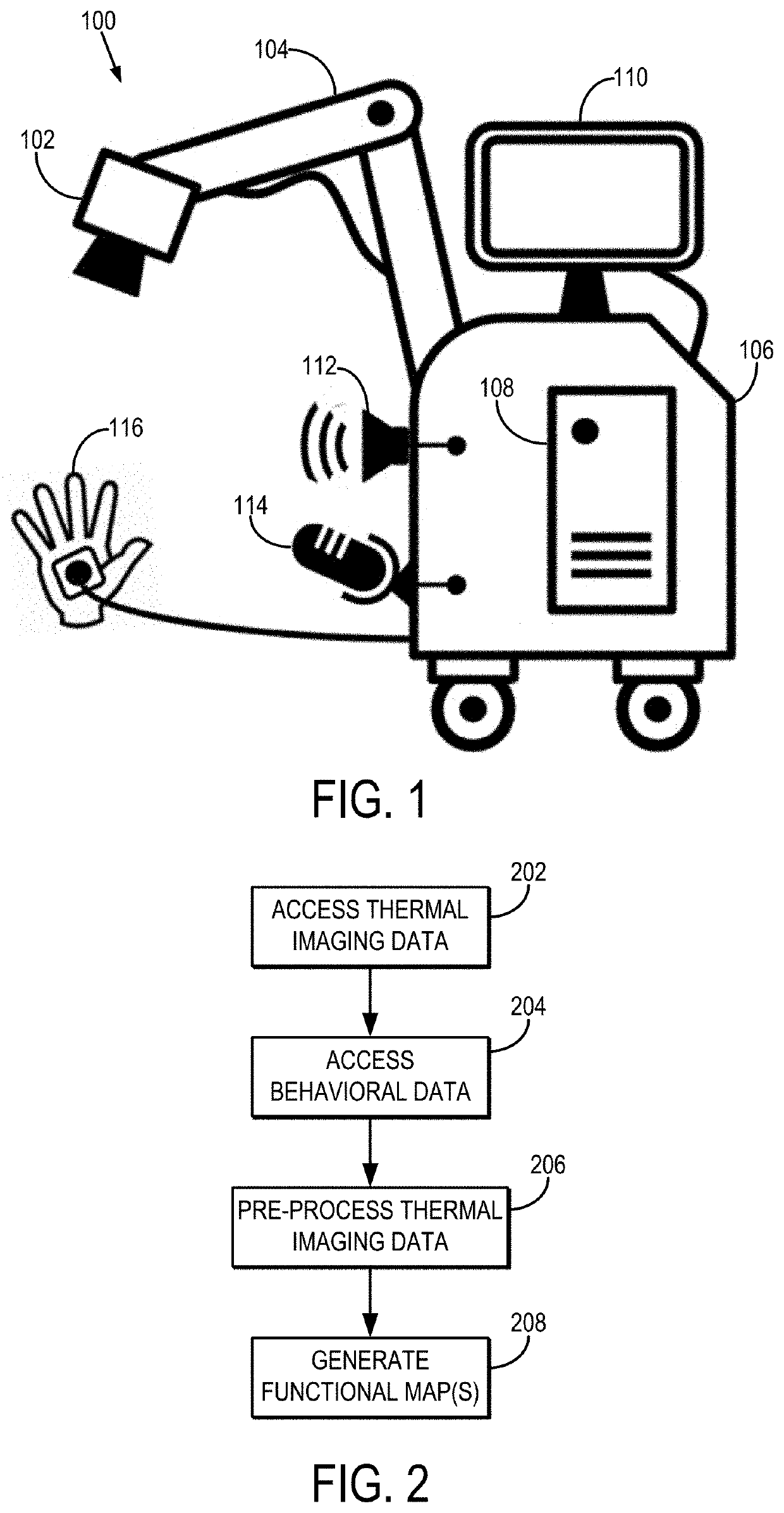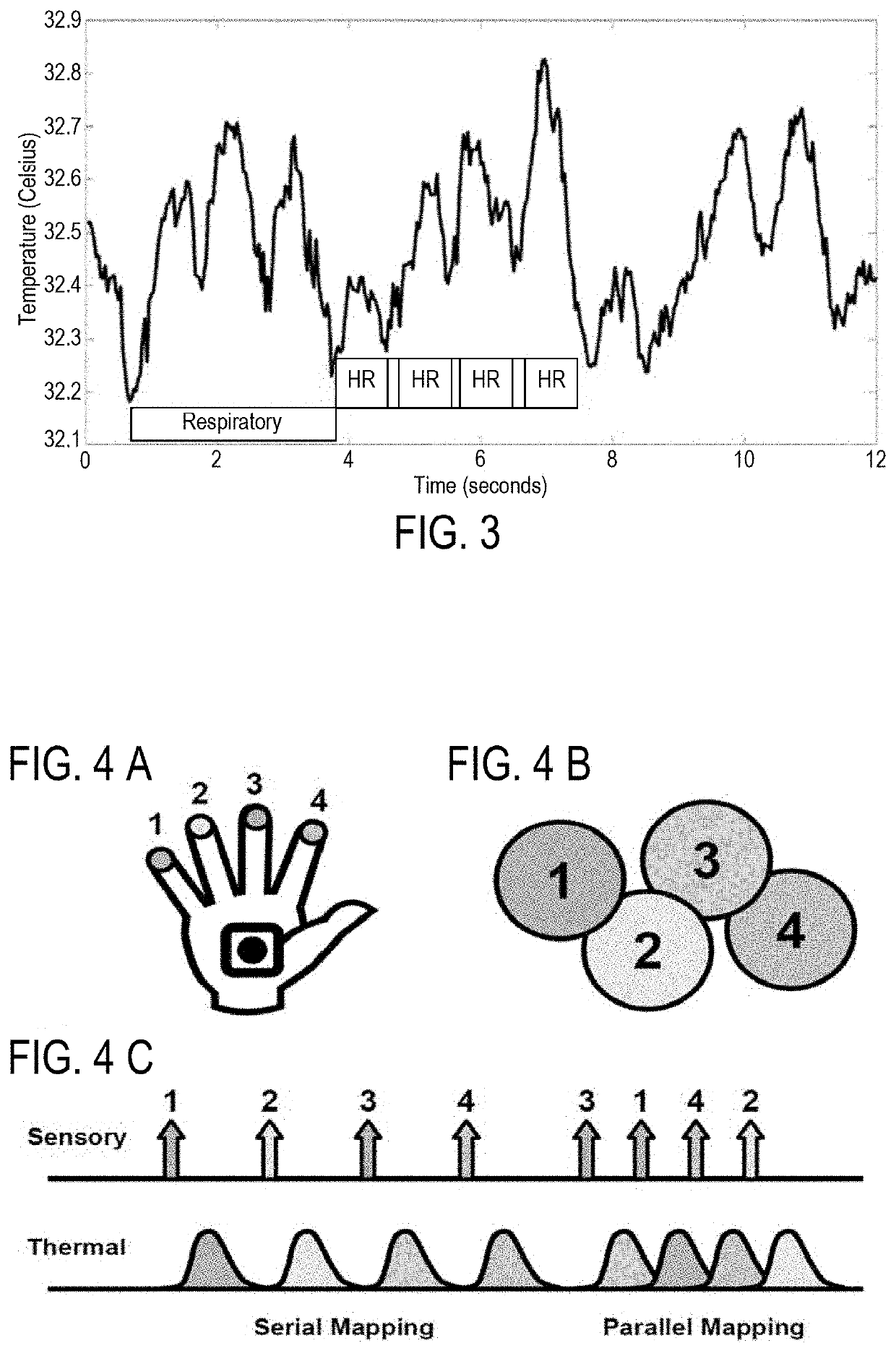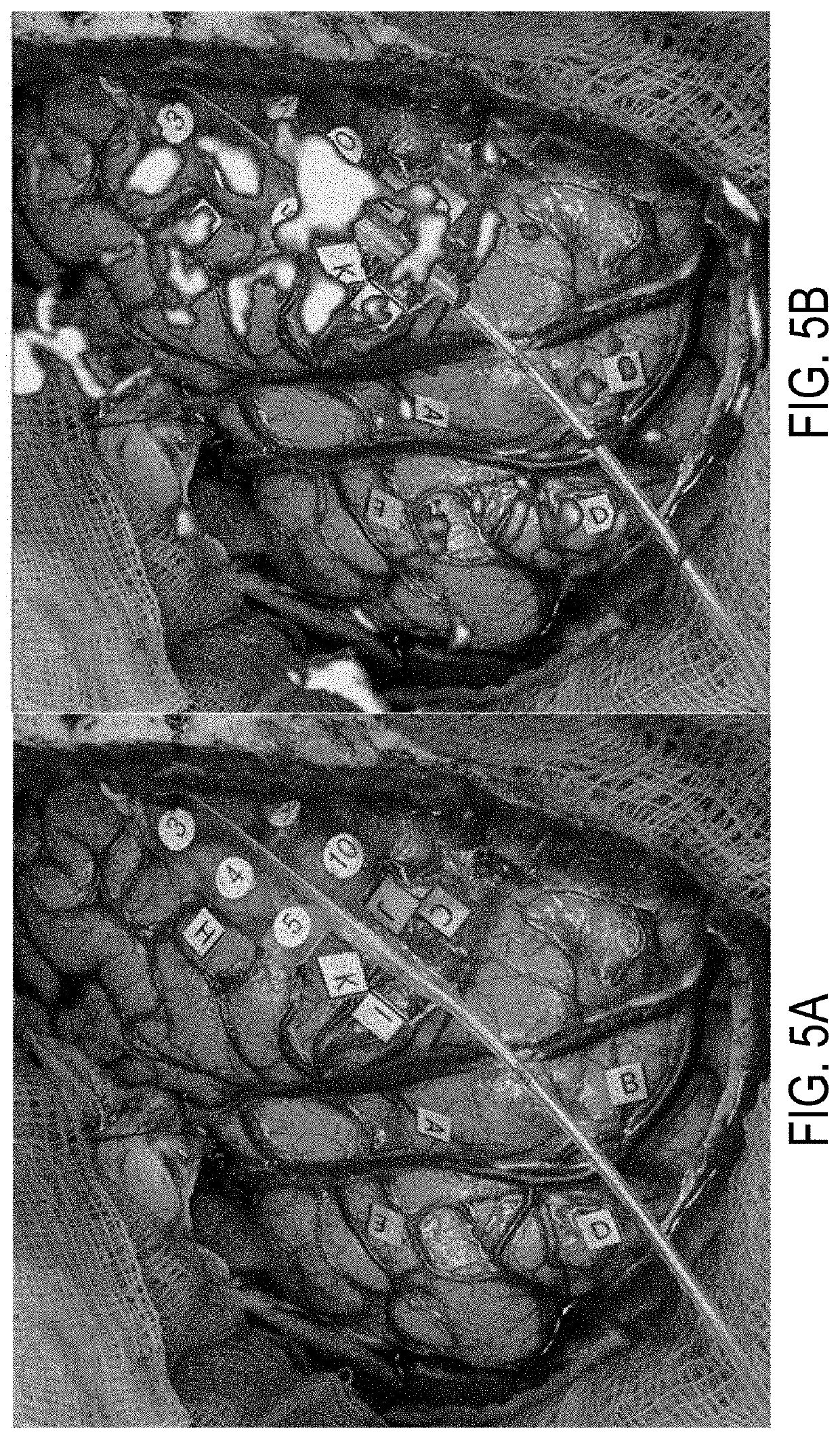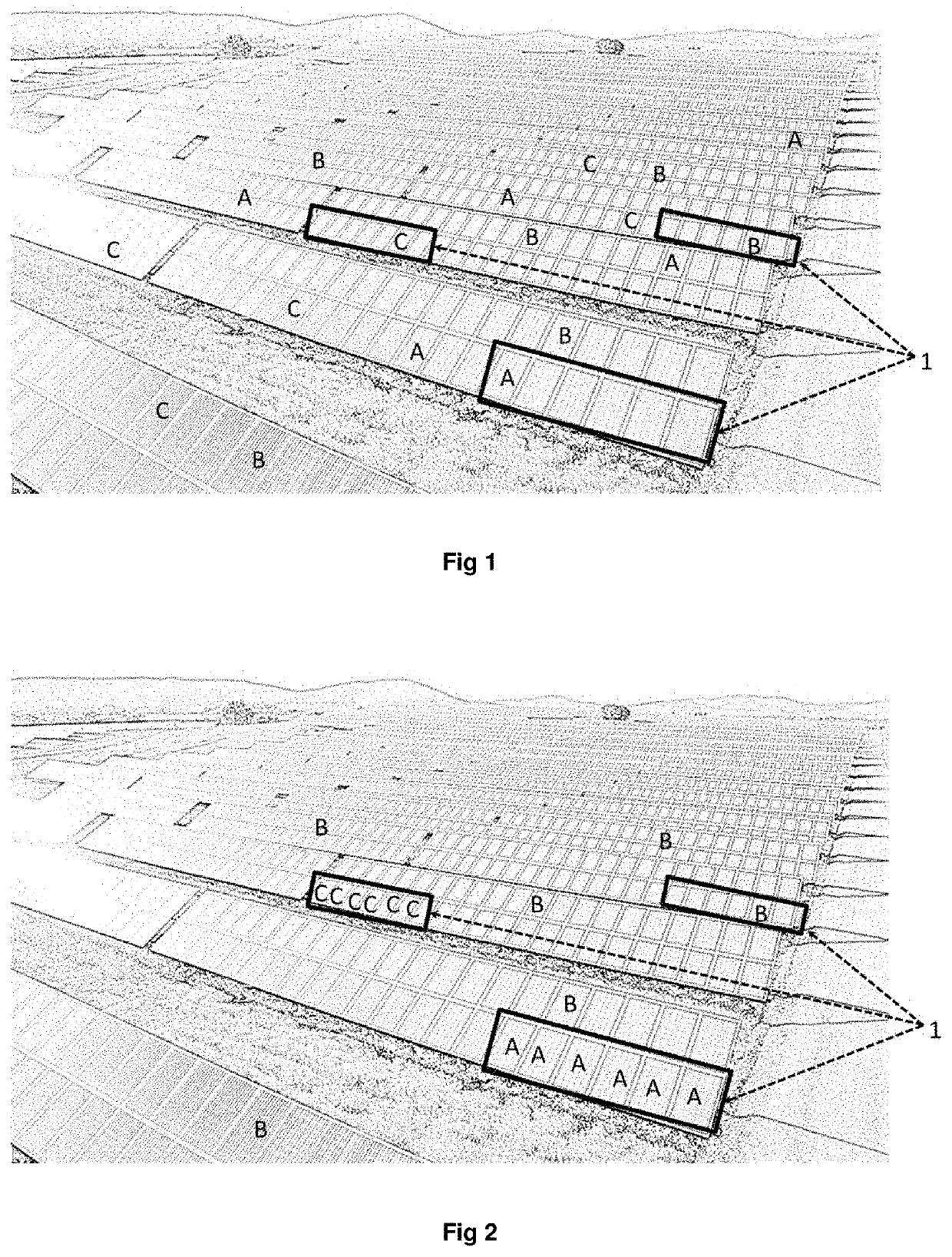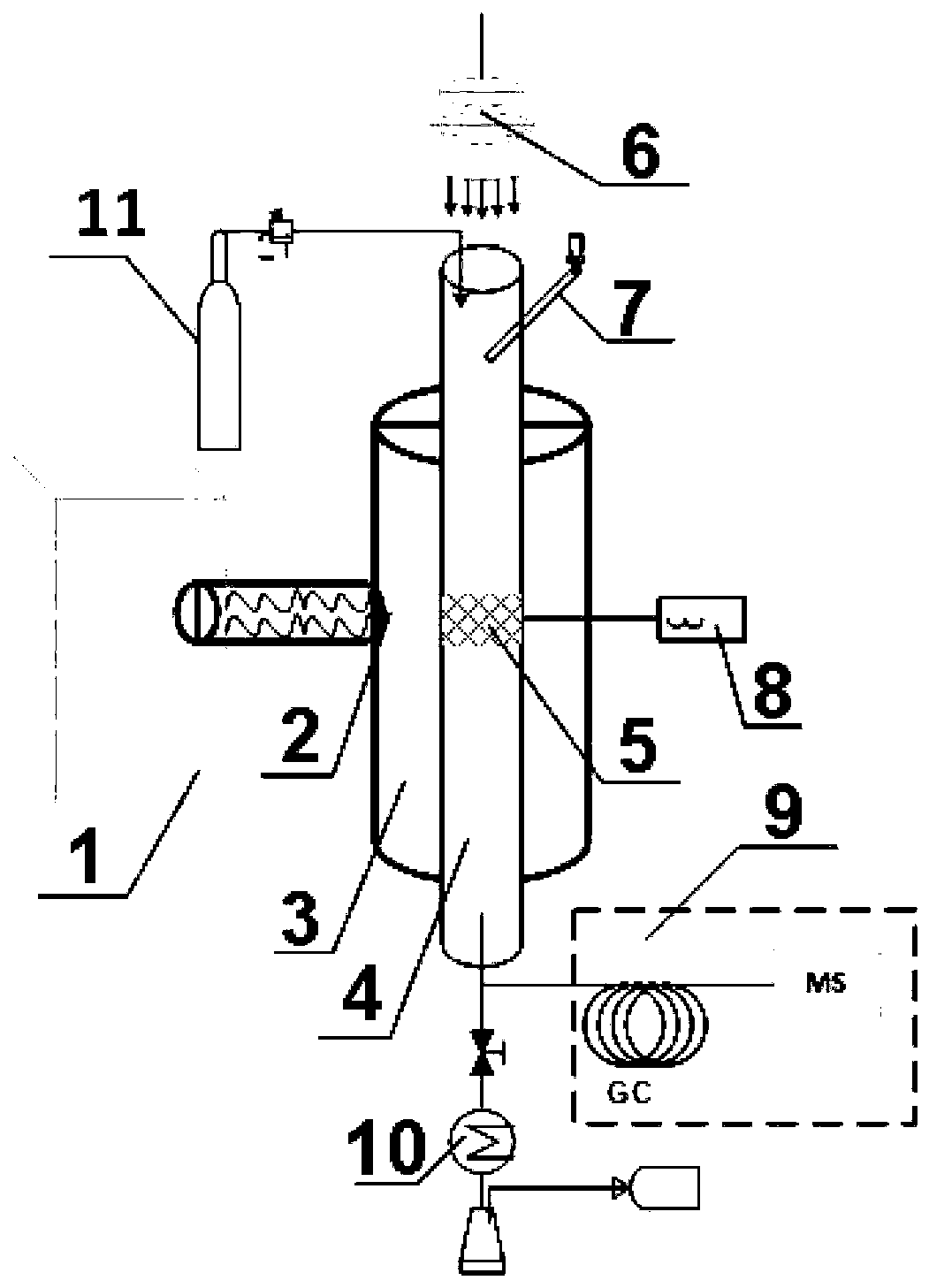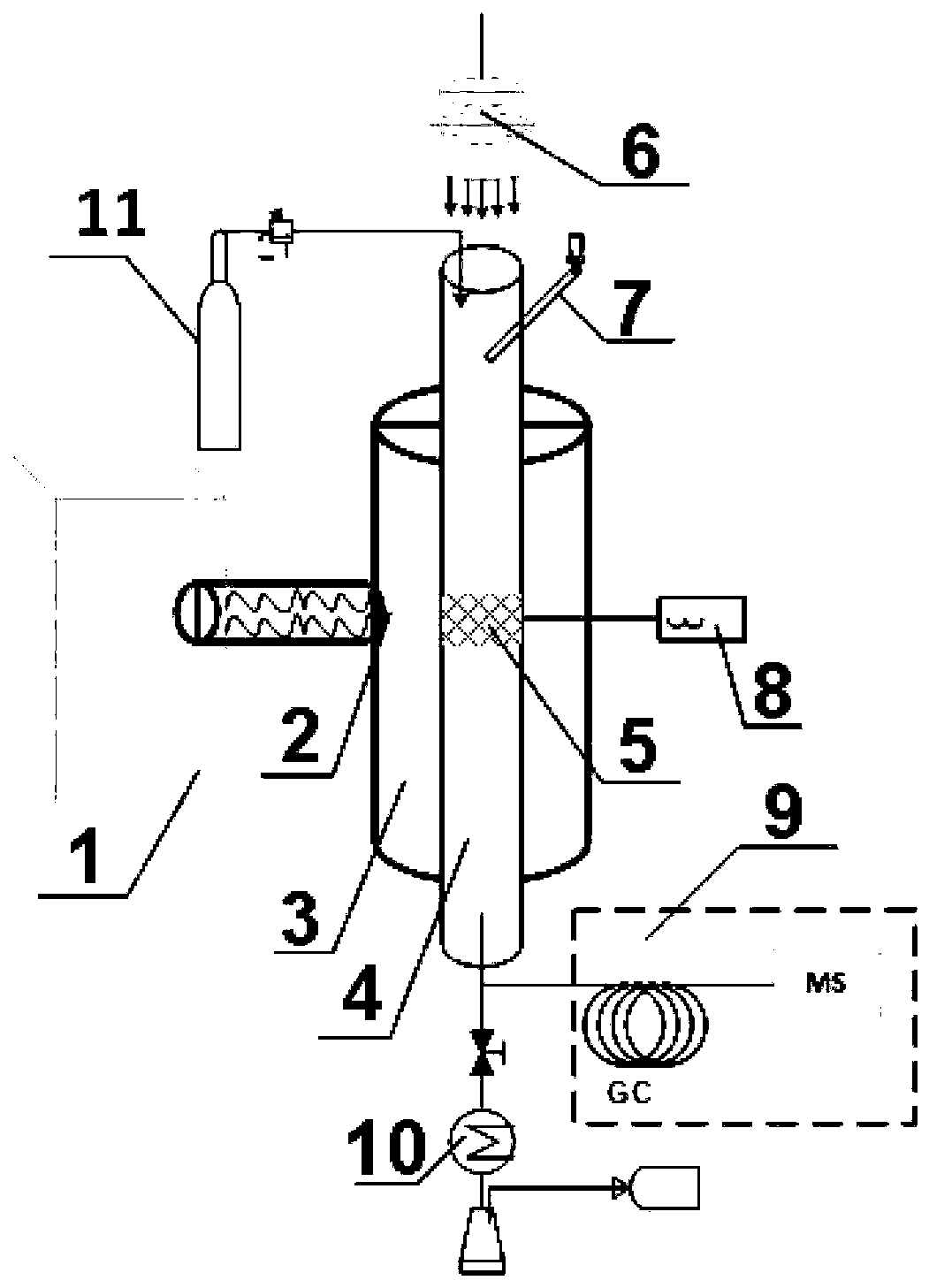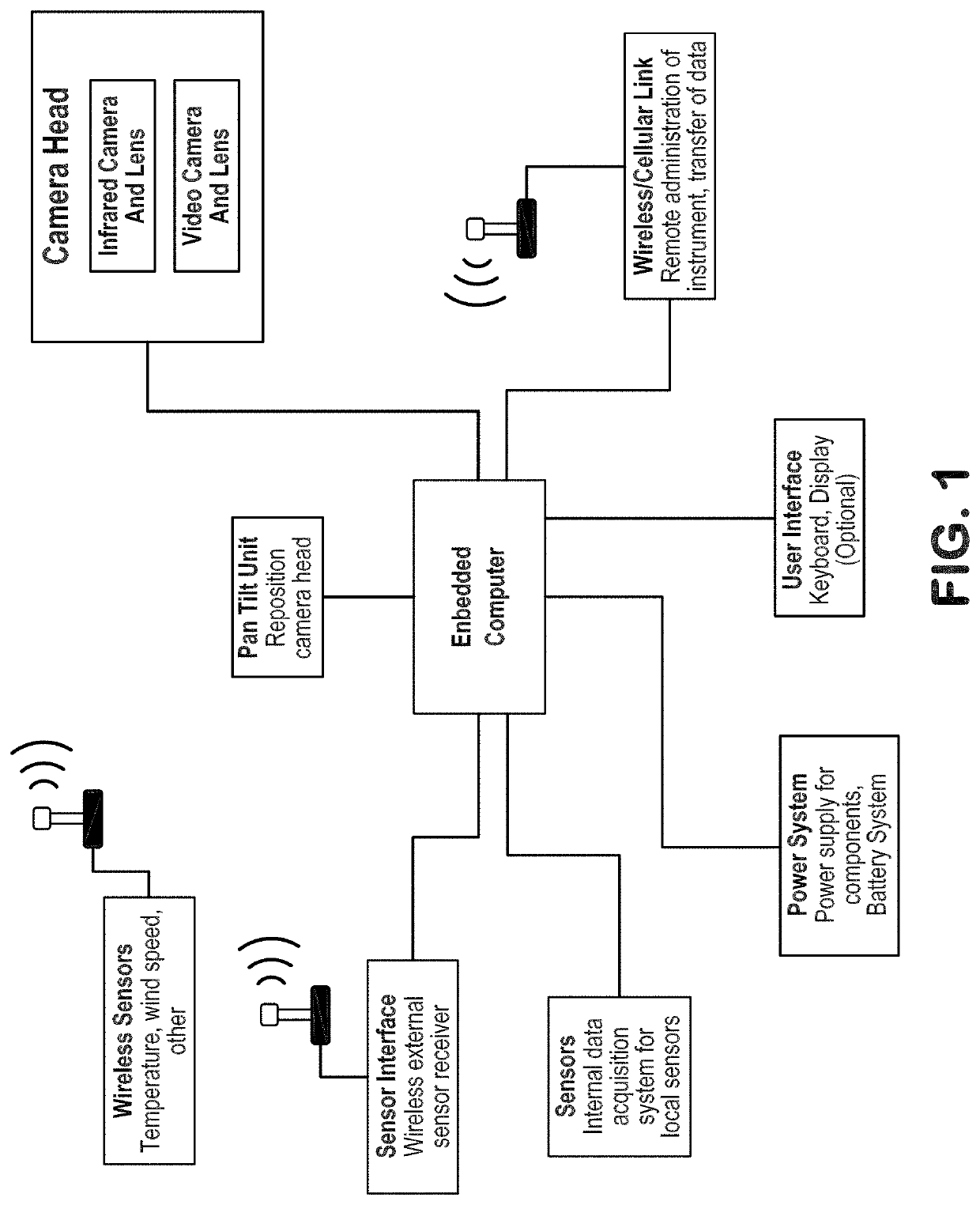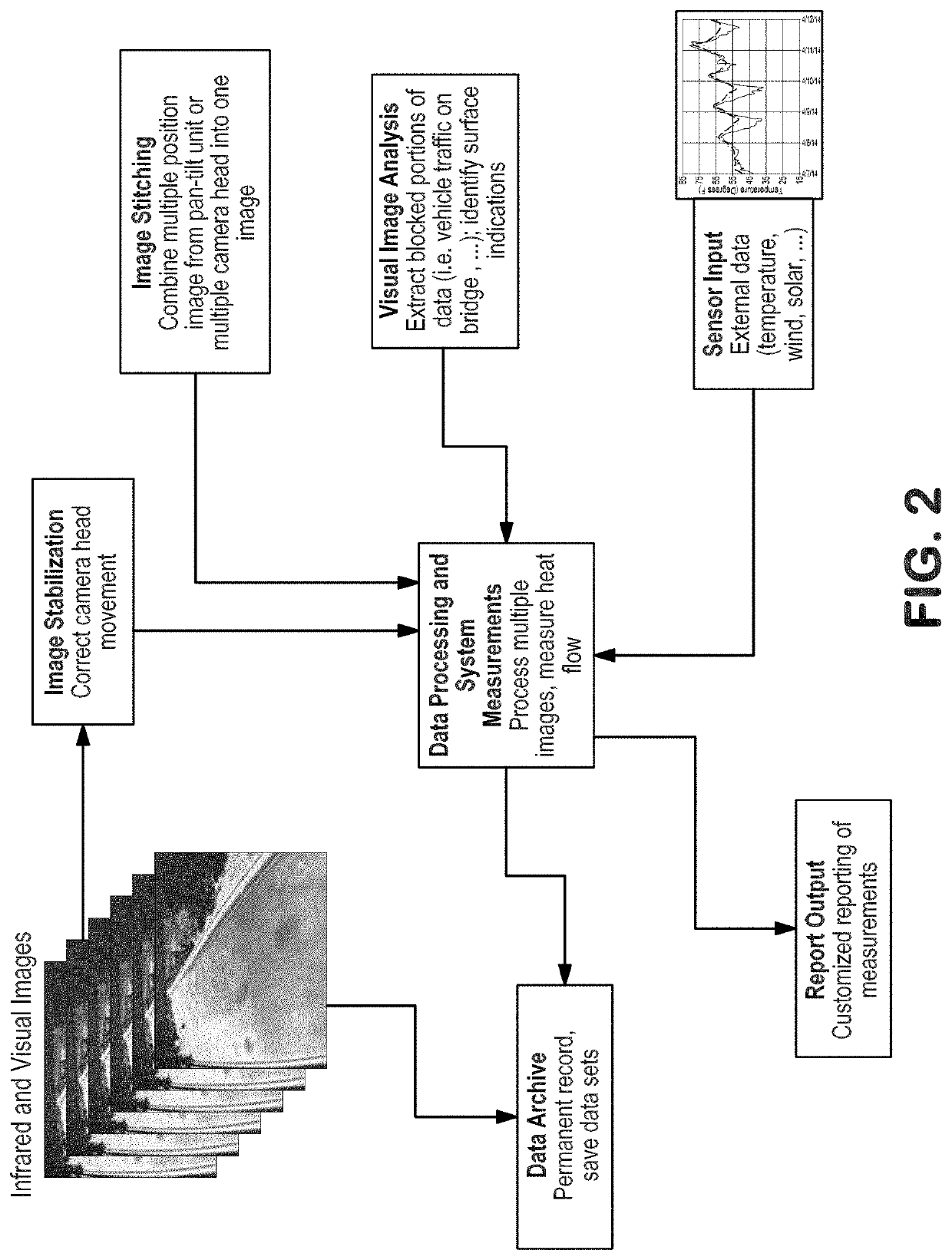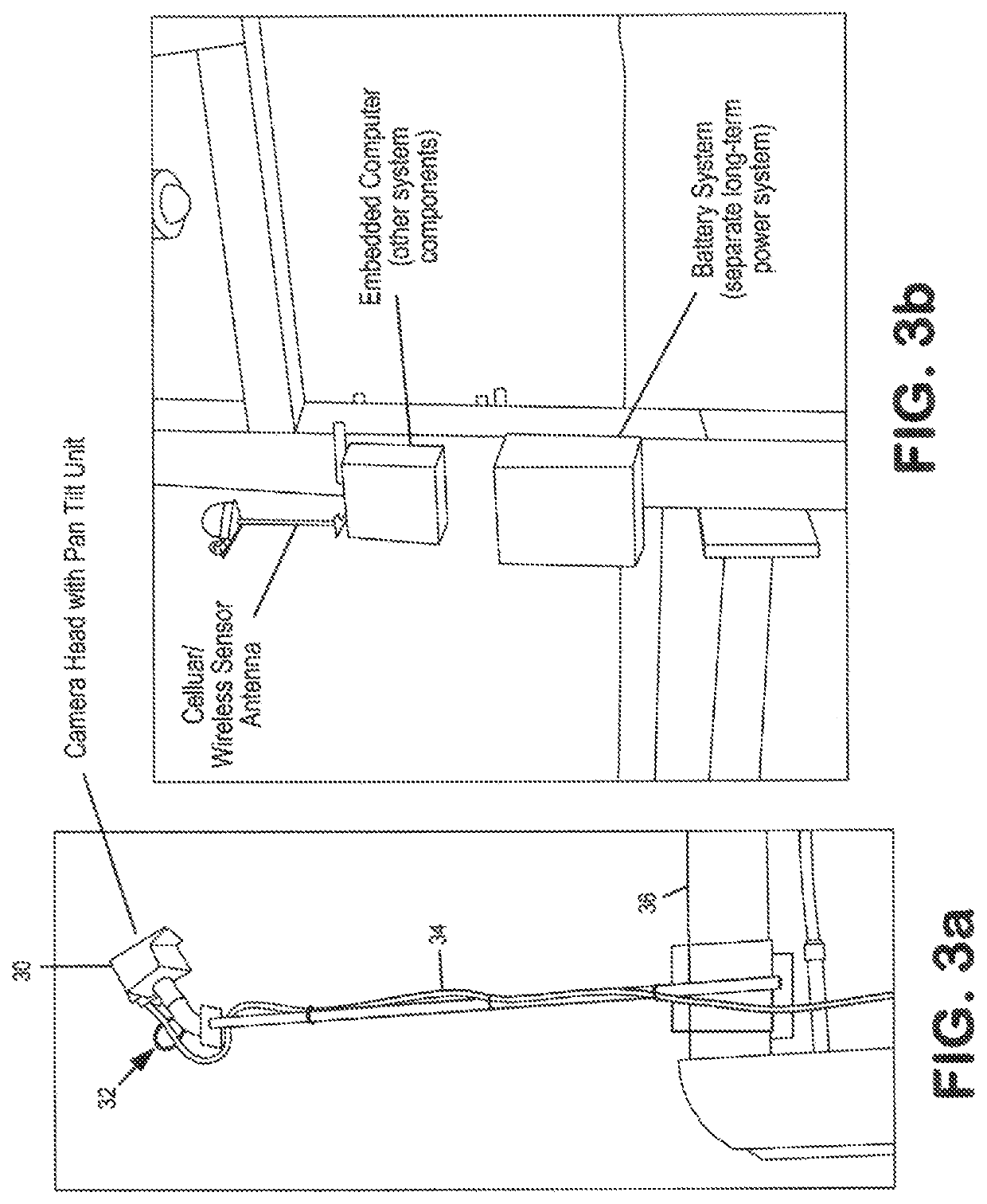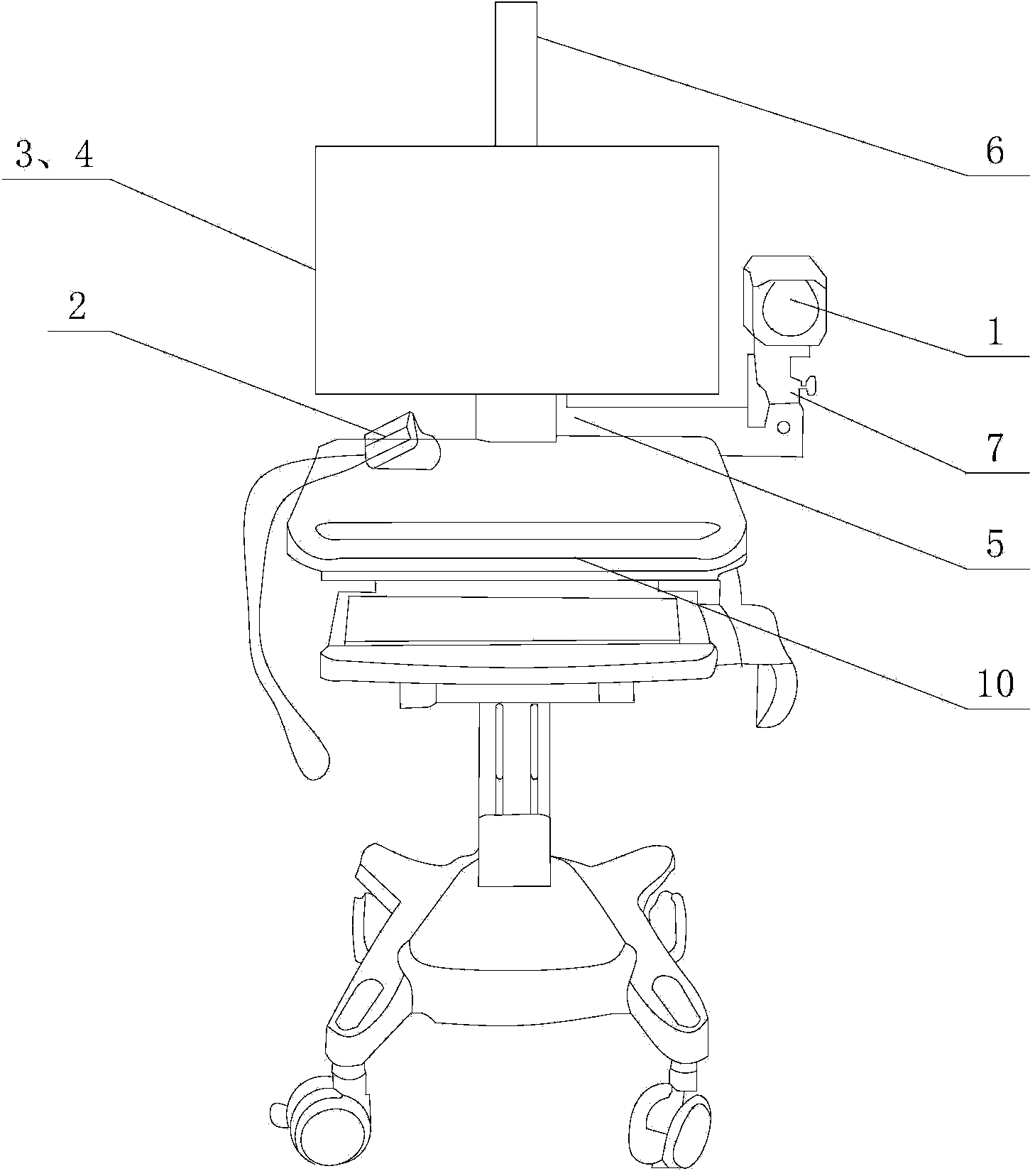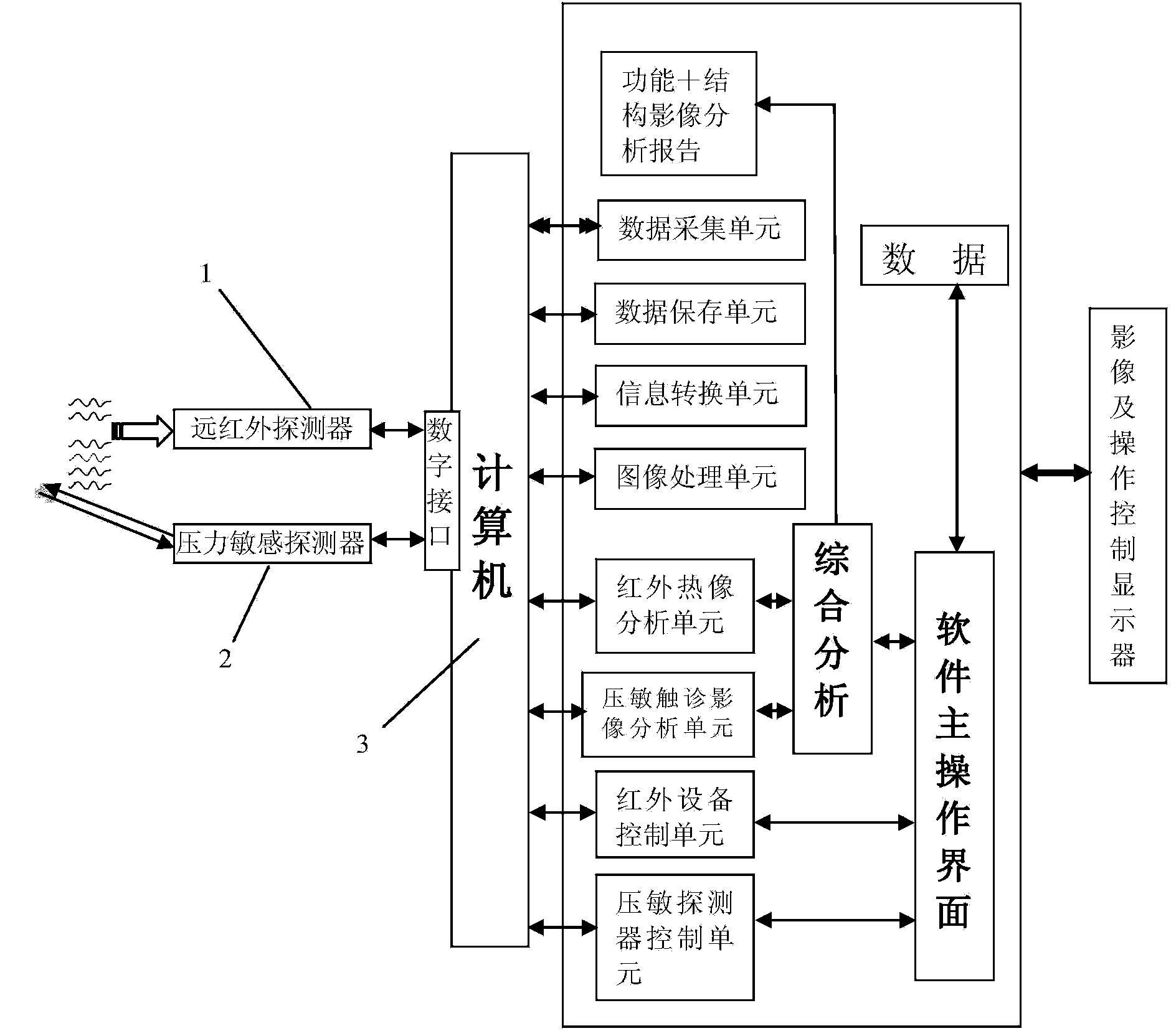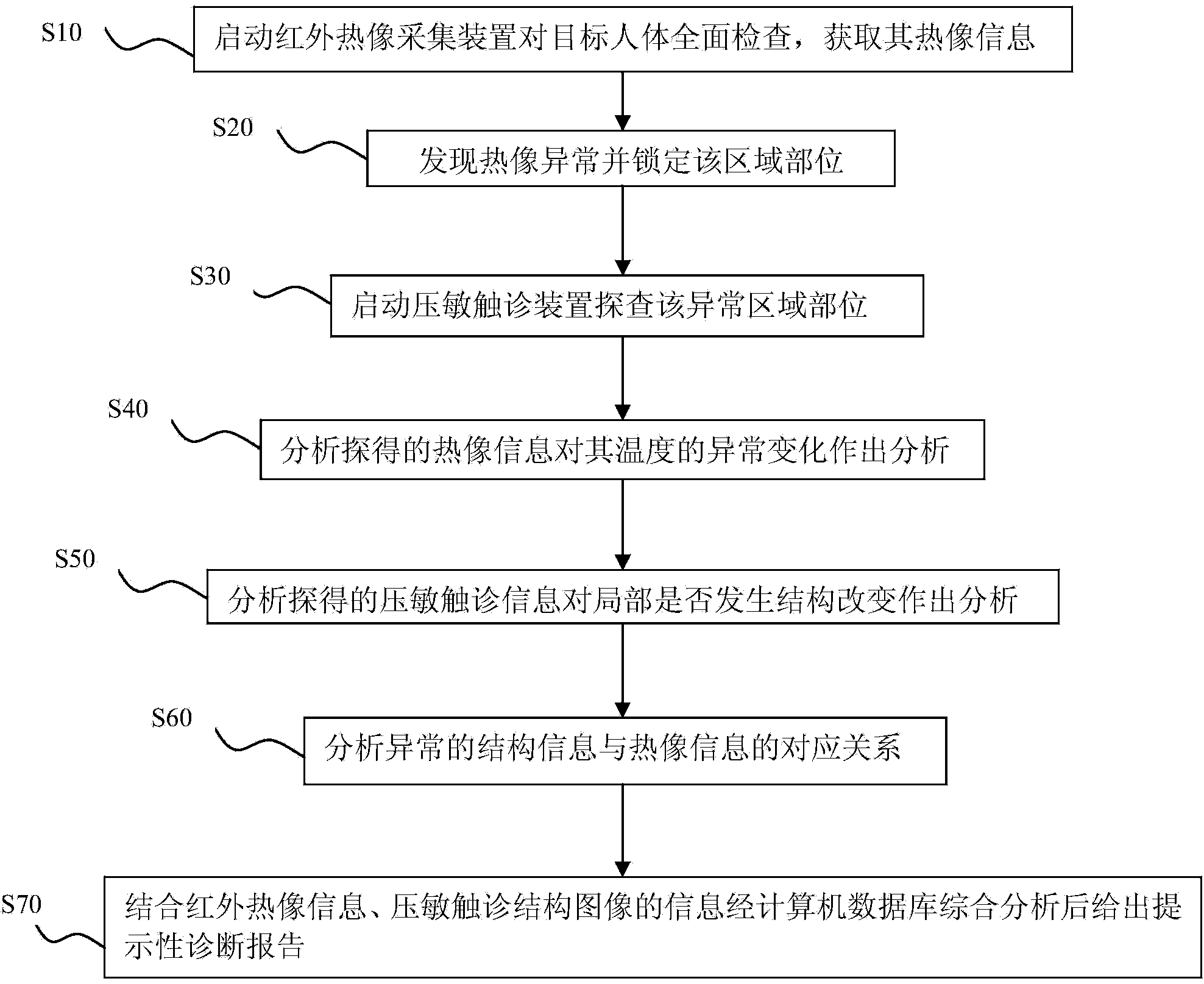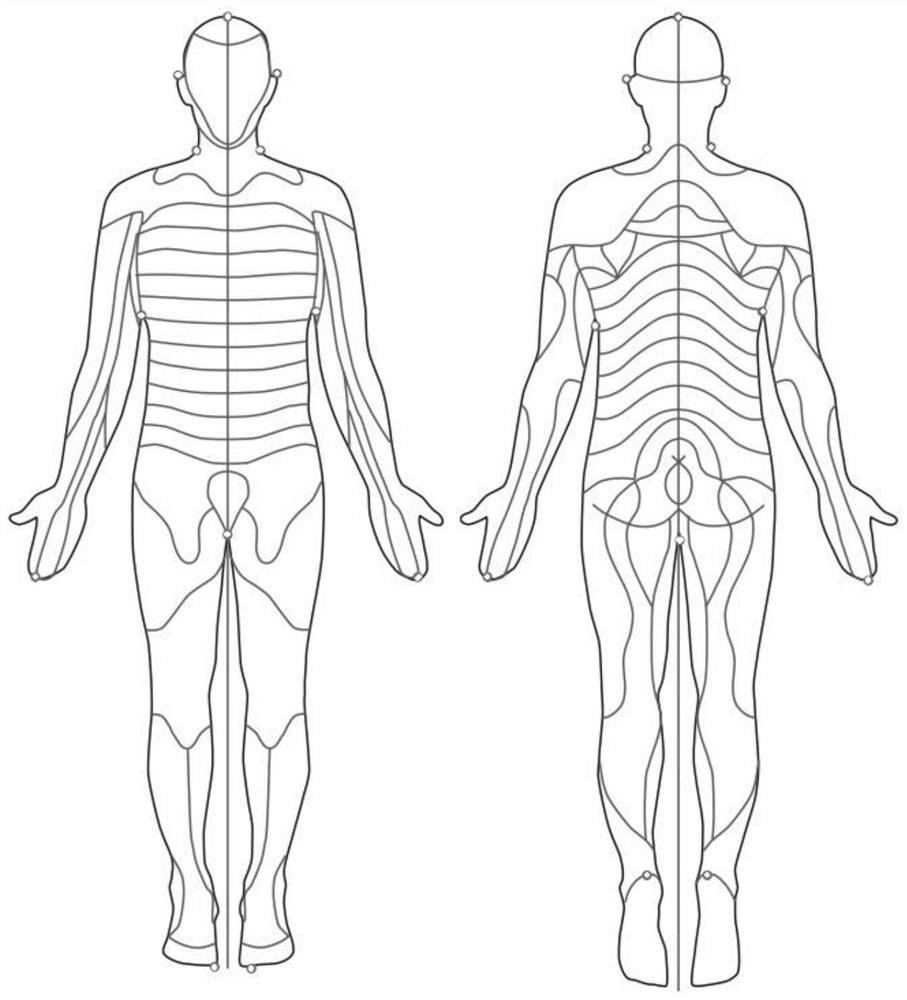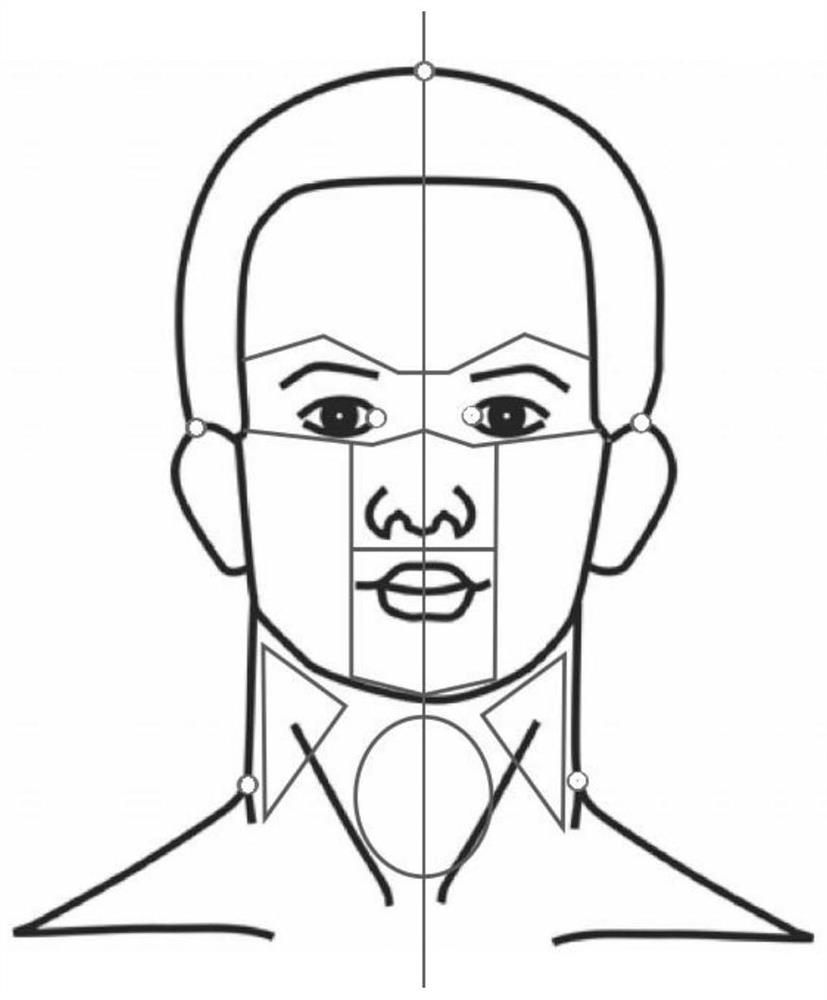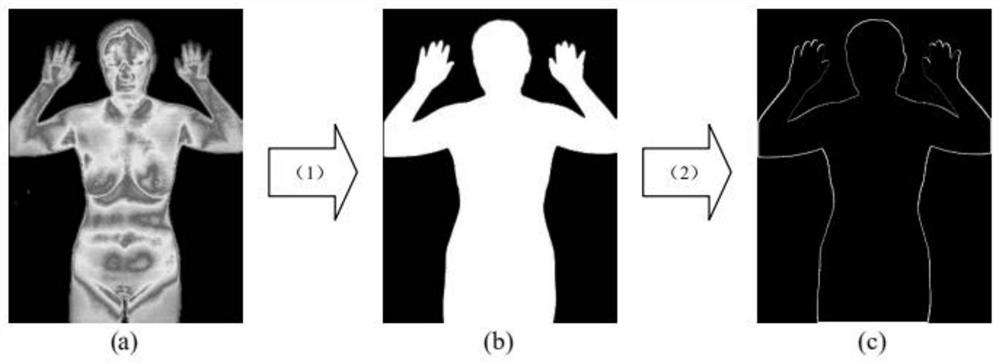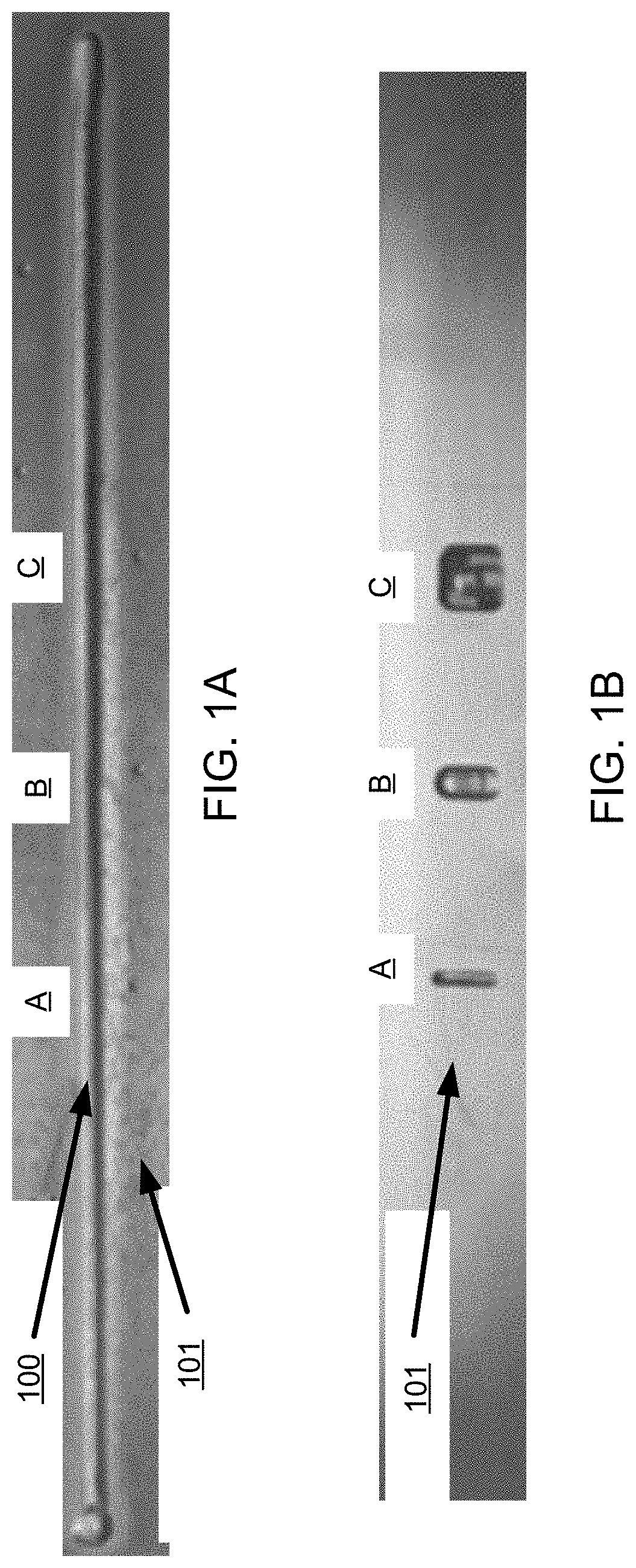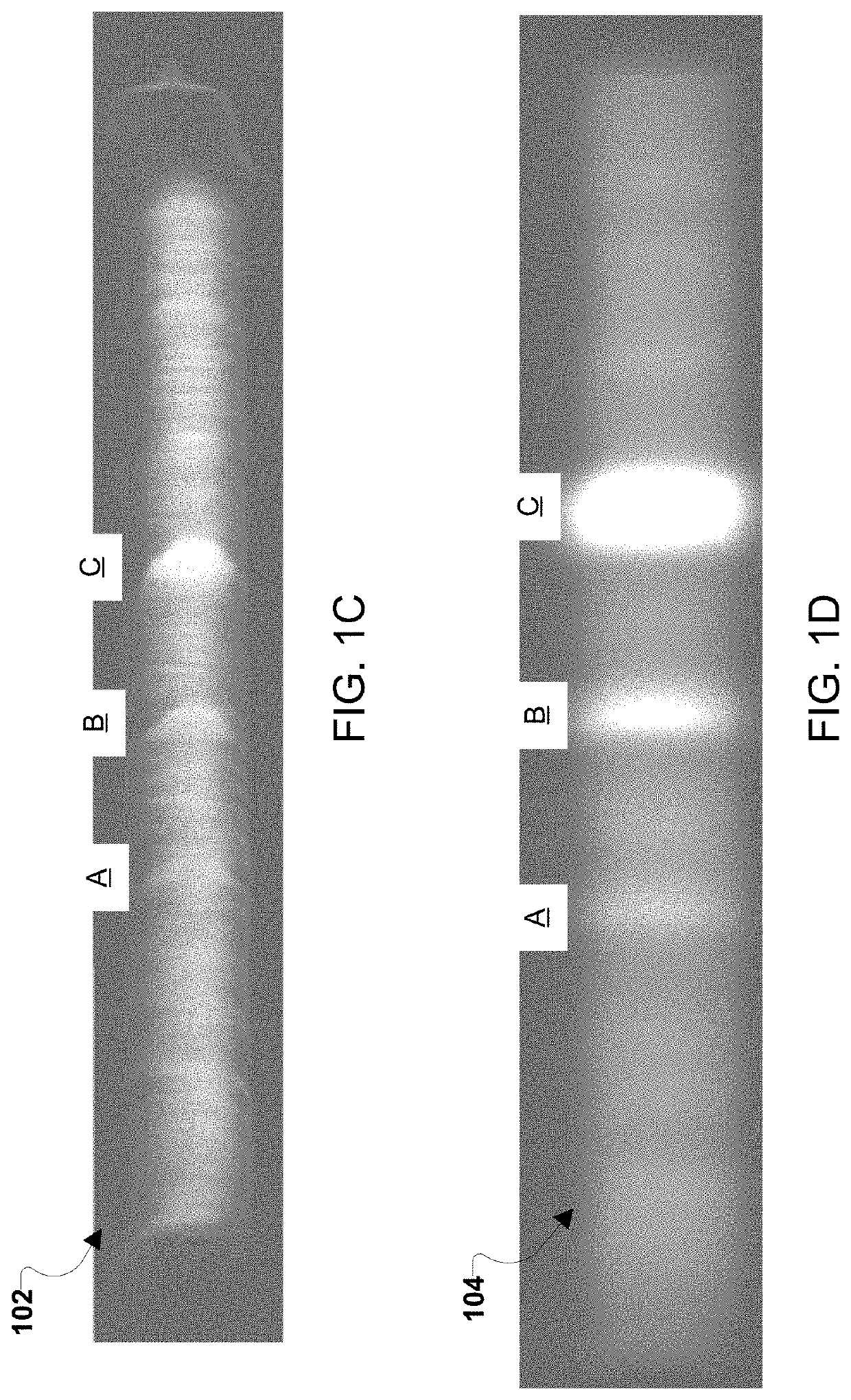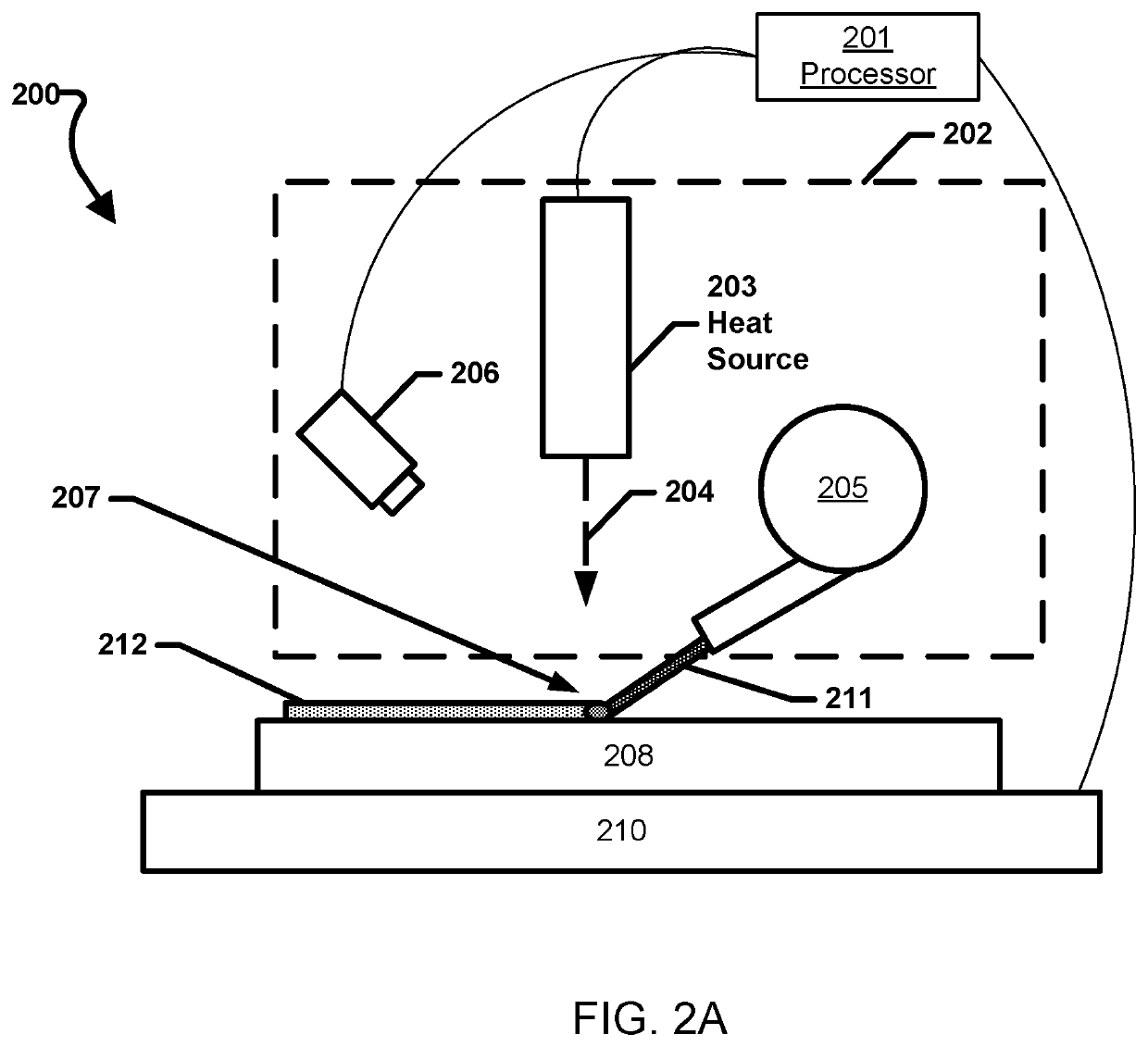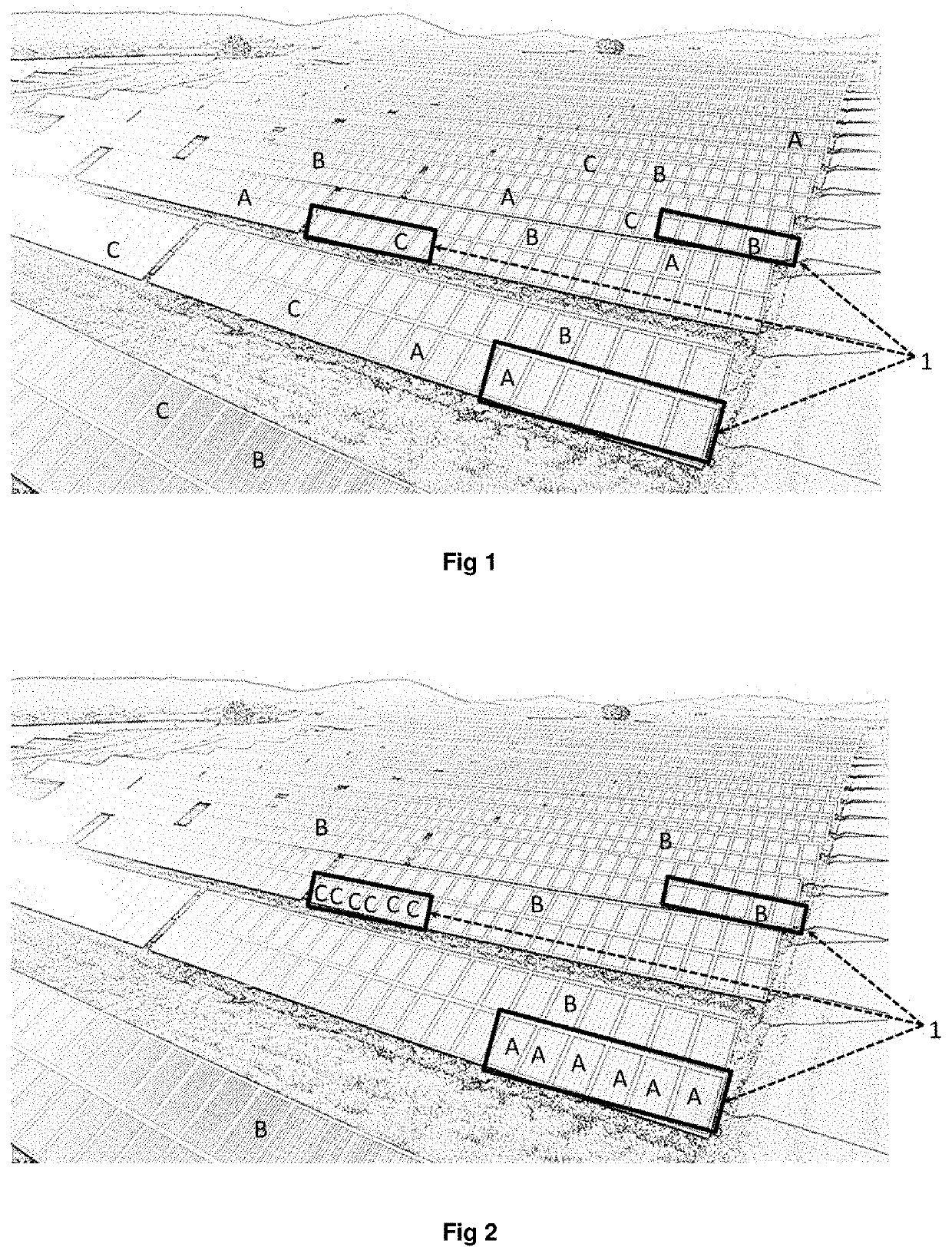Patents
Literature
30 results about "Ir thermography" patented technology
Efficacy Topic
Property
Owner
Technical Advancement
Application Domain
Technology Topic
Technology Field Word
Patent Country/Region
Patent Type
Patent Status
Application Year
Inventor
IR Thermography in Maintenance. Infrared thermography is a tool that has become more and more widely used for preventative maintenance on mechanical and electrical systems over time.
Method Of Infrared Thermography For Earlier Diagnosis Of Gastric Colorectal And Cervical Cancer
A device and method to diagnose an internal abnormality in a living subject by sensing a passively occurring electromagnetic radiation signal associated with the abnormality and inside an orifice of the subject. Diagnosis includes detection, imaging or identification of the abnormality. An instrument is used either to bring a sensor into the orifice or to transmit the signal to a sensor located outside of the orifice. An example of the instrument includes a prior art endoscope.
Owner:PASSIVE IMAGING MEDICAL SYST ENG LTD PIMS
Continuous infrared thermography monitoring and life management system for heat recovery steam generators
ActiveUS20130176418A1Improve reliabilityReduce downtimeTelevision system detailsColor television detailsEngineeringThermography
A method for continuously monitoring the working condition of a heat recovery steam generator (“HRSG”) using infrared thermography, comprising the steps of identifying target locations inside the HRSG, positioning one or more infrared cameras to continuously monitor and record the temperature at each target location, generating continuous thermographic images corresponding to selected components and locations at each target locations, comparing the continuous thermographic images to corresponding, stored base line images and generating a set of comparative data reports in real time for each target location in order to predict the life span or potential failure of HRSG components.
Owner:GENERAL ELECTRIC CO
Early detection of inflammation and infection using infrared thermography
InactiveUS20040019269A1Clinically significantMaterial flaws investigationDiagnostic recording/measuringDiseaseAnimal use
The present invention provides a method for the detection of inflammation in animals using infrared thermography. The invention also provides a method for the detection of diseases or disorders that induce inflammation using infrared thermography. The present invention further provides a method for the detection of infections in animals using infrared thermography.
Owner:SCHAEFER ALLAN L +3
Methods and systems employing infrared thermography for defect detection and analysis
InactiveUS6840666B2Radiation pyrometryMaterial analysis by optical meansThermodynamicsImaging equipment
Described are methods and systems for providing improved defect detection and analysis using infrared thermography. Test vectors heat features of a device under test to produce thermal characteristics useful in identifying defects. The test vectors are timed to enhance the thermal contrast between defects and the surrounding features, enabling IR imaging equipment to acquire improved thermographic images. In some embodiments, a combination of AC and DC test vectors maximize power transfer to expedite heating, and therefore testing. Mathematical transformations applied to the improved images further enhance defect detection and analysis. Some defects produce image artifacts, or “defect artifacts,” that obscure the defects, rendering difficult the task of defect location. Some embodiments employ defect-location algorithms that analyze defect artifacts to precisely locate corresponding defects.
Owner:MARENA SYST CORP
Laser-ultrasound inspection using infrared thermography
InactiveUS20080137105A1Complete understandingUnderstanding of internal structureMaterial analysis using sonic/ultrasonic/infrasonic wavesMaterial analysis by optical meansThermographic inspectionLaser
An inspection system is provided to examine internal structures of a target material. This inspection system combines an ultrasonic inspection system and a thermographic inspection system. The thermographic inspection system is attached to ultrasonic inspection and modified to enable thermographic inspection of target materials at distances compatible with laser ultrasonic inspection. Quantitative information is obtained using depth infrared (IR) imaging on the target material. The IR imaging and laser-ultrasound results are combined and projected on a 3D projection of complex shape composites. The thermographic results complement the laser-ultrasound results and yield information about the target material's internal structure that is more complete and more reliable, especially when the target materials are thin composite parts.
Owner:LOCKHEED MARTIN CORP
Actively quenched lamp, infrared thermography imaging system, and method for actively controlling flash duration
InactiveUS20050018748A1Material flaws investigationRadiation thermographyControl signalComputer science
An actively quenched lamp includes a lamp and an active quenching means configured to quench the lamp. An infrared (“IR”) thermography imaging system includes at least one lamp configured to heat a surface of an object to be imaged, at least one active quenching means configured to quench the lamp, and an IR camera configured to capture a number of IR image frames of the object. A method, for actively controlling flash duration for IR thermography, includes generating an initial control signal T0, a lamp control signal T1, and a control signal T2. The method further includes activating a quenching means in response to initial control signal T0, to allow current I to flow to a lamp, activating the lamp in response to lamp trigger signal T1, and turning off the quenching means in response to control signal T2 to cut off the current I to the lamp.
Owner:GENERAL ELECTRIC CO
Laser-ultrasound inspection using infrared thermography
InactiveUS7605924B2Complete understandingUnderstanding of internal structureMaterial analysis using sonic/ultrasonic/infrasonic wavesMaterial analysis by optical meansThermographic inspectionLaser
An inspection system is provided to examine internal structures of a target material. This inspection system combines an ultrasonic inspection system and a thermographic inspection system. The thermographic inspection system is attached to ultrasonic inspection and modified to enable thermographic inspection of target materials at distances compatible with laser ultrasonic inspection. Quantitative information is obtained using depth infrared (IR) imaging on the target material. The IR imaging and laser-ultrasound results are combined and projected on a 3D projection of complex shape composites. The thermographic results complement the laser-ultrasound results and yield information about the target material's internal structure that is more complete and more reliable, especially when the target materials are thin composite parts.
Owner:LOCKHEED MARTIN CORP
Infrared Defect Detection System and Method for the Evaluation of Powdermetallic Compacts
InactiveUS20100033565A1Easy to detectTelevision system detailsImage enhancementPulse thermographyNon destructive
A pulsed thermography defect detection apparatus including active and passive infrared (IR) thermography for non-destructive testing (NDT) of powdermetallic (P / M) components for on-line and off-line inspection.
Owner:WORCESTER POLYTECHNIC INSTITUTE
Remote sensing of subsurface artifacts by use of visual and thermal imagery
InactiveUS20100025582A1Reduce traffic problemsImprove productivityRadiation pyrometrySolid-state devicesCorrelation analysisExplosive material
Methodology, systems, and apparatus for remote sensing as by detection and mapping of subsurface artifacts including clandestine tunnels and other subterranean facilities that may carry enemy soldiers, terrorists, weapons, munitions and explosives and other material of war or terrorism by use of visual and thermal imagery, specifically including the use of infrared (IR) thermography and related analysis, including visual imagery and its analysis including correlation between IR thermography data, visual data and other information which can be taken into consideration in relation to IR thermography data and visual data. Various types of data enhancements may be used to assist in target detection.
Owner:WEIL GARY J
System of subterranean anomaly detection and repair using infrared thermography and ground penetrating radar
ActiveUS7218267B1Fast and economical and safe and efficient and accurate and reliableMinimal inconvenienceRadiation pyrometryOptical prospectingAnomaly detectionGround-penetrating radar
Method and system to identify, verify and remediate subterranean anomalies. Infrared (IR) thermographic scanning [10] of a selected surface area obtains image area data [12, 14] inferring such an anomaly. Ground penetrating radar (GPR) is used [22] at predetermined surface locations penetrates subterraneously to a depth including the anomaly, creating vertical dimension radar data [120] showing anomaly depth. Surface image IR data is correlated with GPR data to verify the anomaly and its vertical dimension and finds [124] a central location in the anomaly. Anomaly volume is predetermined from the area data and vertical-dimension data. Grout injected [26, 124] into the central location at first pressure secures the anomaly by surrounding the central location. After verifying centrally securement, more grout is injected [32, 126] into the anomaly region at second pressure at least as great as the first pressure until the total grout injected approximates the predetermined anomaly volume.
Owner:ENTECH ENG
Time-lapse infrared thermography system and method for damage detection in large-scale objects
ActiveUS20170103507A1Accurate measurementAccurate of internal conditionImage enhancementTelevision system detailsTime delaysComputer vision
An infrared measurement system and method including taking multiple time lapse infrared images and visual images of a large-scale object over an extended period of time and analyzing such in order to better measure internal defects are described. Data collected over extended intervals of time are processed to provide measurements which are not affected by ambient conditions and the material properties of the object. The system may include infrared camera(s), visual (video) camera(s), external sensor(s), and an embedded computer.
Owner:FUCHS CONSULTING
Method for monitoring a polymerization in a three-dimensional sample
InactiveUS7553670B2Chemical analysis using catalysisMaterial heat developmentThermographyPolymerization
A method of optical infrared thermography, and the use thereof in monitoring and characterizing the polymerization of the three dimensional sample is described.
Owner:3M INNOVATIVE PROPERTIES CO
Process and apparatus for the combinatorial production and testing of catalyst material libraries by using at least two analytical methods
InactiveUS7374942B2The process is simple and fastOptical radiation measurementSequential/parallel process reactionsMass Spectrometry-Mass SpectrometryReactor design
A process and apparatus for testing material libraries, in particular catalysts, by means of coupled use of at least two analytical methods, preferably IR thermography and mass spectrometry. Owing to the selected arrangement, the disadvantages of the two previously known individual methods are compensated for: the subsequent selectivity determination for selected sections by means of mass spectrometry invalidates the argument against IR thermography, of only being able to determine activities; the rapid integrated determination of potentially “good” materials via IR thermography prevents an excessive loss of time by needing to test all materials of a library successively with the mass spectrometer. The reactor design permits, firstly, the integral recording of the entire reactor through a window which is transparent for the corresponding method and, secondly, permits the simultaneous, automated application of a second analytical method (for example mass spectrometry) to selected materials of a material library, which have been rated as active by the optical method. In the case described, the optical method provides information on the material activity for a set problem, and the second analytical method determines the selectivity of the materials.
Owner:BASF AG
Assessment of skin perfusion using microwave heating and using infrared radiometry
Embodiments relate to use of microwave heating and infrared thermography for assessing perfusion. The system includes a microwave source, an antenna, and a radiometer. The microwave source generates microwave radiation at a frequency that is tuned to or near a resonance frequency by the antenna to output a microwave beam. The microwave beam is caused to be incident upon tissue and is converted to heat. The heated tissue emits infrared radiation that is monitored by the radiometer. The system allows for a low-cost, efficient, and non-invasive means to assess blood perfusion without radiofrequency interference. Use of infrared thermography is accomplished by the formation of the hole in the antenna structure. Use of an array of such antennas allows the measurement of perfusion for multiple points across a region of the body. The efficiency of the system is aided by adjusting the average microwave power by means of pulse width modulation.
Owner:PENN STATE RES FOUND
Method for the certification of heater blankets by means of infrared thermography
InactiveUS7568833B2Reduce uncertaintyImprove reliabilityWeather/light/corrosion resistanceThermometers using electric/magnetic elementsThermographyElectric power
Method for the certification of heater blankets by means of infrared thermography, in which a heater blanket (1) to be certified is enclosed in a vacuum bag (3,4,5,5′,8,9,10) arranged above a support (2) and thermally insulated therefrom, the vacuum is formed inside said bag and said heater blanket is connected until its temperature is stabilized at a predefined value, considerably higher than the ambient temperature, whereupon the best infrared image or images of said heater blanket (1) are recorded and stored by means of an infrared camera (14) situated opposite it, then interrupting the electric power supply to said heater blanket and processing the stored images so as to produce, finally, a certification report.
Owner:AERONAUTICAS SA
Continuous infrared thermography monitoring and life management system for heat recovery steam generators
ActiveUS9509923B2Improve reliabilityLow costTelevision system detailsColor television detailsEngineeringThermography
A method for continuously monitoring the working condition of a heat recovery steam generator (“HRSG”) using infrared thermography, comprising the steps of identifying target locations inside the HRSG, positioning one or more infrared cameras to continuously monitor and record the temperature at each target location, generating continuous thermographic images corresponding to selected components and locations at each target locations, comparing the continuous thermographic images to corresponding, stored base line images and generating a set of comparative data reports in real time for each target location in order to predict the life span or potential failure of HRSG components.
Owner:GENERAL ELECTRIC CO
Remote sensing of subsurface artifacts by use of visual and thermal imagery
InactiveUS8288726B2Reduce traffic problemsImprove productivityRadiation pyrometrySolid-state devicesCorrelation analysisExplosive material
Methodology, systems, and apparatus for remote sensing as by detection and mapping of subsurface artifacts including clandestine tunnels and other subterranean facilities that may carry enemy soldiers, terrorists, weapons, munitions and explosives and other material of war or terrorism by use of visual and thermal imagery, specifically including the use of infrared (IR) thermography and related analysis, including visual imagery and its analysis including correlation between IR thermography data, visual data and other information which can be taken into consideration in relation to IR thermography data and visual data. Various types of data enhancements may be used to assist in target detection.
Owner:WEIL GARY J
Apparatus and method for using infrared thermography and behaviour information for identification of biologically important states in animals
The present apparatus and method provides for real-time automated, non-invasive infrared thermography information of an animal to be used for both thermal and behavioral measurement, thereby providing an earlier and more accurate predictor of onset of disease, growth states, or reproductive states in that animal. More specifically, the present system and method provide for the use of thermal images (taken, for example, at a water station) to obtain both temperature and behavioral information about one or more animals at a time, and to utilize that information to determine the health, growth, or reproductive state of the animal. The combination of thermal biometric data, such as radio frequency identification infrared thermography, and behavioral biometric information, such as behavioral fidgets can be used to detect early-onset of these biological steady and non-steady states in animals.
Owner:BENCH CLOVER +1
System and method for the detection and digitalization of the state of fresh concrete using infrared thermography and mathematical trend functions
The present invention is related to the use of thermal means for analyzing materials and specifically provides a system for detecting concrete by means of infrared thermography that comprises: an information storage memory; and a processor operatively connected to said memory; wherein said processor is configured to: store a plurality of infrared thermography images in said memory; obtain, for each pixel of said plurality of images, a temperature profile as a function of time and a plurality of curves of temperature as a function of time, each of said temperature curves fitting a corresponding temperature profile as a function of time; determine an indicating value from each of said curves of temperature as function of time; and define that a pixel corresponds to concrete when said indicating value corresponding to said pixel is greater that a threshold value; and a method for detecting concrete by means of infrared thermography.
Owner:SOLUCIONES DE INNOVACION DIGITAL SPA
Method for characterizing samples using neural networks
The present invention relates to a method for characterizing a sample using a set of spectral images of the sample to be characterized, which have been previously acquired, in particular by infrared thermography or spectral imaging, and to at least one neural network, the method comprising the steps of: generating at least one volume of values of a parameter observed from said spectral images fora plurality of coordinates of the pixels of the images and a plurality of acquisitions, extracting at least one set of input data from said data volume, said input data corresponding to the values ofthe observed parameter for a pixel of the same coordinates according to different acquisitions, wherein at least one transformation function has been applied to said values, training said at least oneneural network using the input data to extract at least one characteristic of the sample to be characterized.
Owner:UNIV DE REIMS CHAMPAGNE ARDENNE +1
Infrared thermographic porosity quantification in composite structures
Owner:THE BOEING CO
System and method for the detection and digitalization of the state of fresh concrete using infrared thermography and mathematical trend functions
The invention relates to the use of thermal means for analysing materials, and specifically provides a system for detecting concrete using infrared thermography, comprising an information storage memory and a processor operatively connected to said memory, the processor being configured to save a plurality of infrared thermographic images to the memory; to obtain, for each pixel in the plurality of images, a temperature profile recorded as a function of time and a plurality of plots of temperature against time, each temperature plot being matched to a corresponding temperature profile recorded as a function of time; to determine an indicator value from each of the plots of temperature against time; and to specify that a pixel corresponds to concrete if the indicator value corresponding to the pixel is greater than a threshold value. The invention also relates to a method for detecting concrete using infrared thermography.
Owner:数字化创新解决方案股份公司
Infrared thermography for intraoperative functional mapping
Intraoperative functional mapping using an intraoperative thermal imaging system is described. The system enables higher resolution images, faster acquisition speeds, and is non-invasive. The high resolution functional maps can provide physiologic information, prognostic information, and functional network structures to a neurosurgeon in a time efficient manner.
Owner:NORTHWESTERN UNIV
Method for Optimising the Power Enhancement of Photovoltaic Solar Plants Using Smart Preventive and Predictive Maintenance
ActiveUS20200159204A1Minimize investmentLower performance requirementsPhotovoltaic monitoringElectric testing/monitoringPhotovoltaic solar energyPower station
The invention is a method to optimize solar photovoltaic power plant repowering by making use of the smart predictive and preventive maintenance which detects failures in modules or in cells within modules, i.e., aerial inspections by infrared thermography and / or electroluminescence. In the method object of the invention, the detected failed modules are separated in different types of failures: A—irreversible; B—reversible and C—partly reusable. Repowering consists on substituting modules of type A for new, more powerful ones, and re-group them series-connected within the same strings (1). Modules with type B failures are repaired and installed back in their original place, and modules C are either re-grouped in series-strings, or substituted by new, more powerful modules, also series connected in strings (1).
Owner:CALO LOPEZ ANTONIO +1
Microwave continuous frequency modulation synergistic biomass directional depolymerization device and use method thereof
PendingCN111117676ALower activation energy for cleavageAchieving directed disaggregationProductsReagentsPtru catalystDepolymerization
The invention discloses a microwave continuous frequency modulation synergistic biomass directional depolymerization device and a use method thereof, and belongs to the technical field of biomass resource utilization. The device comprises a microwave continuous frequency modulation power supply, a microwave resonant cavity, a quartz tube reactor and a product treatment device, the microwave resonant cavity is provided with a microwave feed port, and the microwave continuous frequency modulation power supply is connected with the microwave feed port; the quartz tube reactor is connected with aninert gas source, a biomass feeding hopper is connected to the quartz tube reactor, a catalyst filling screen shock insulator is arranged in the middle of the quartz tube reactor, an infrared thermalimager is arranged above the quartz tube reactor, and an infrared thermometer is arranged at the catalyst filling screen shock insulator; the product treatment device comprises a condensation systemand a gas collection bag, the condensation system is arranged at the outlet of the quartz tube reactor, and the gas collection bag is arranged at the outlet of the condensation system. By matching themicrowave emission frequency with the three components of biomass and the intrinsic resonance frequency of a catalyst, the purposes of reducing the cracking activation energy of the biomass and realizing directional depolymerization are achieved.
Owner:INST OF CHEM IND OF FOREST PROD CHINESE ACAD OF FORESTRY
Time-lapse infrared thermography system and method for damage detection in large-scale objects
ActiveUS10497109B2Accurate measurementAccurate pictureTelevision system detailsImage enhancementTime segmentComputer vision
An infrared measurement system and method including taking multiple time lapse infrared images and visual images of a large-scale object over an extended period of time and analyzing such in order to better measure internal defects are described. Data collected over extended intervals of time are processed to provide measurements which are not affected by ambient conditions and the material properties of the object. The system may include infrared camera(s), visual (video) camera(s), external sensor(s), and an embedded computer.
Owner:FUCHS CONSULTING
Double-checking comprehensive diagnostic apparatus utilizing infrared thermography and guide pressure-sensitive palpation and detection method of diagnostic apparatus
InactiveCN103750825ATimely treatmentComplete structureDiagnostic recording/measuringSensorsDiseaseWhole body
The invention belongs to the technical field of medical diagnosis, and particularly relates to a double-checking comprehensive diagnostic apparatus utilizing infrared thermography and guide pressure-sensitive palpation and a detection method utilizing the diagnostic apparatus. The double-check comprehensive diagnostic apparatus comprises a working platform, an infrared thermography acquisition device, a pressure-sensitive detector, a computer and an image display are arranged on the working platform, the infrared thermography acquisition device is used for general check-up, the pressure-sensitive detector is used for performing accurate checking to find out whether or not neoplasms or abnormal deformations are formed in the body locally, and the computer and the image display are connected with the infrared thermography acquisition device and the pressure-sensitive detector which are connected with the computer through a data interface. The diagnostic apparatus makes full use of advantages of infrared thermography checking and pressure-sensitive palpation checking technologies by originally combining infrared thermography checking and pressure-sensitive palpation checking together, and functional and structural image results can be obtained, so that evidence warning and diagnosis are made for diseases and particularly for physical examination and asymptomatic patients quickly and effectively, and the patients can be timely treated in the early stages of the diseases. Besides, by the diagnostic apparatus, medical cost is lowered, and misdiagnosis rate, rate of missed diagnosis and death rate of the diseases are lowered greatly.
Owner:王爽
Head and face thermal field distribution algorithm-based infrared thermograph partitioning method and device
The invention discloses a head and face thermal field distribution algorithm-based infrared thermograph partitioning method and device. The infrared thermograph partitioning method comprises the following steps: (1) partition standard establishment: according to the requirements of medical research and clinical diagnosis, multi-division partitioning is conducted on an infrared thermograph I from the perspective of medicine, and each partition includes a contour line, a partition line and geometric parameters of a location reference point; (2) graph outline extraction: a human body outline is extracted from the infrared thermograph I, and vectorizing is performed; (3) location mark extraction: feature points in the graph and the outline are extracted; (4) graph registration: a standard partition map is called according to the position code of the graph, and registration is performed on the infrared thermograph I and the standard partition map; and (5) partitioning realization: partitioning of the human body thermograph is realized. The head and face thermal field distribution algorithm-based infrared thermography device can obtain accurate and effective human body infrared thermograph to detect an infected person, and help epidemic outbreak restrained.
Owner:广州呼研所红外科技有限公司
System and method for in-situ characterization and inspection of additive manufacturing deposits using transient infrared thermography
ActiveUS11027332B2Improve defect contrast within imageAdditive manufacturing apparatusCasting safety devicesPhysical chemistryEngineering
Systems and methods are provided for the real time inspection of additive manufacturing deposits using infrared thermography. Various embodiments may enable the measurement of material properties and the detection of defects during the additive manufacturing process. Various embodiments may enable the characterization of deposition quality, as well as the detection of deposition defects, such as voids, cracks, disbonds, etc., as a structure is manufactured layer by layer in an additive manufacturing process. Various embodiments may enable quantitative inspection images to be archived and associated with the manufactured structure to document the manufactured structure's structural integrity.
Owner:NASA
Method for optimizing the power enhancement of photovoltaic solar plants using smart preventive and predictive maintenance
ActiveUS11487279B2Minimizing investmentLower performance requirementsPhotovoltaic monitoringElectric testing/monitoringBiotechnologyPhotovoltaic solar energy
The invention is a method to optimize solar photovoltaic power plant repowering by making use of the smart predictive and preventive maintenance which detects failures in modules or in cells within modules, i.e., aerial inspections by infrared thermography and / or electroluminescence. In the method object of the invention, the detected failed modules are separated in different types of failures: A—irreversible; B—reversible and C—partly reusable. Repowering consists on substituting modules of type A for new, more powerful ones, and re-group them series-connected within the same strings (1). Modules with type B failures are repaired and installed back in their original place, and modules C are either re-grouped in series-strings, or substituted by new, more powerful modules, also series connected in strings (1).
Owner:CALO LOPEZ ANTONIO +1
Features
- R&D
- Intellectual Property
- Life Sciences
- Materials
- Tech Scout
Why Patsnap Eureka
- Unparalleled Data Quality
- Higher Quality Content
- 60% Fewer Hallucinations
Social media
Patsnap Eureka Blog
Learn More Browse by: Latest US Patents, China's latest patents, Technical Efficacy Thesaurus, Application Domain, Technology Topic, Popular Technical Reports.
© 2025 PatSnap. All rights reserved.Legal|Privacy policy|Modern Slavery Act Transparency Statement|Sitemap|About US| Contact US: help@patsnap.com
